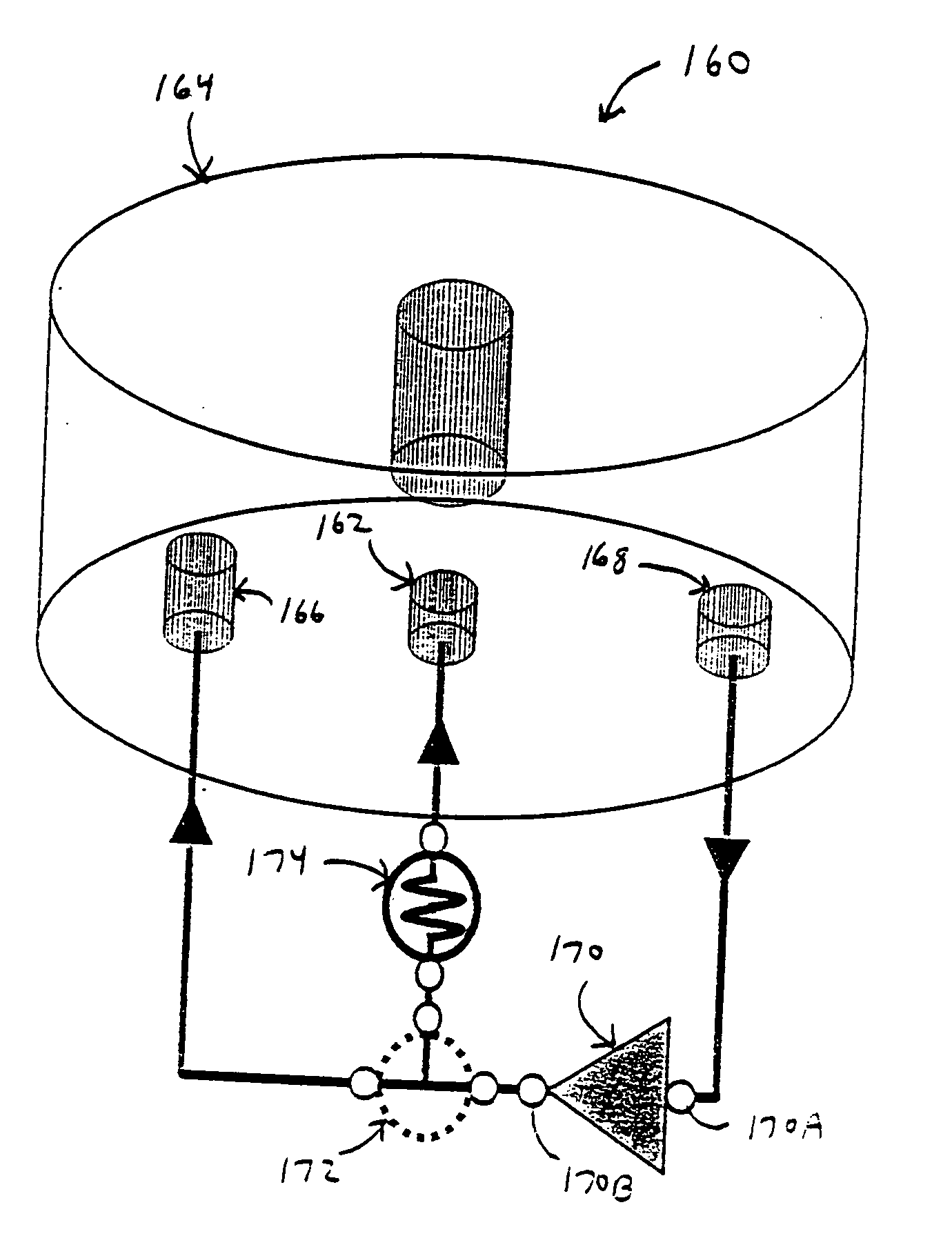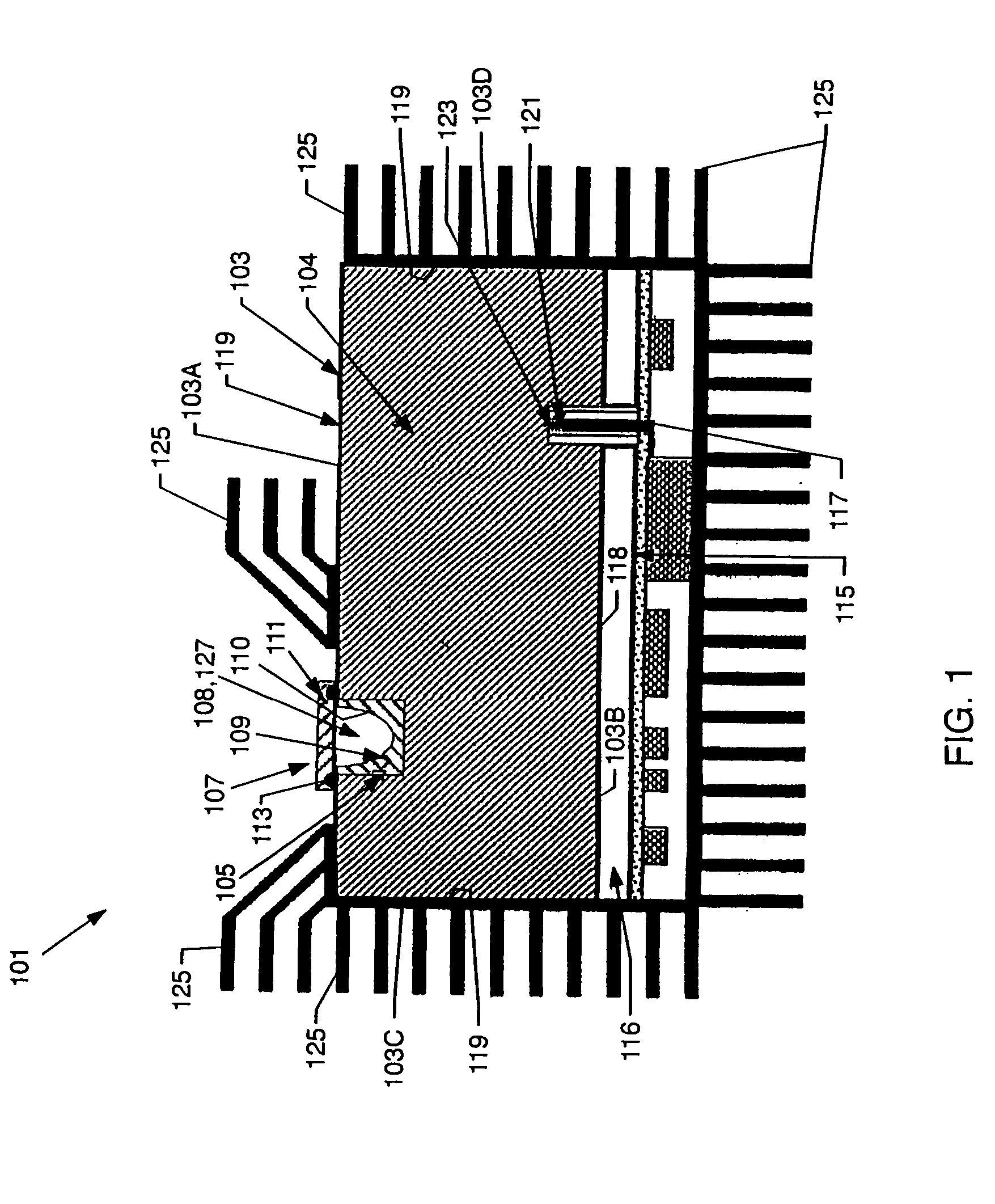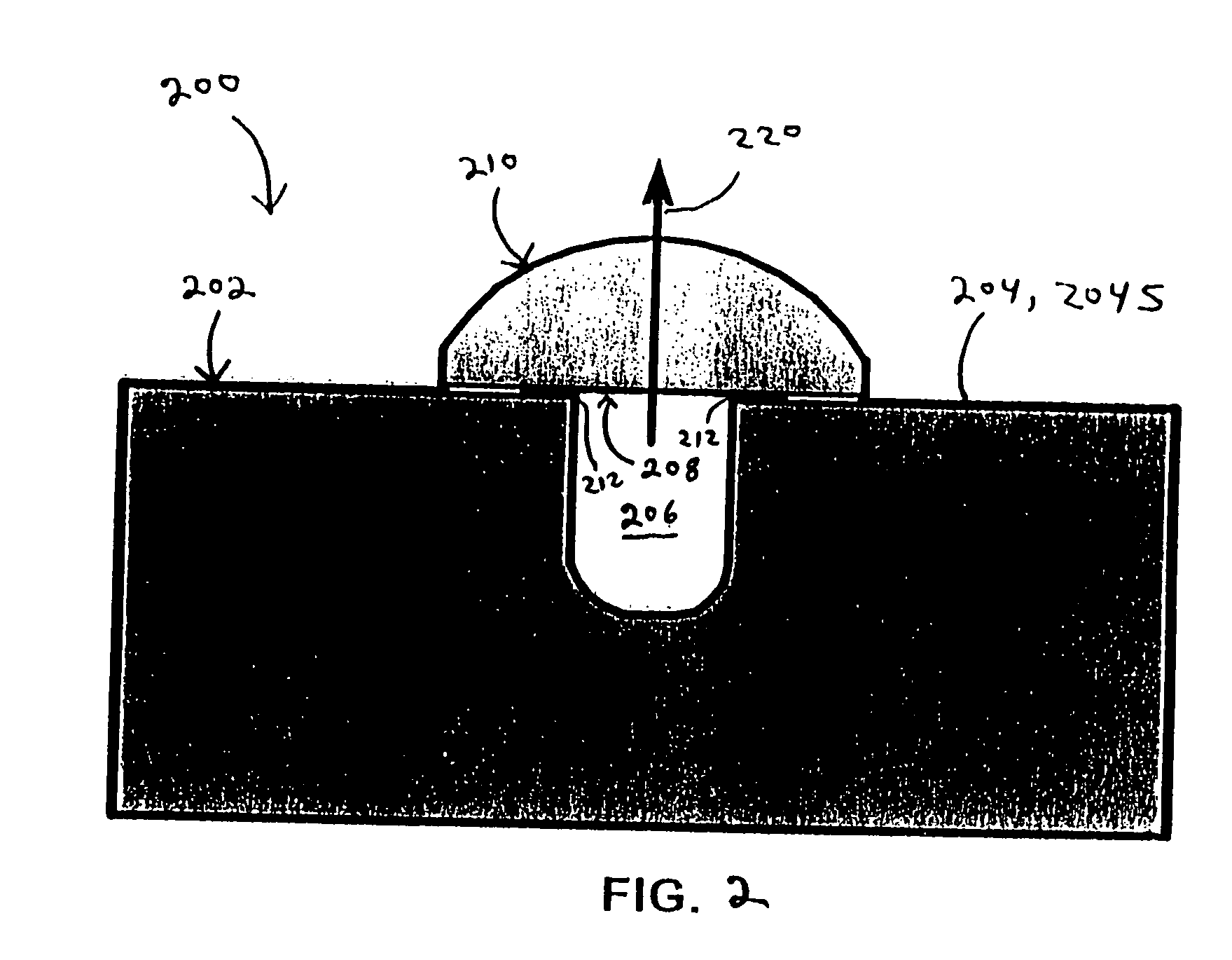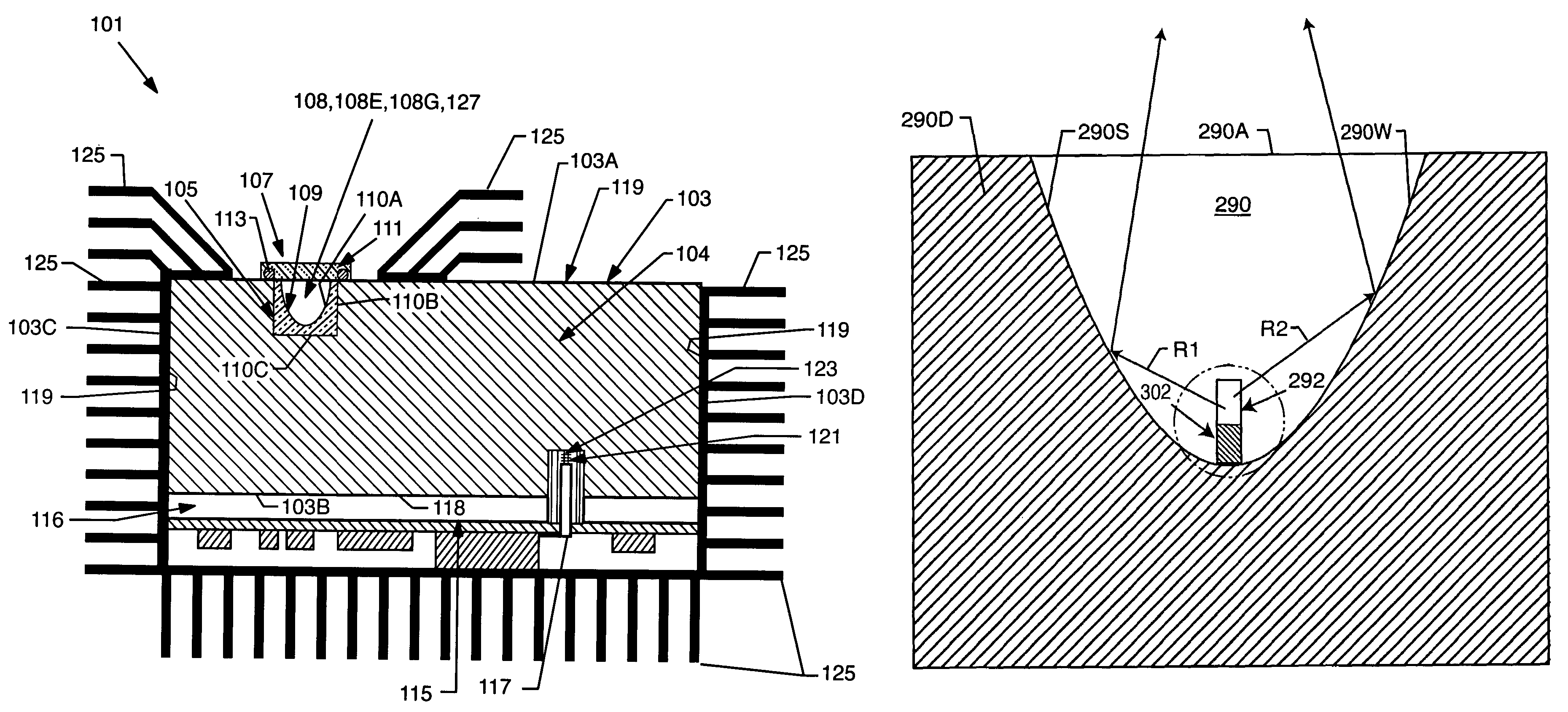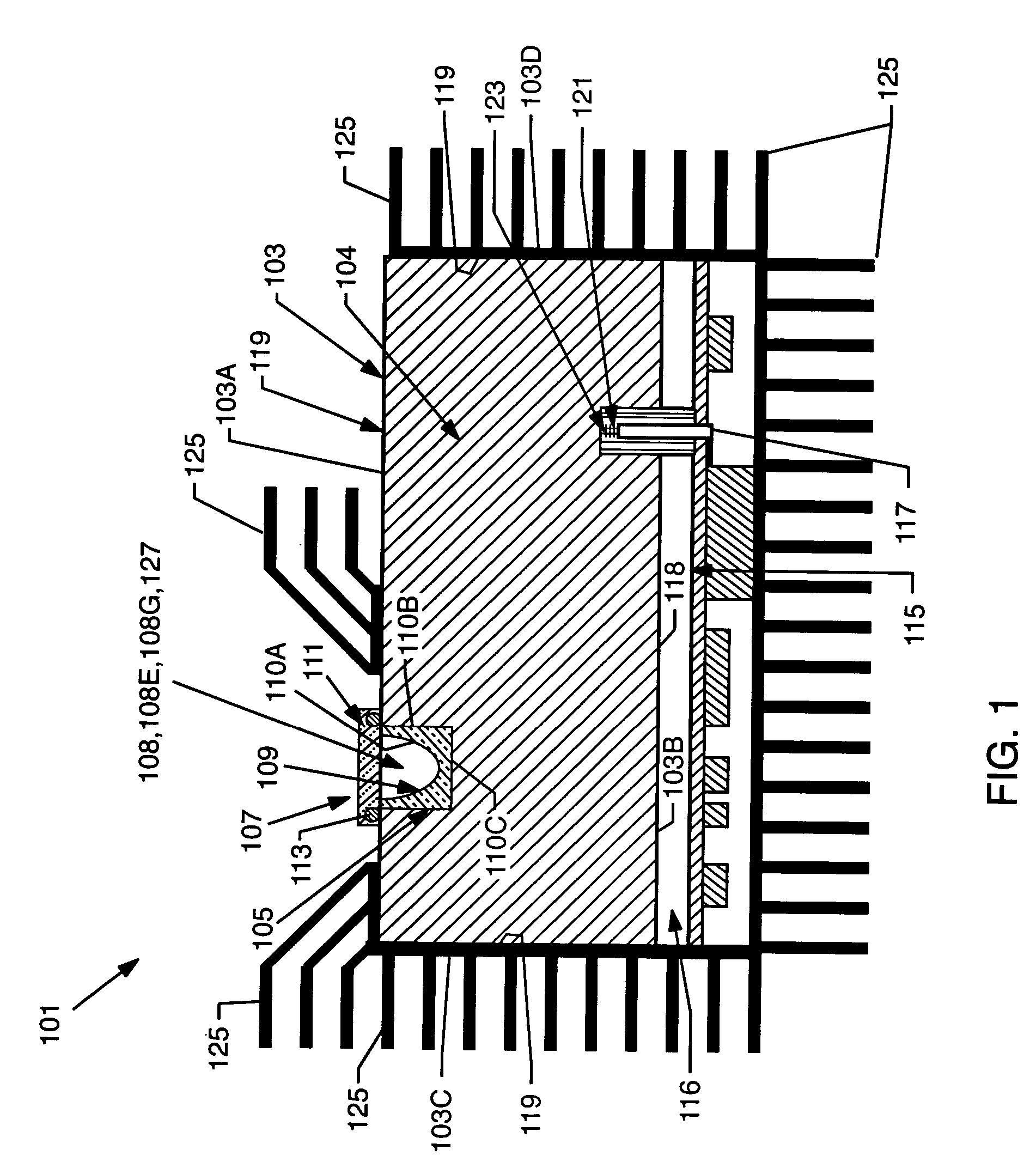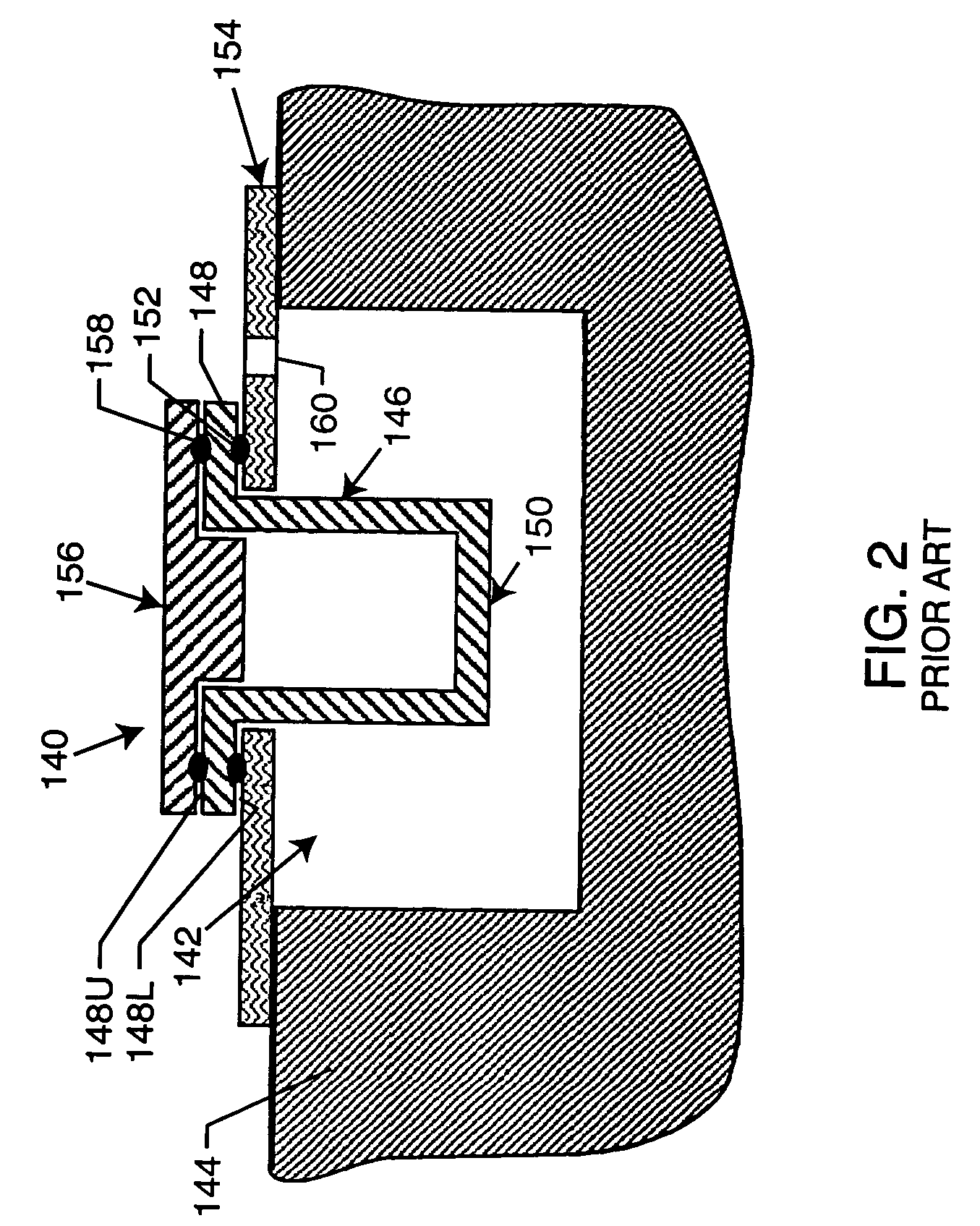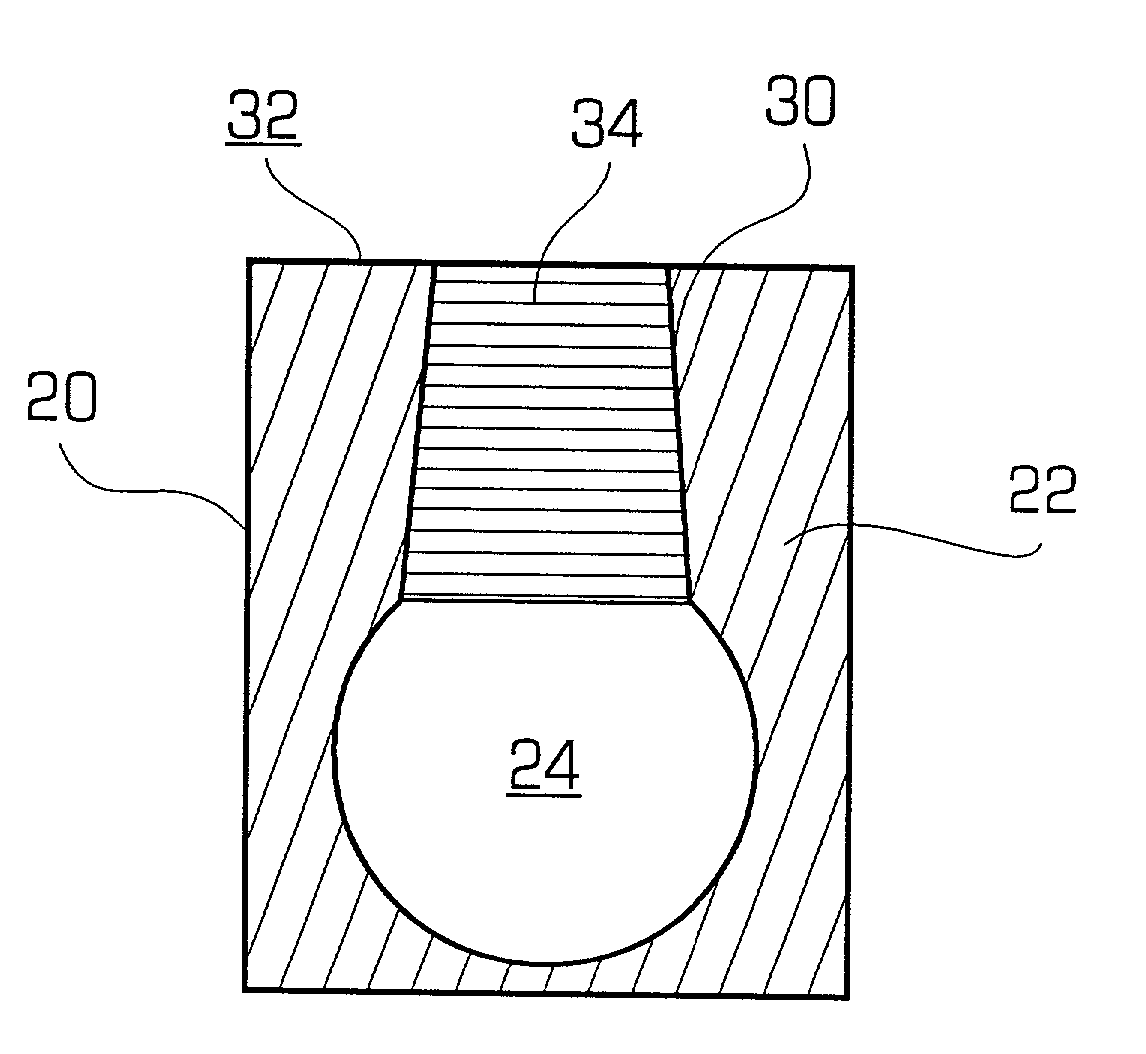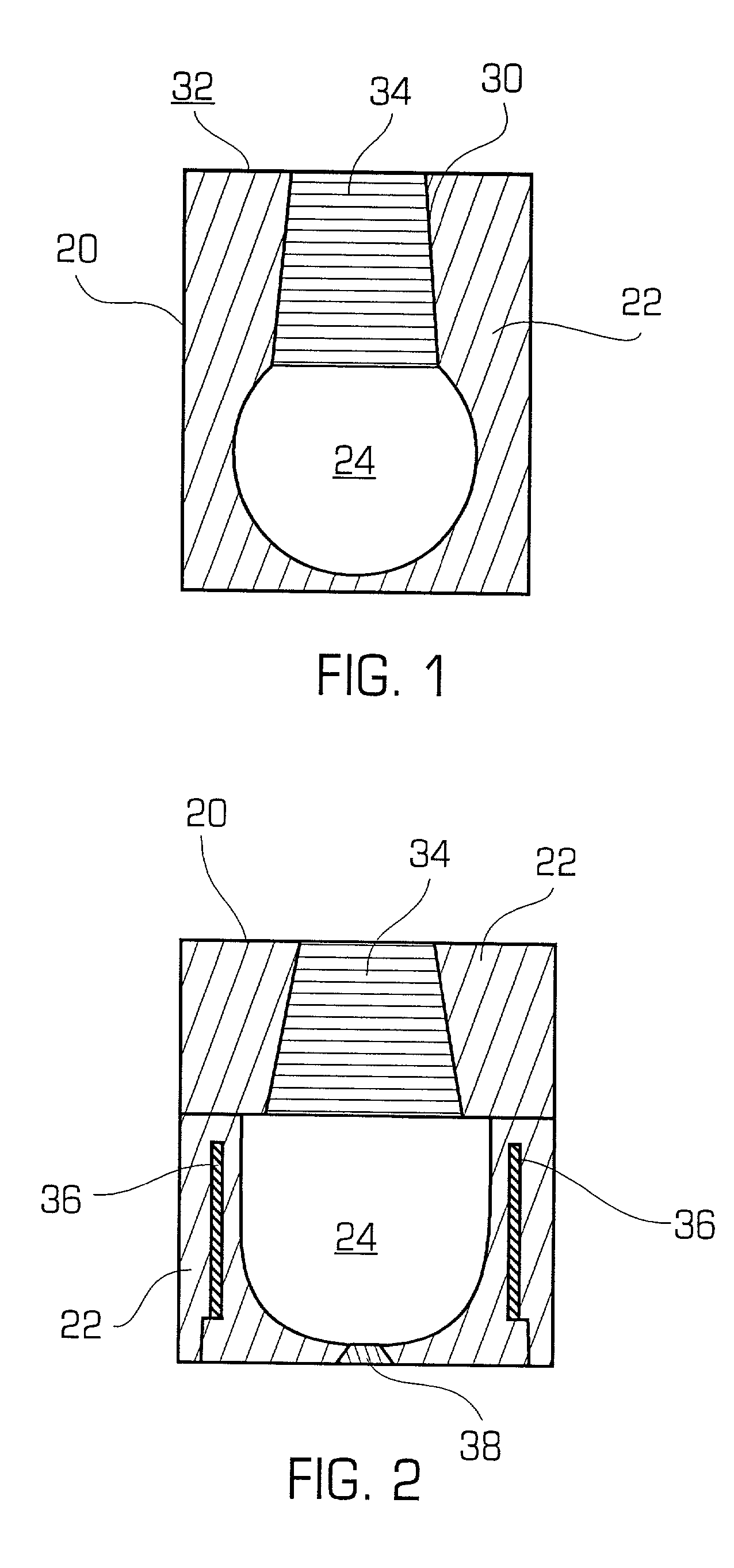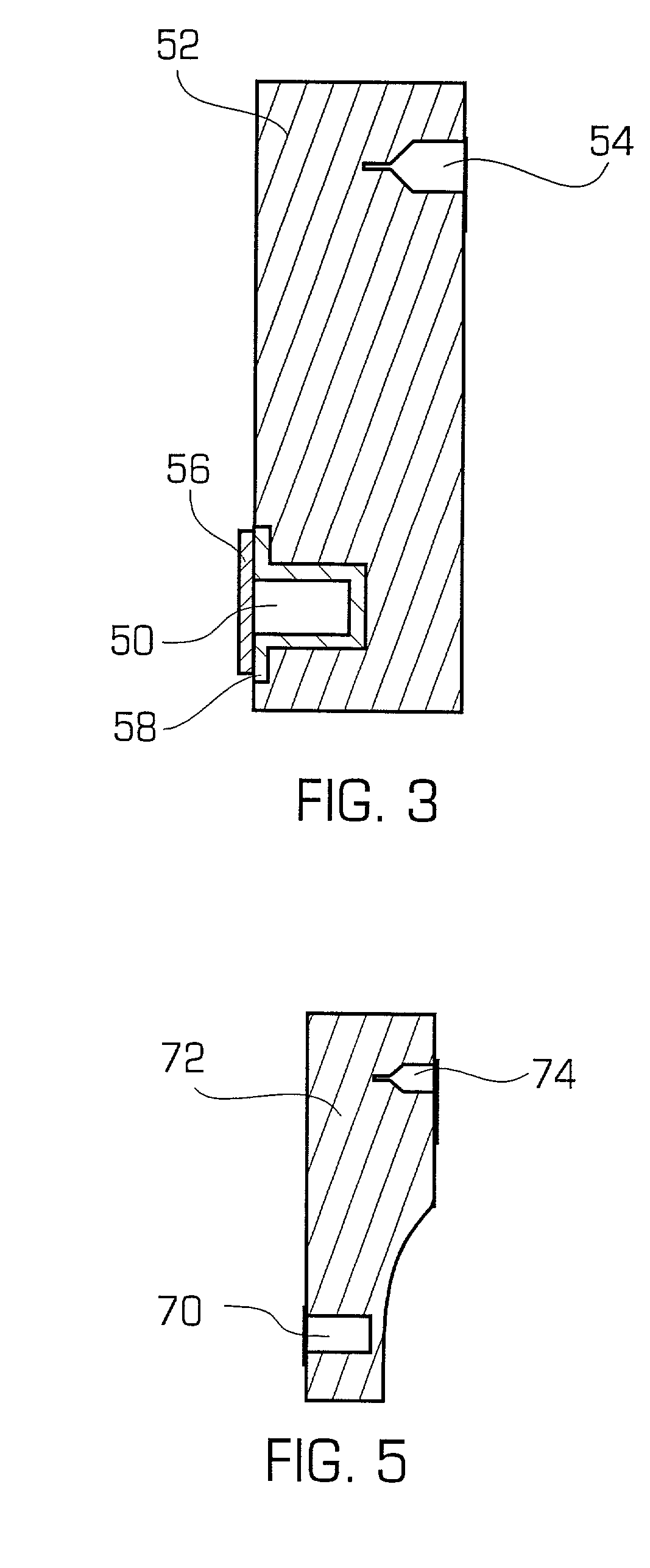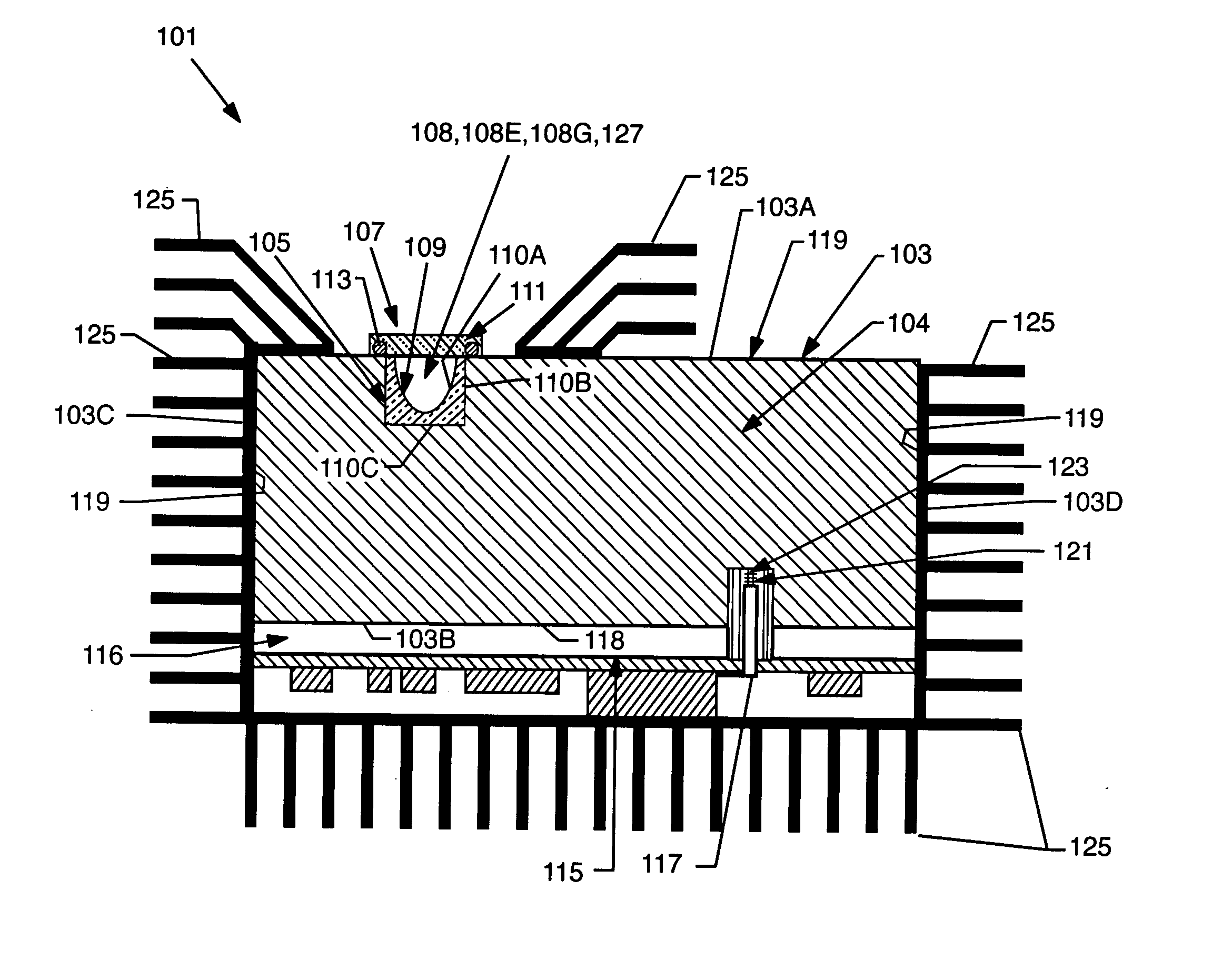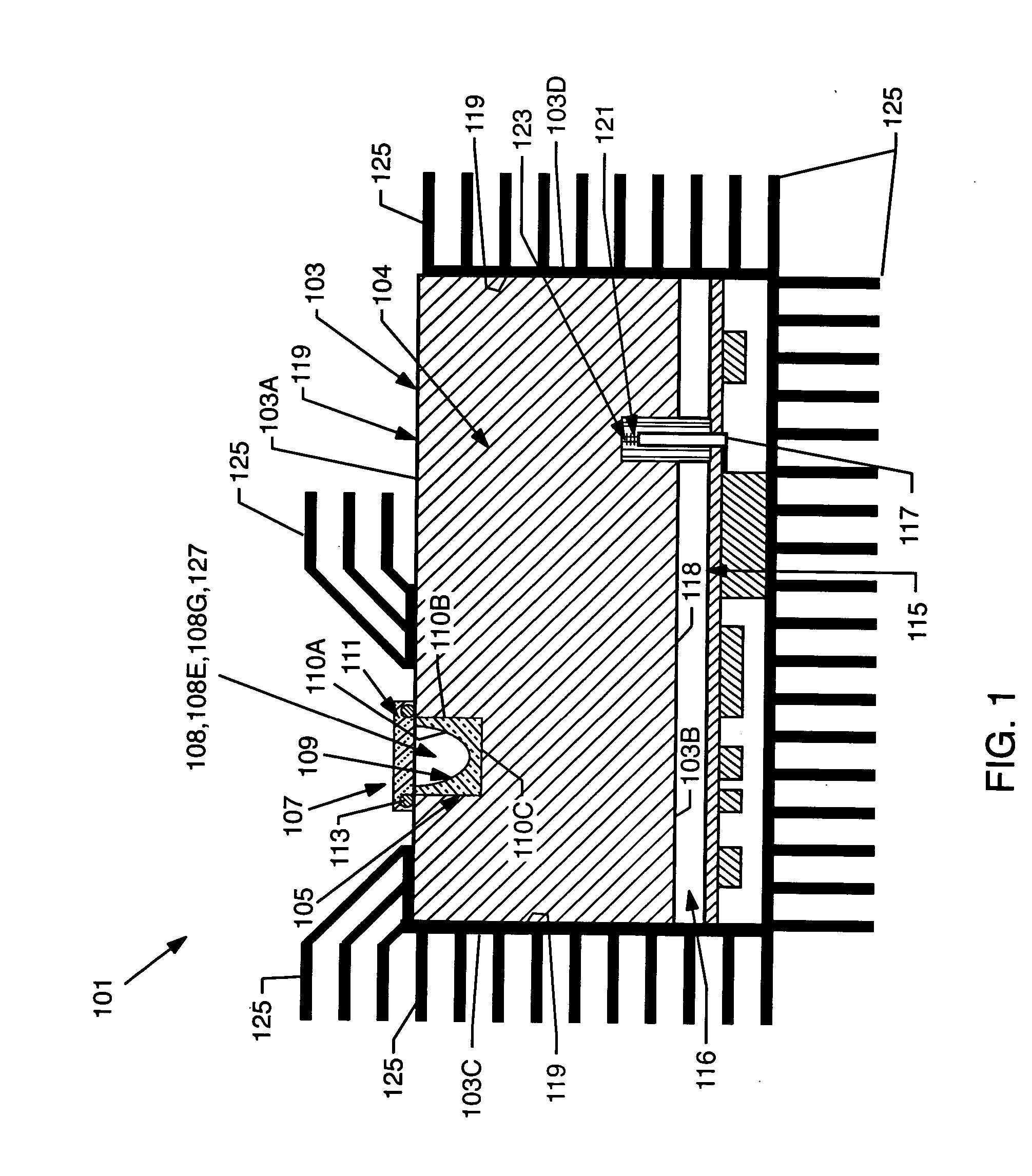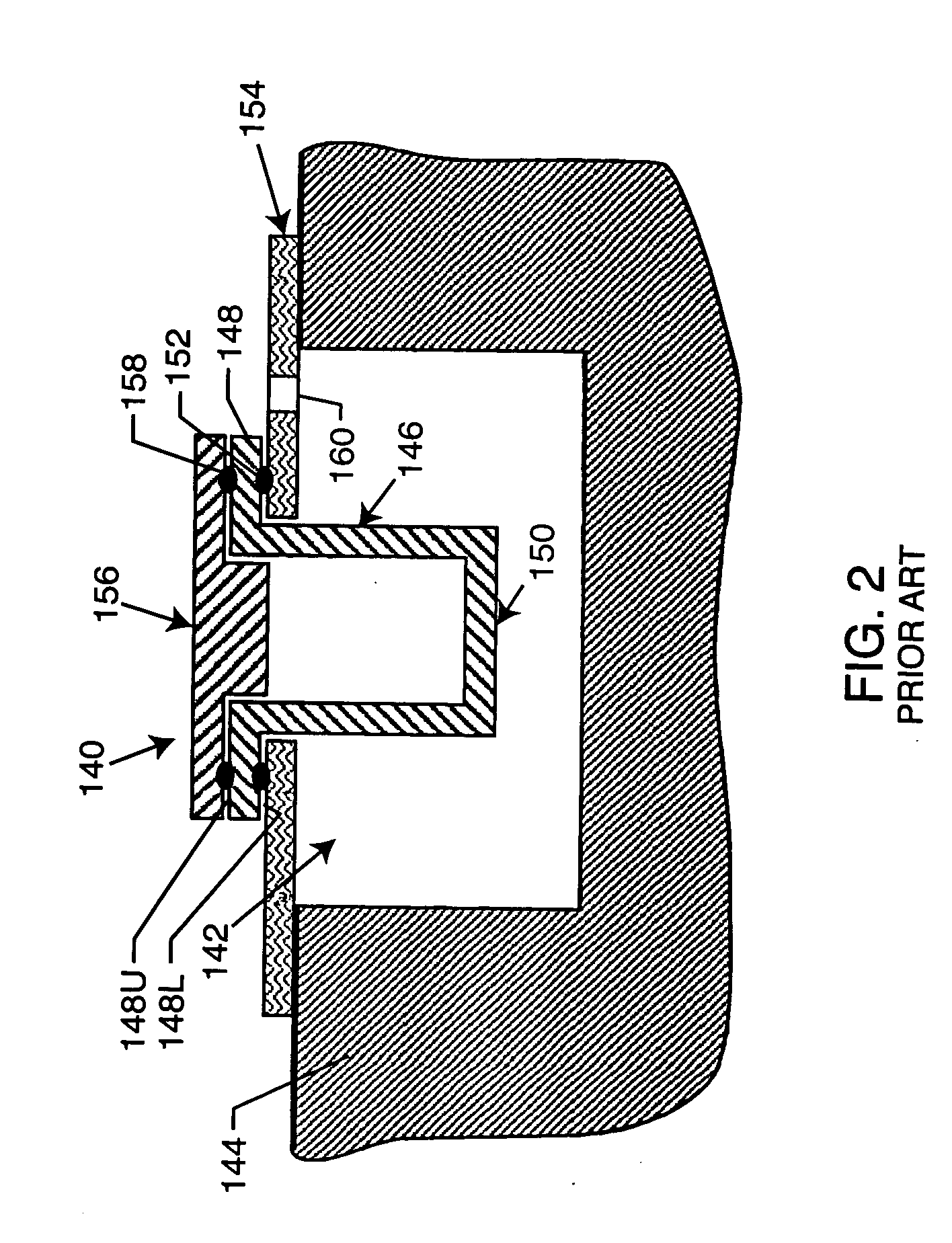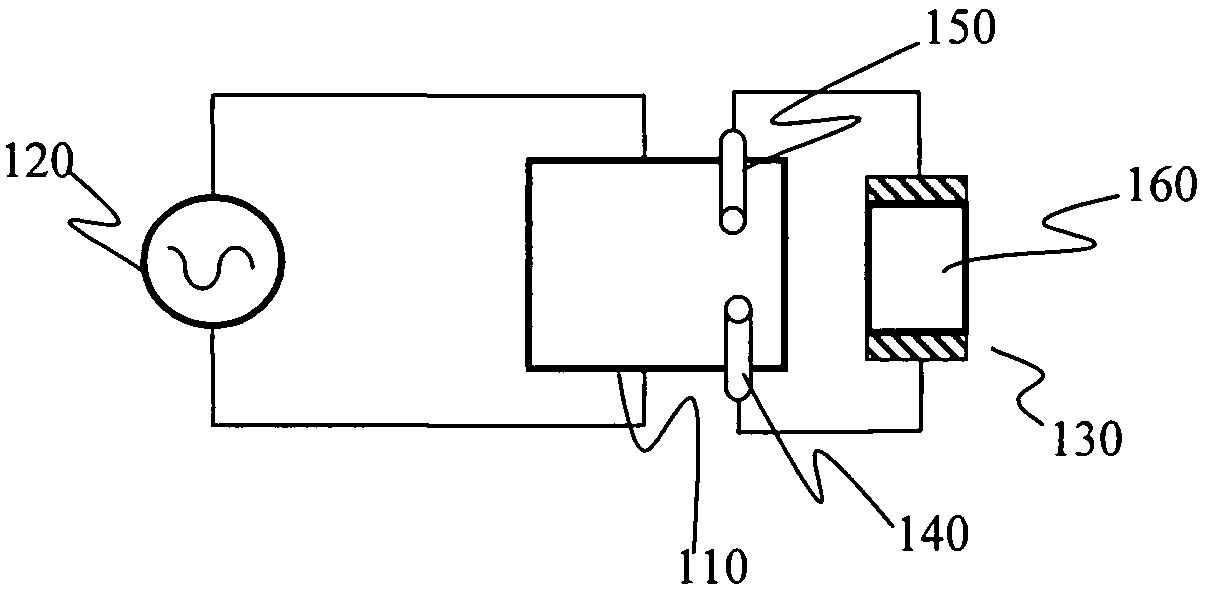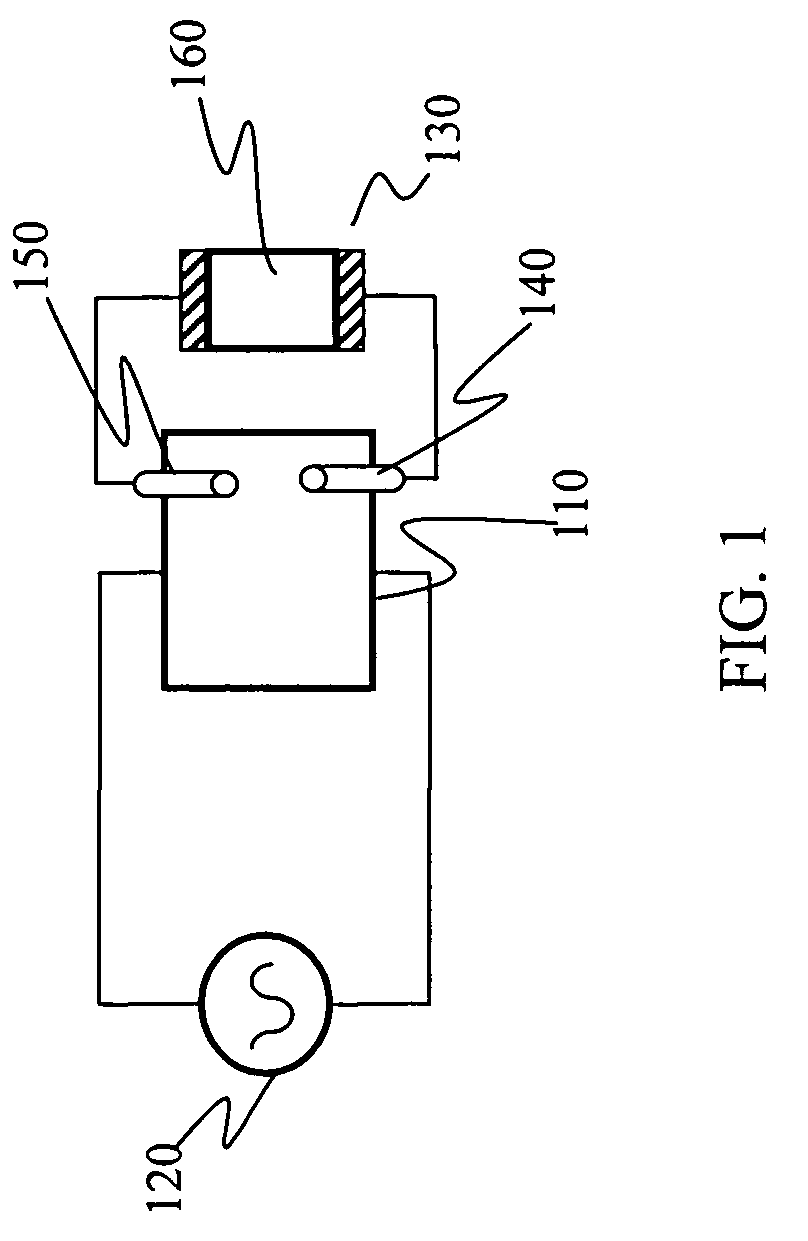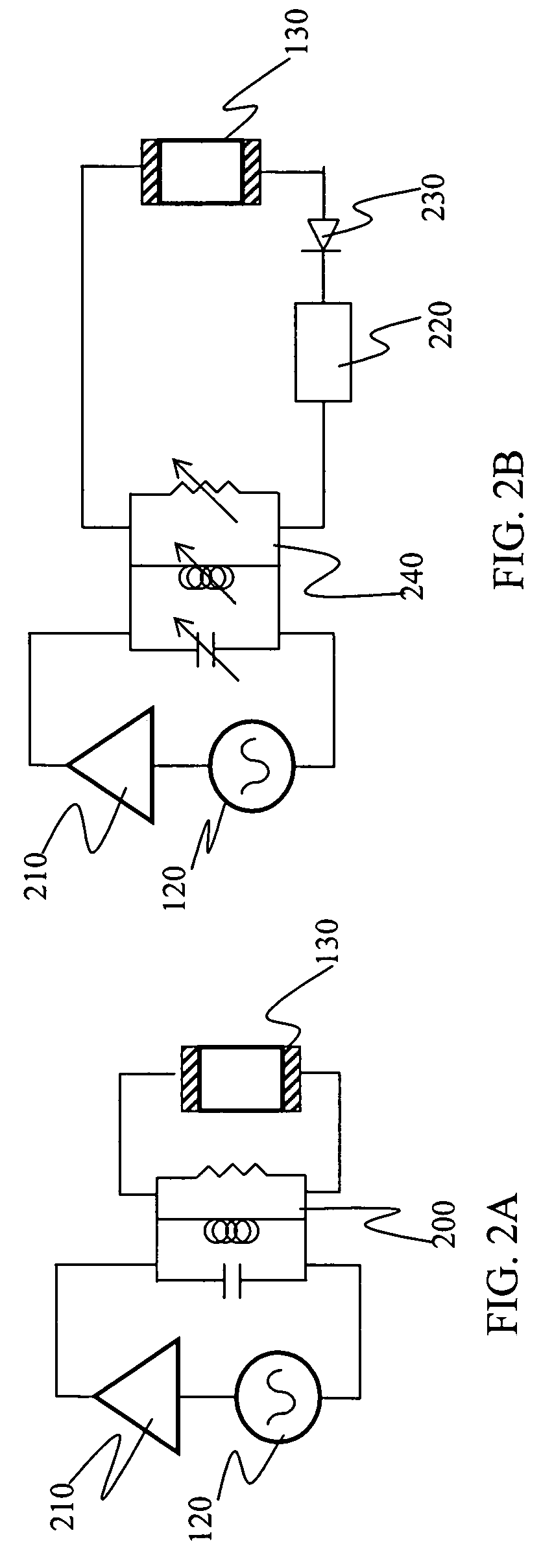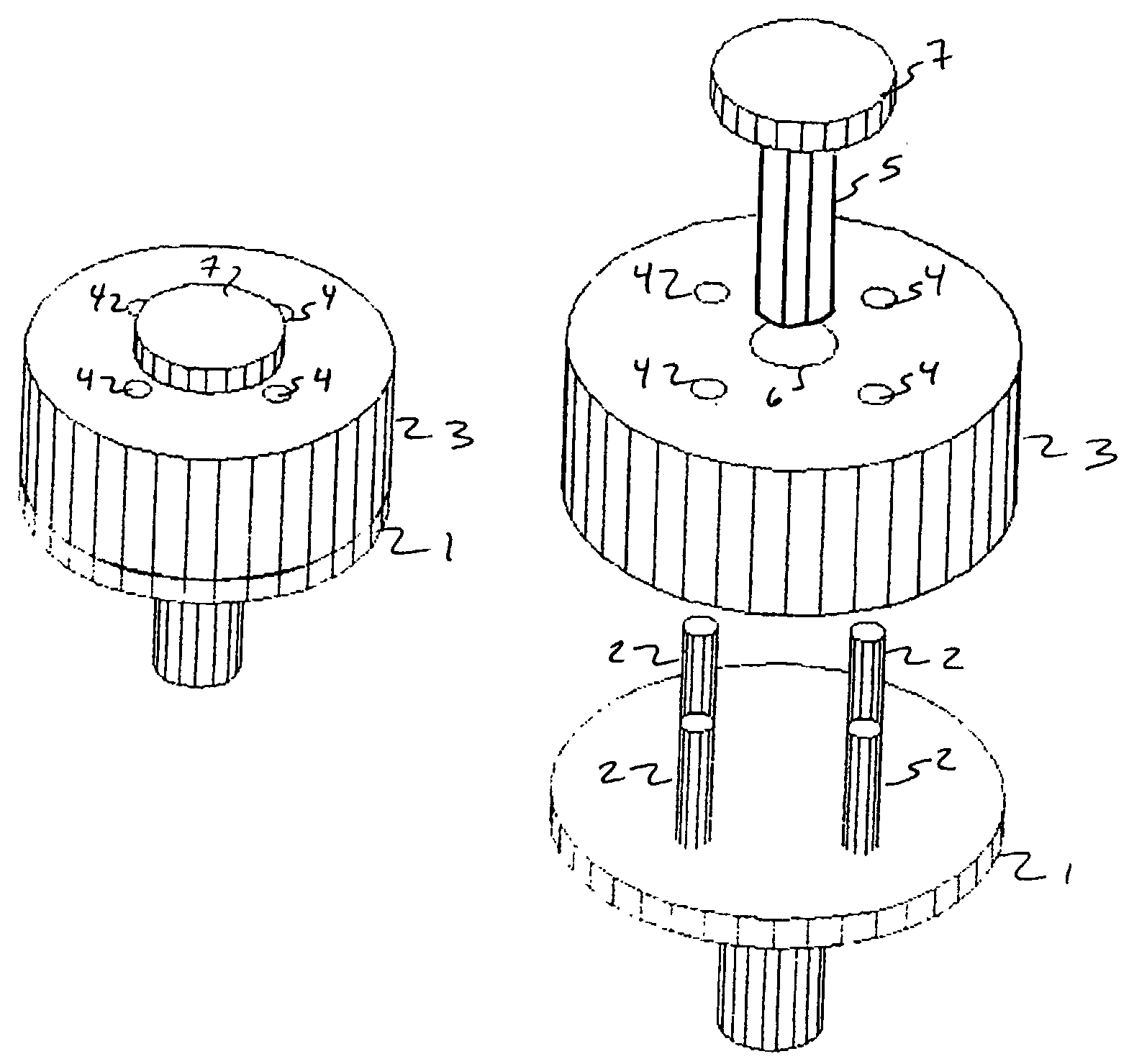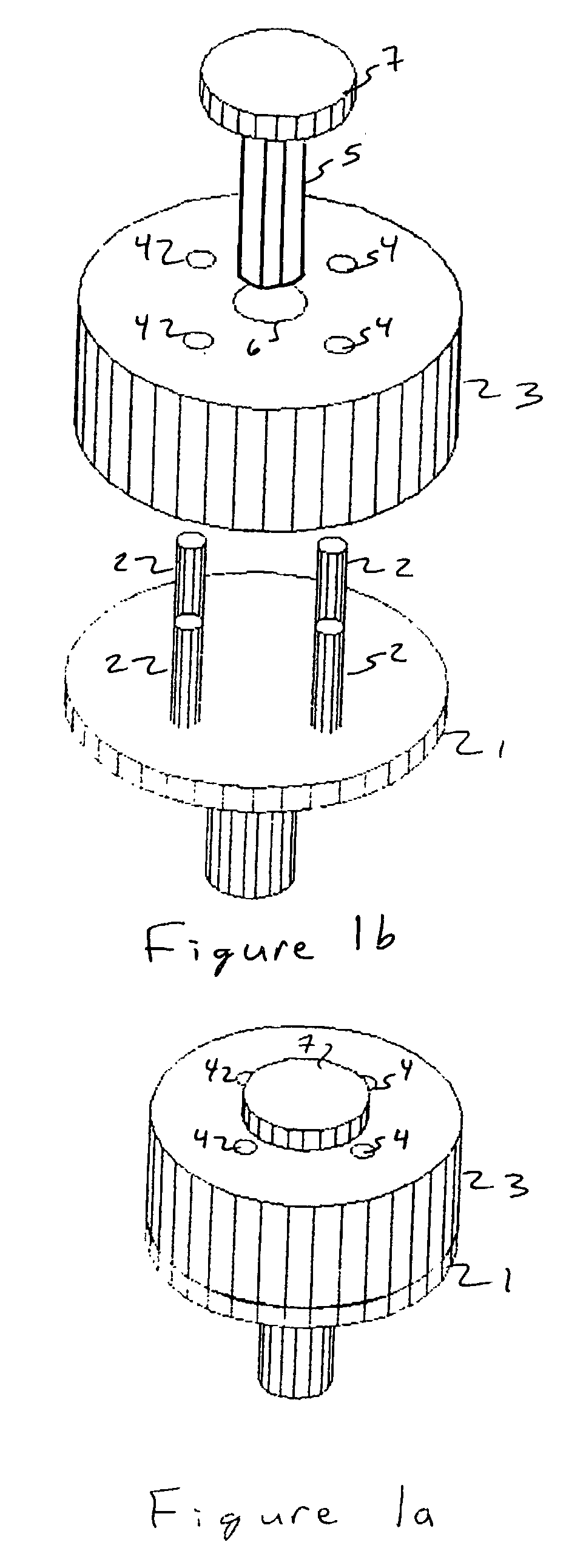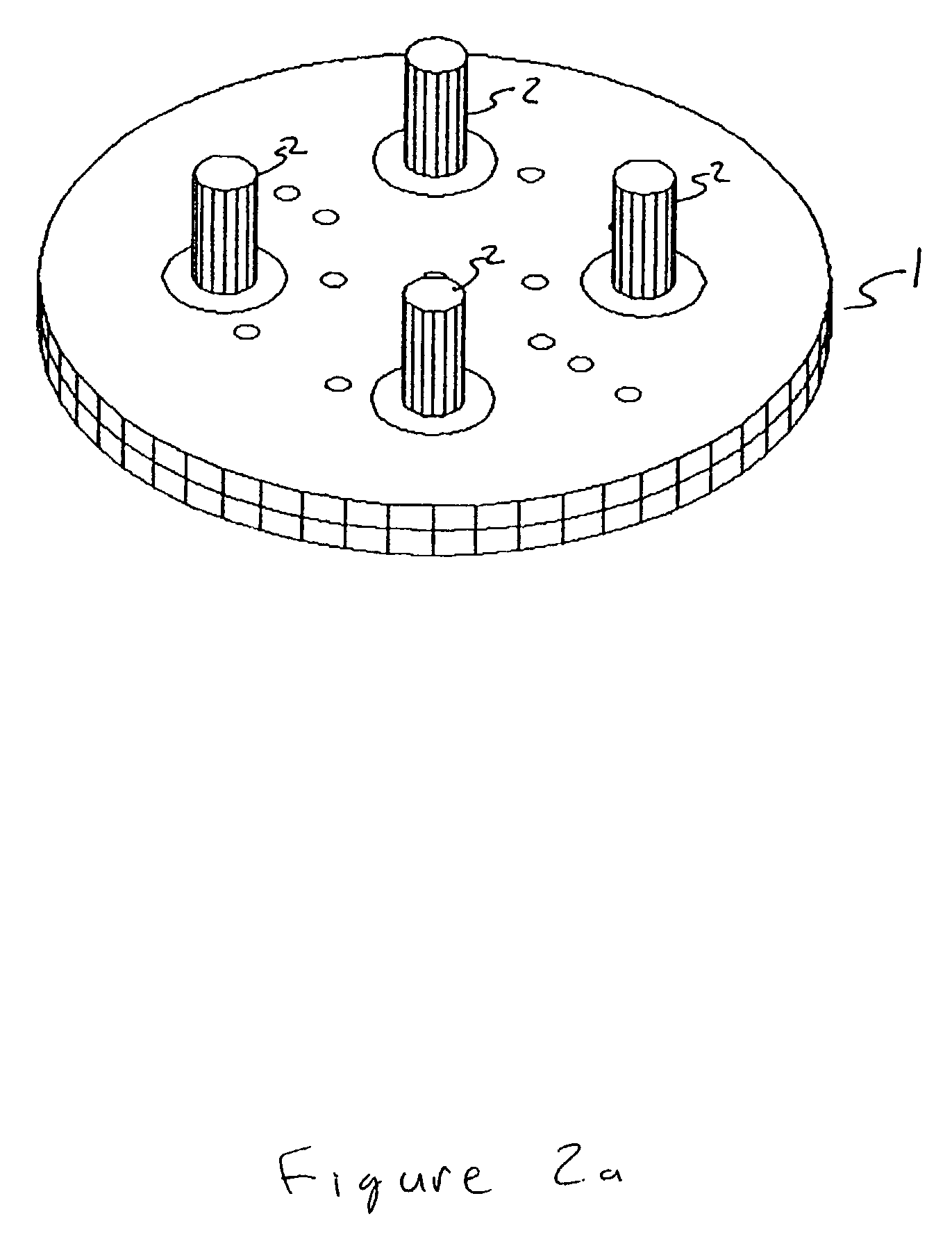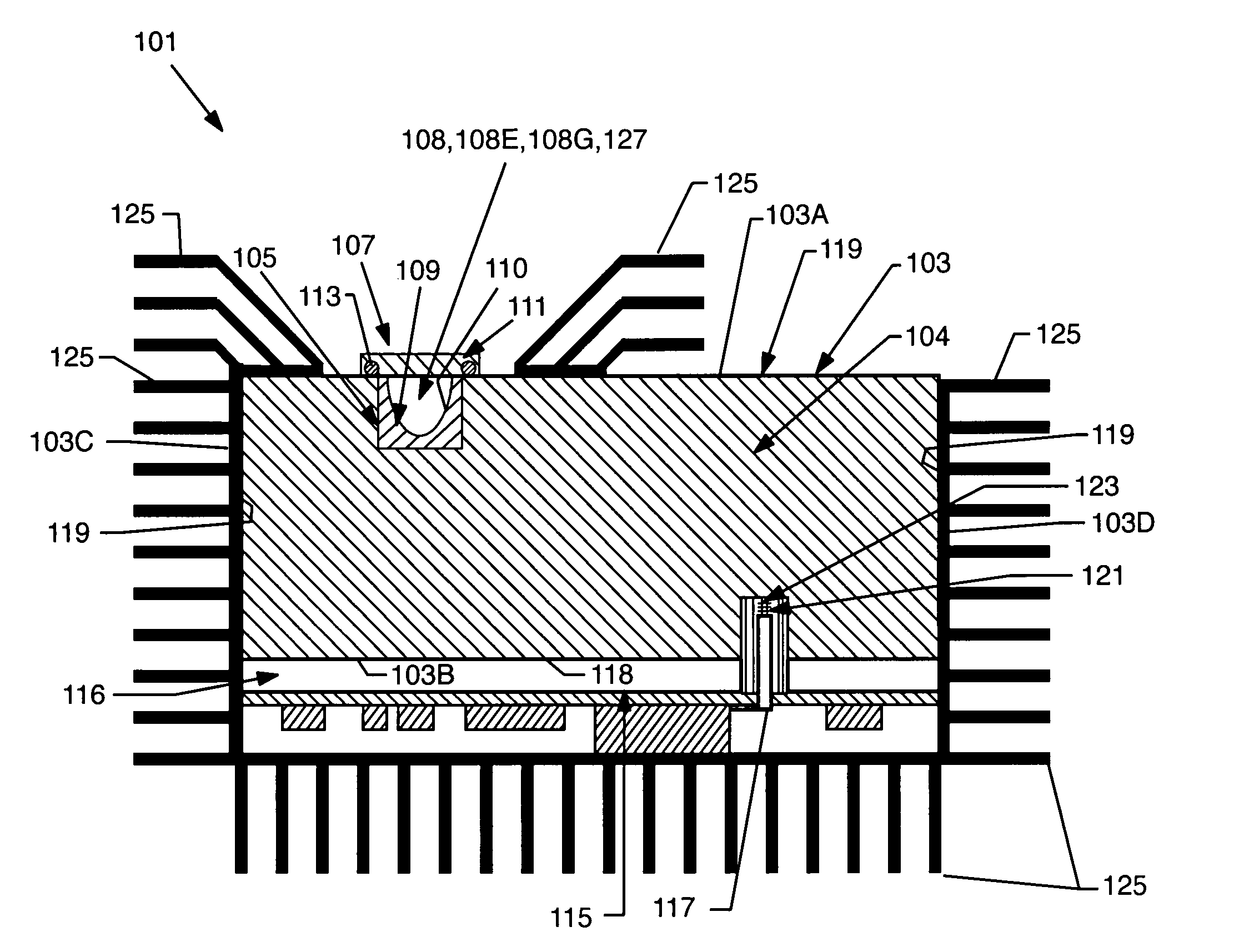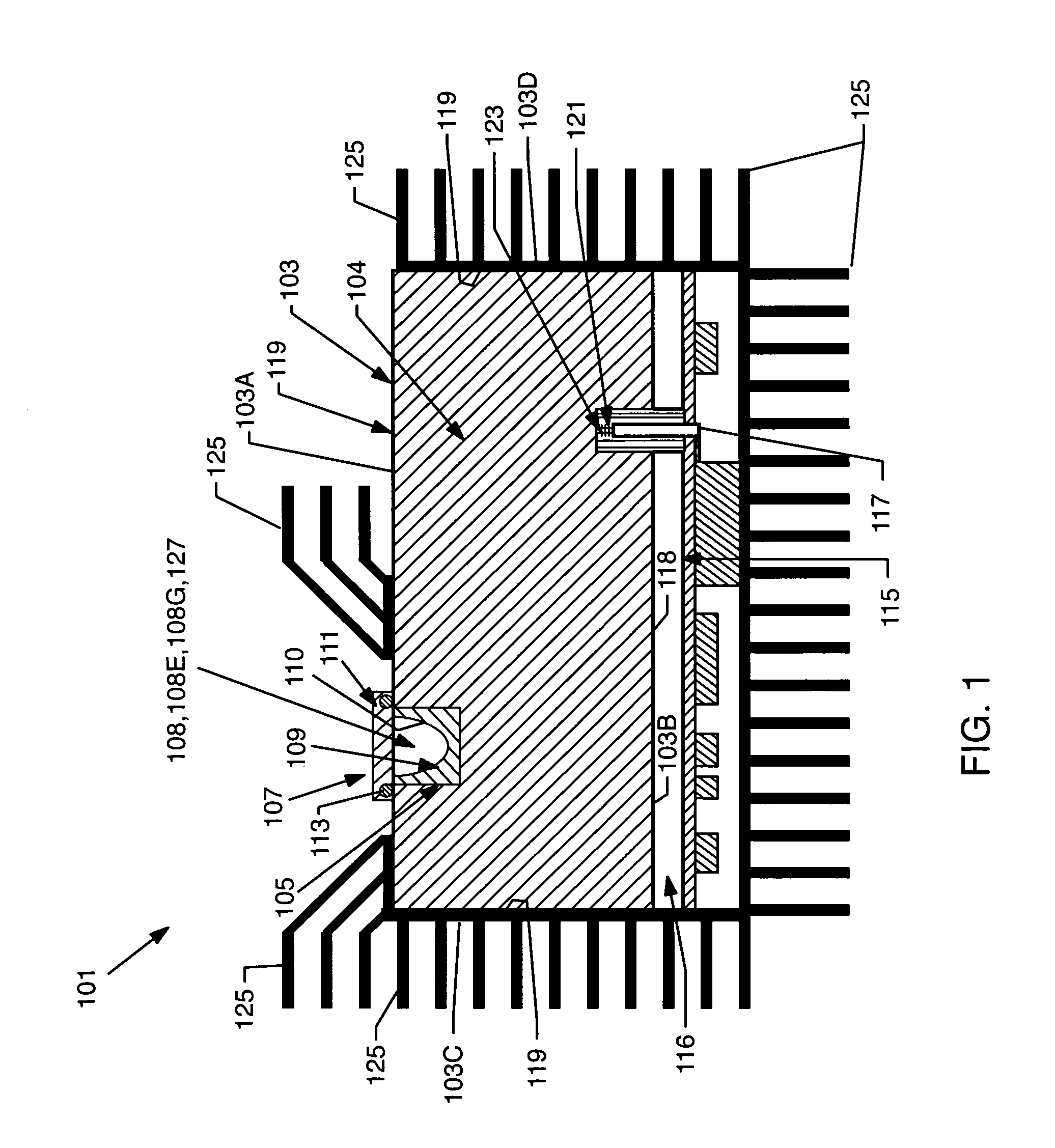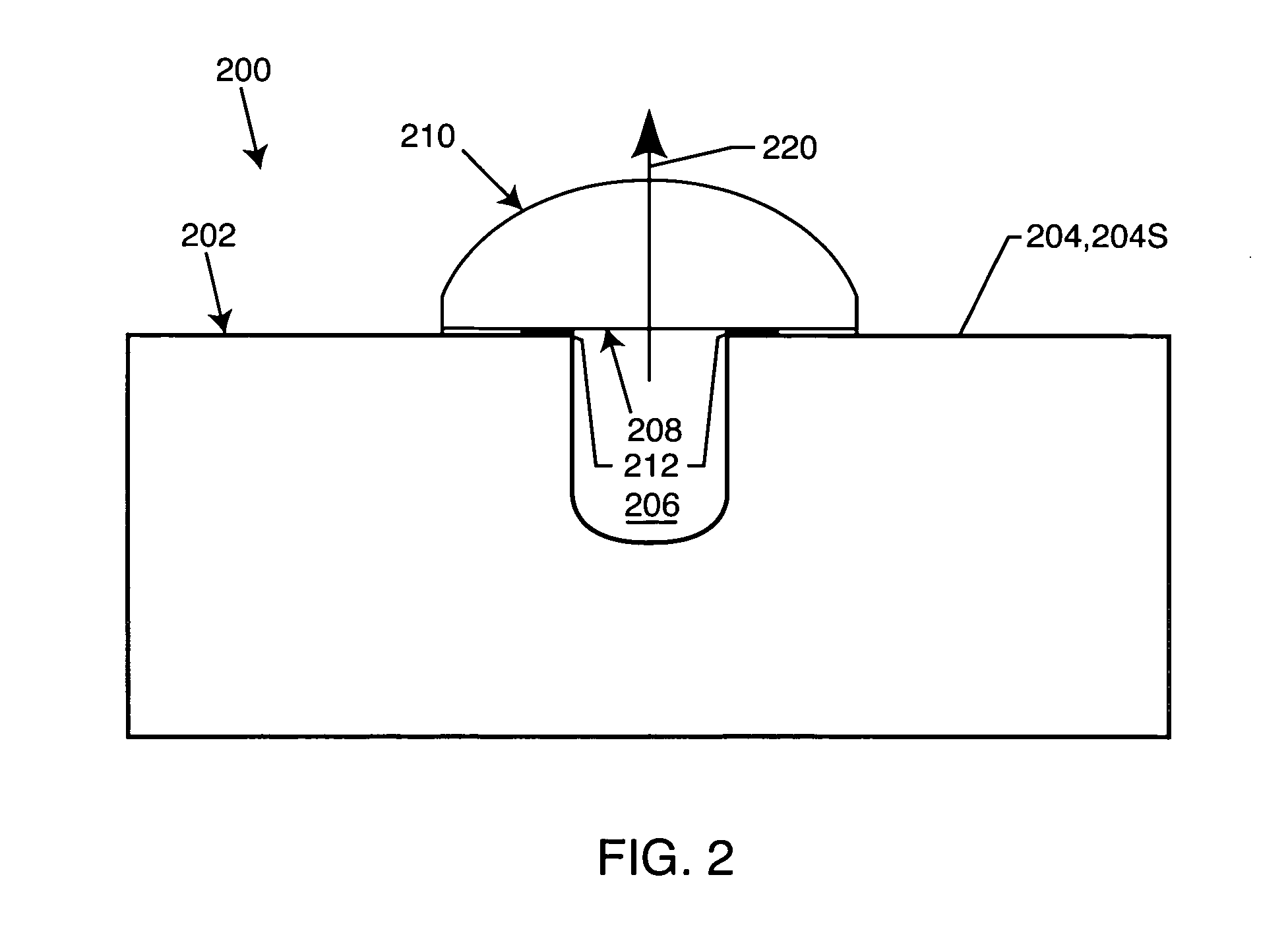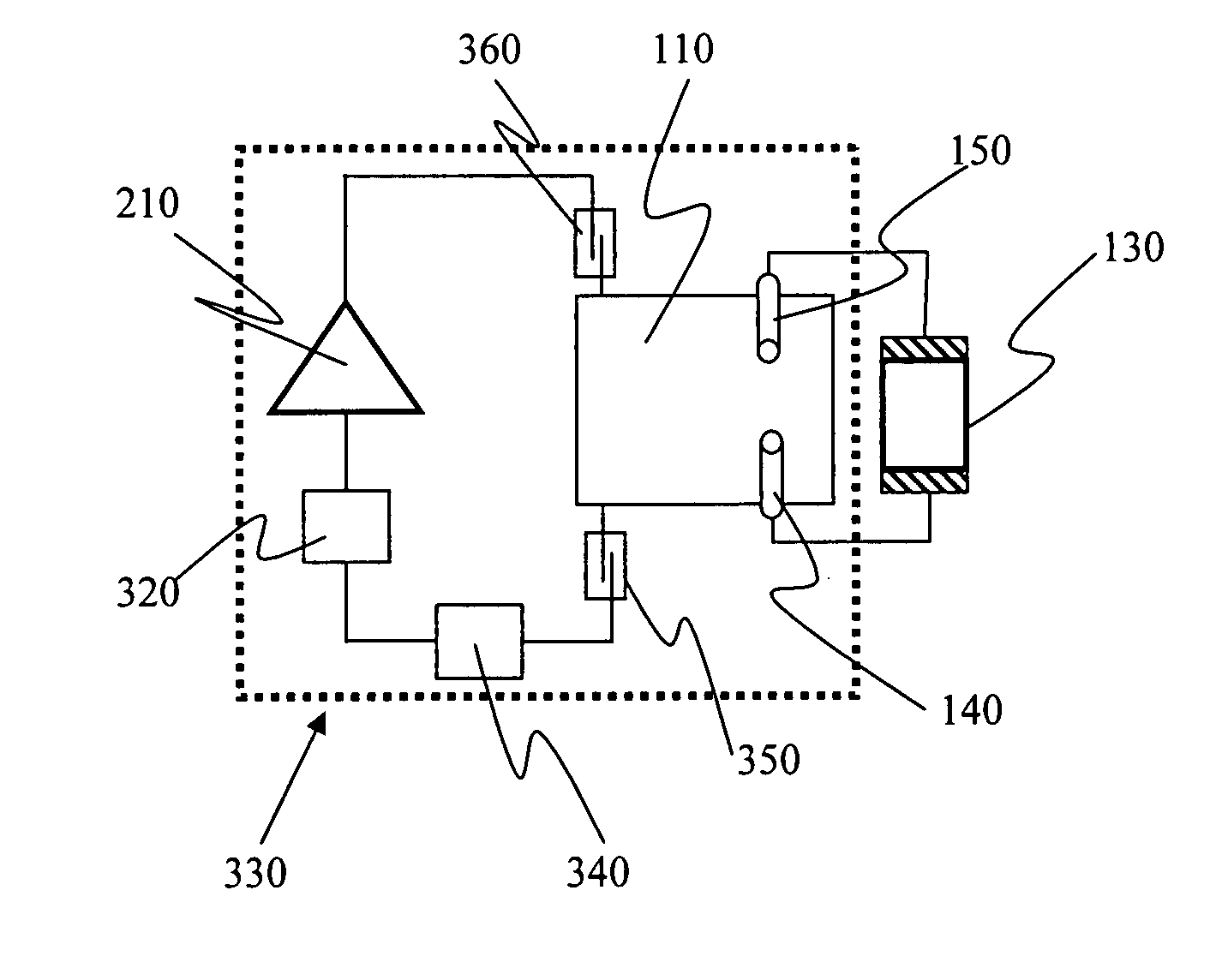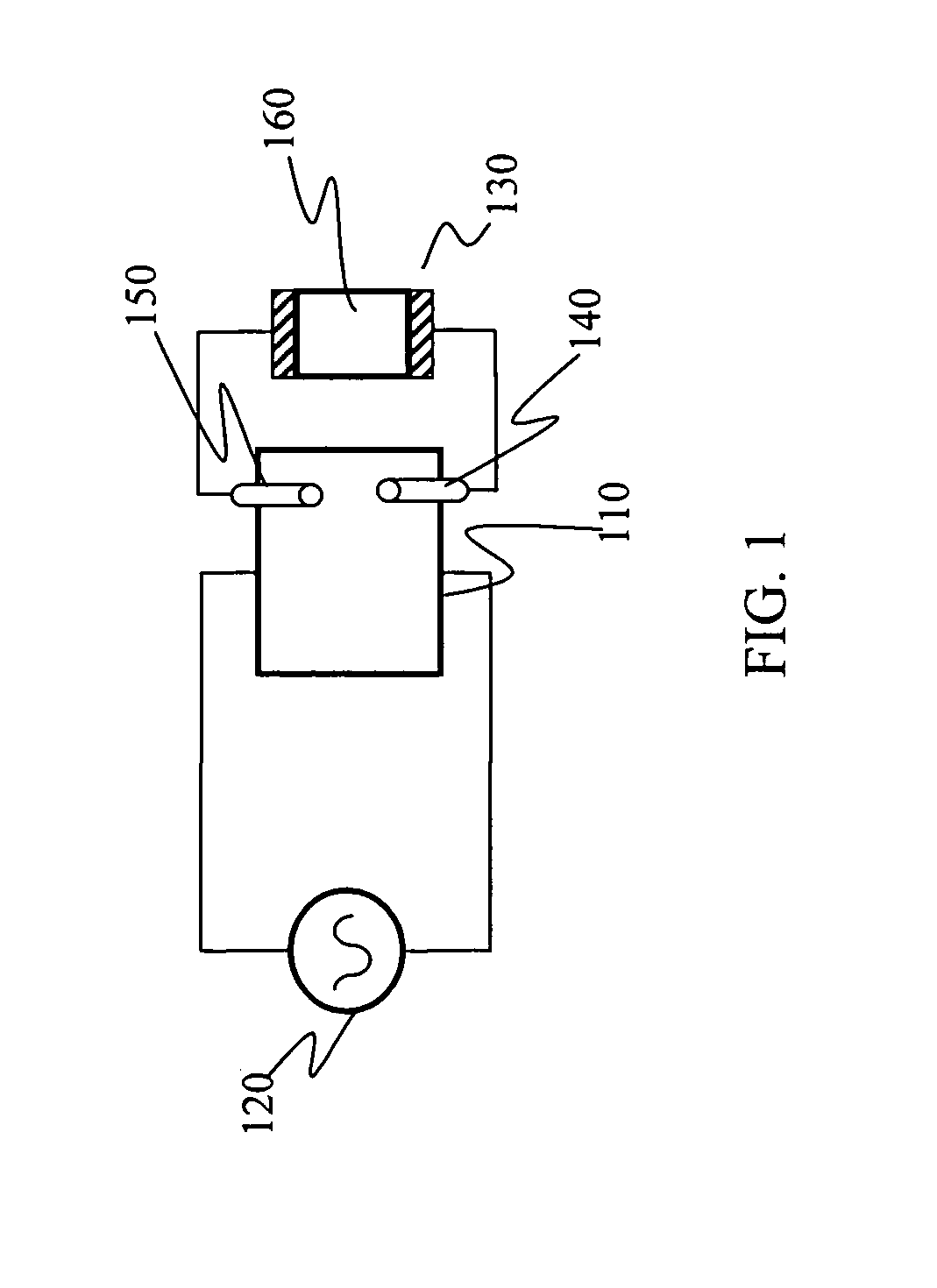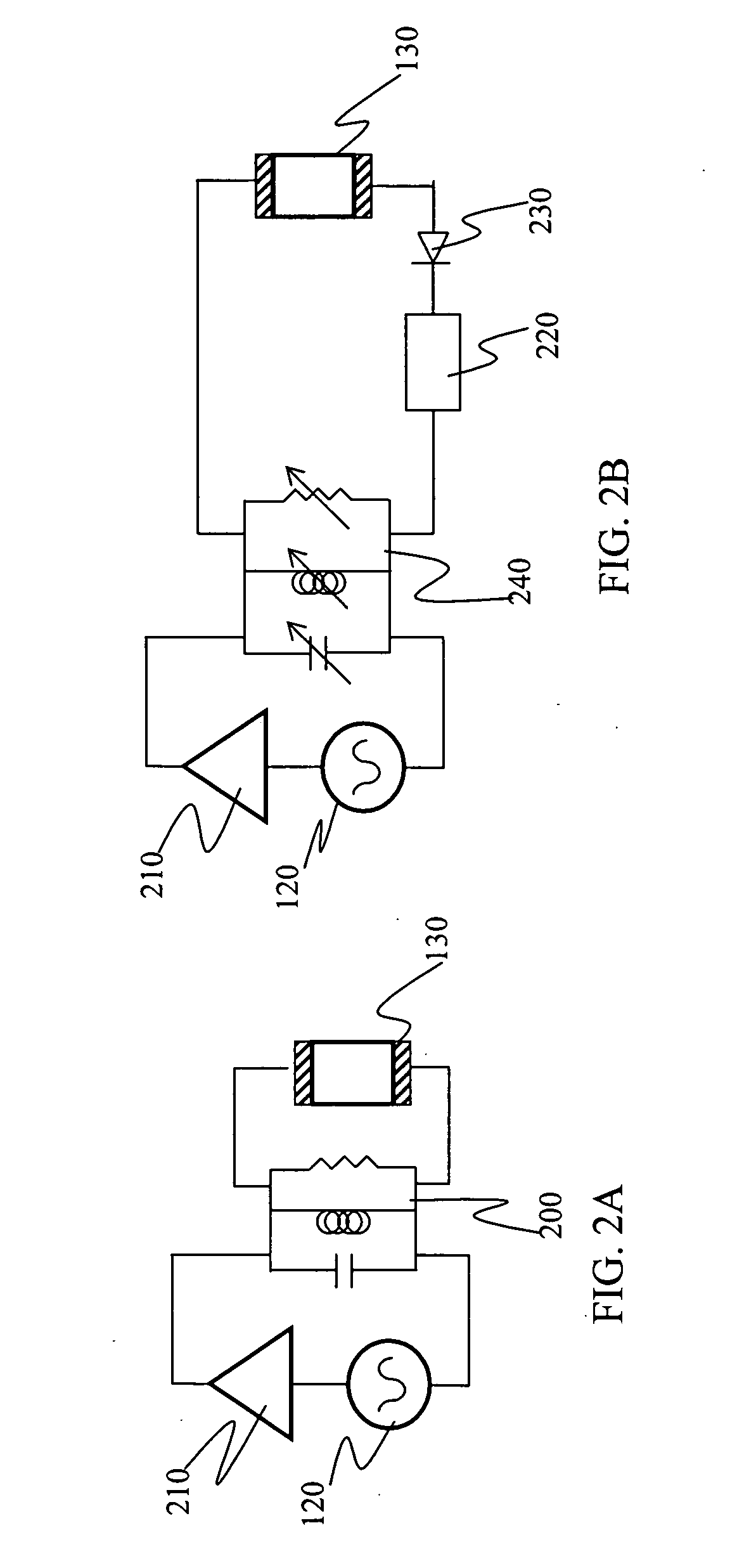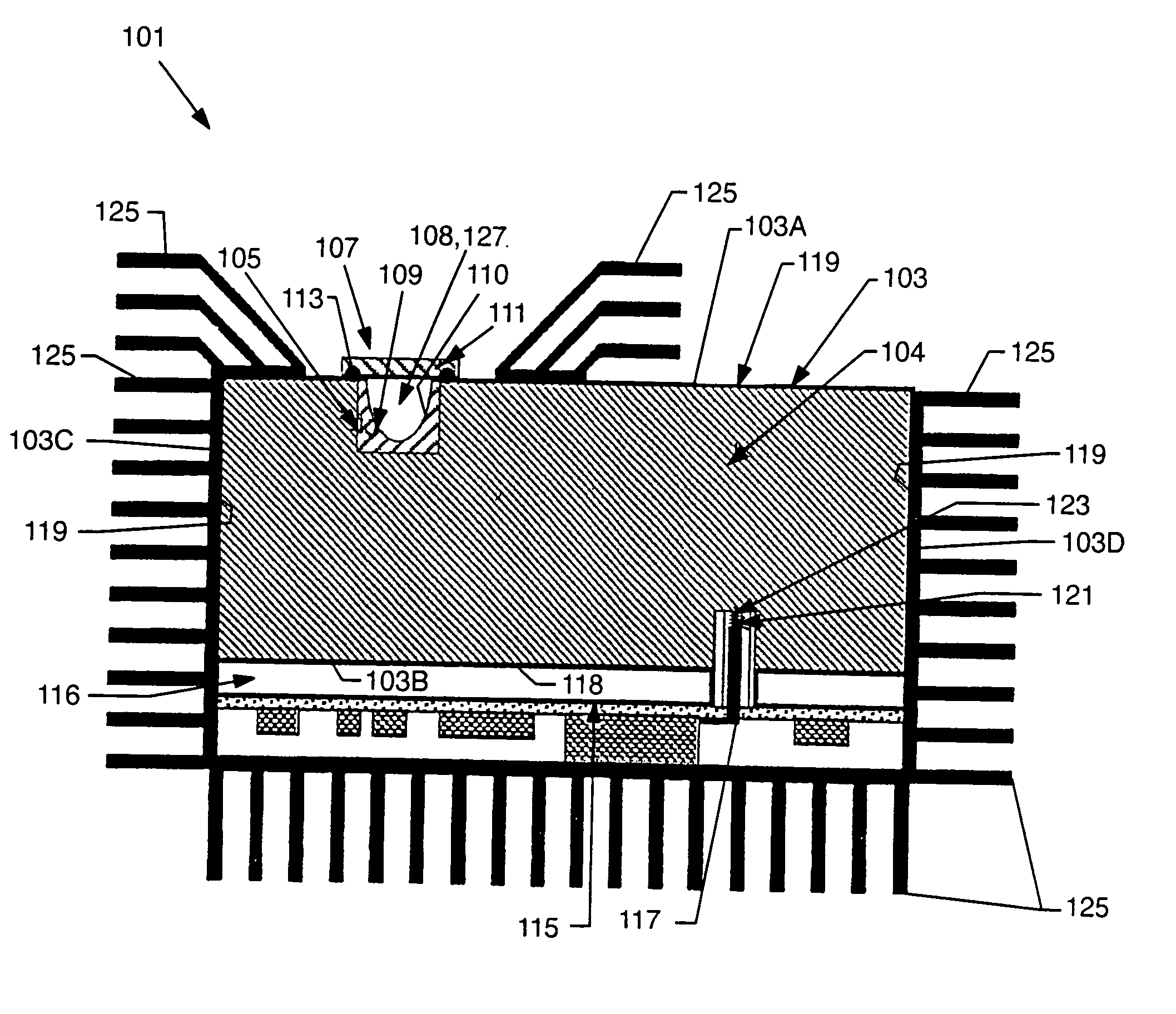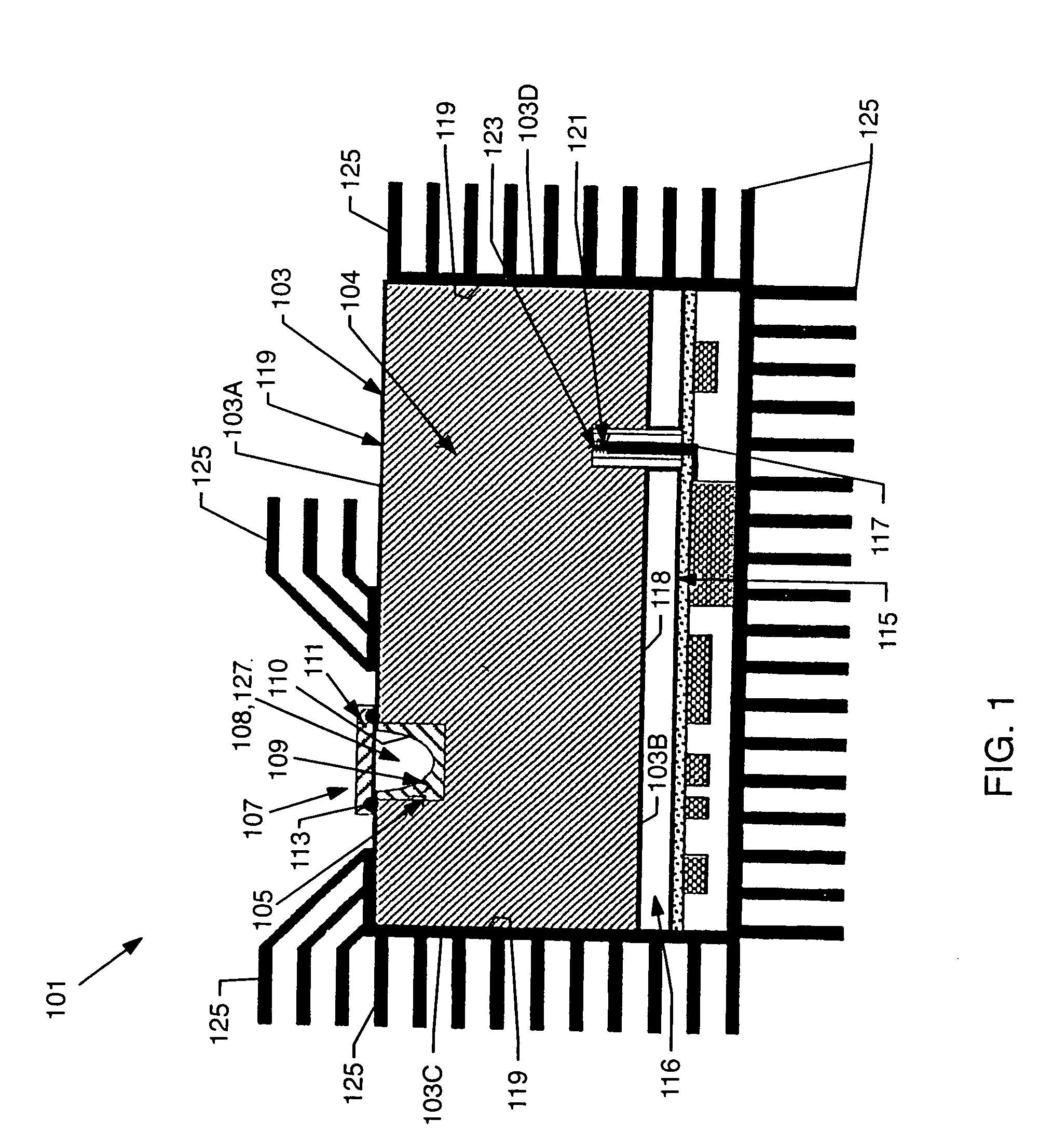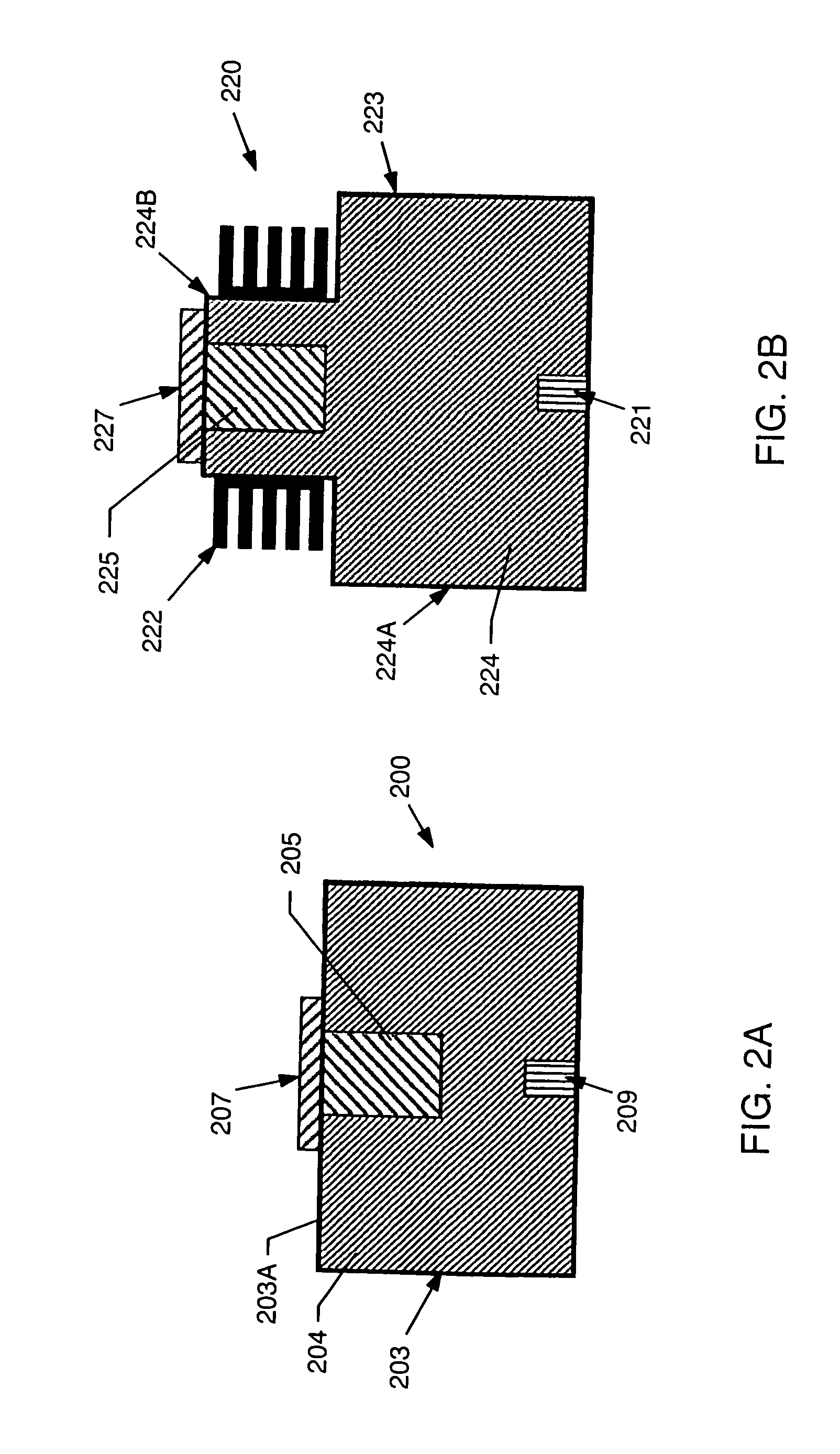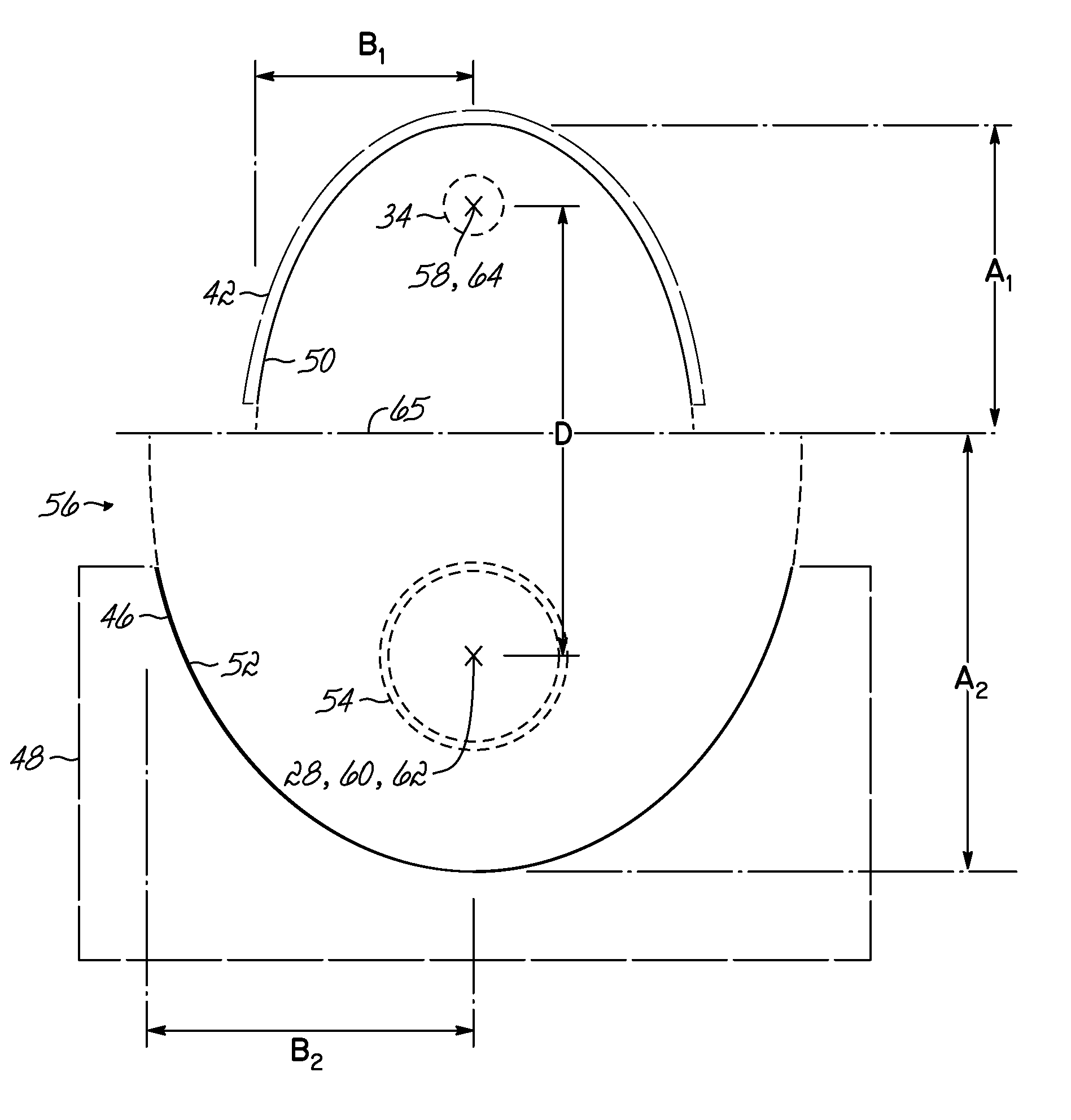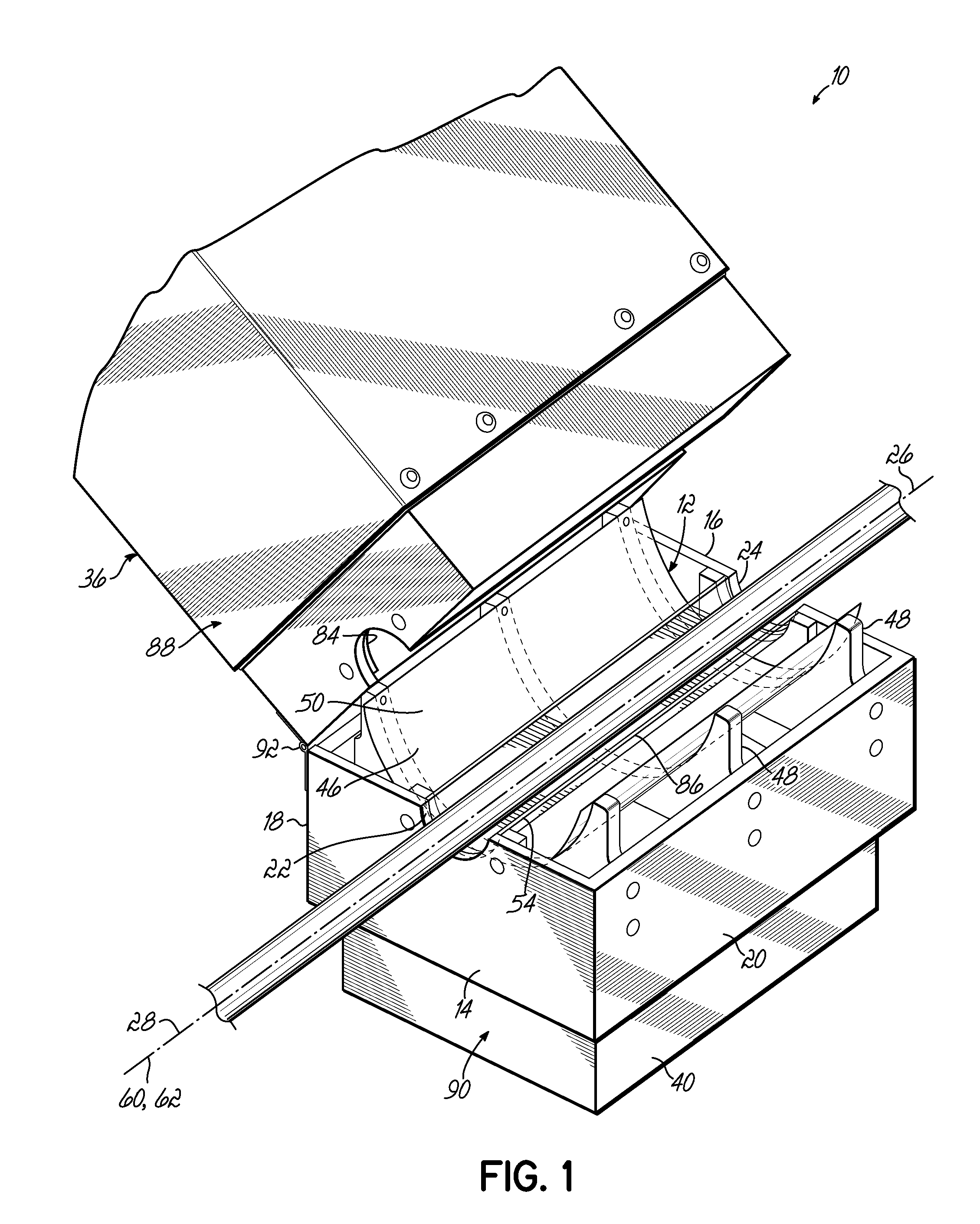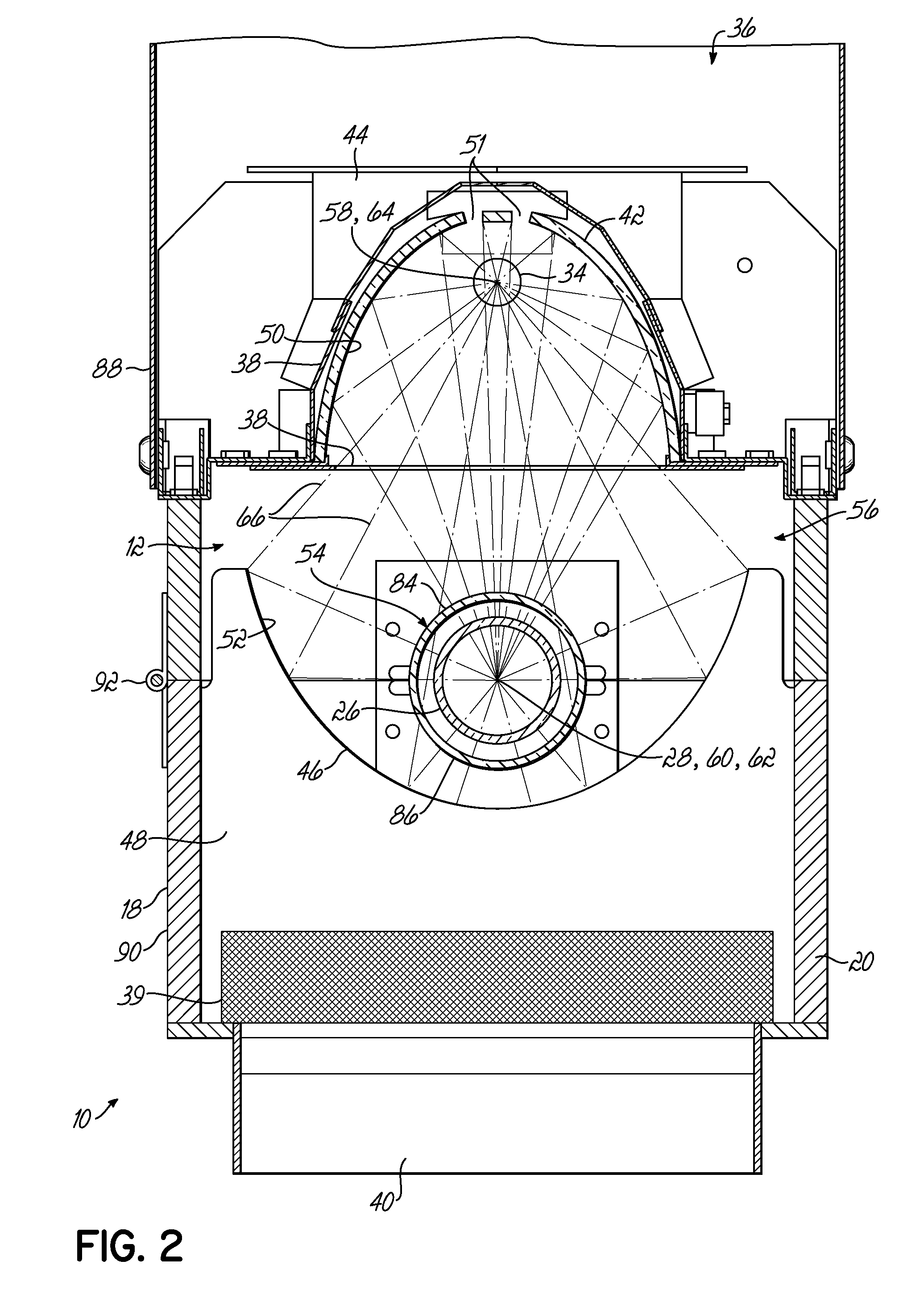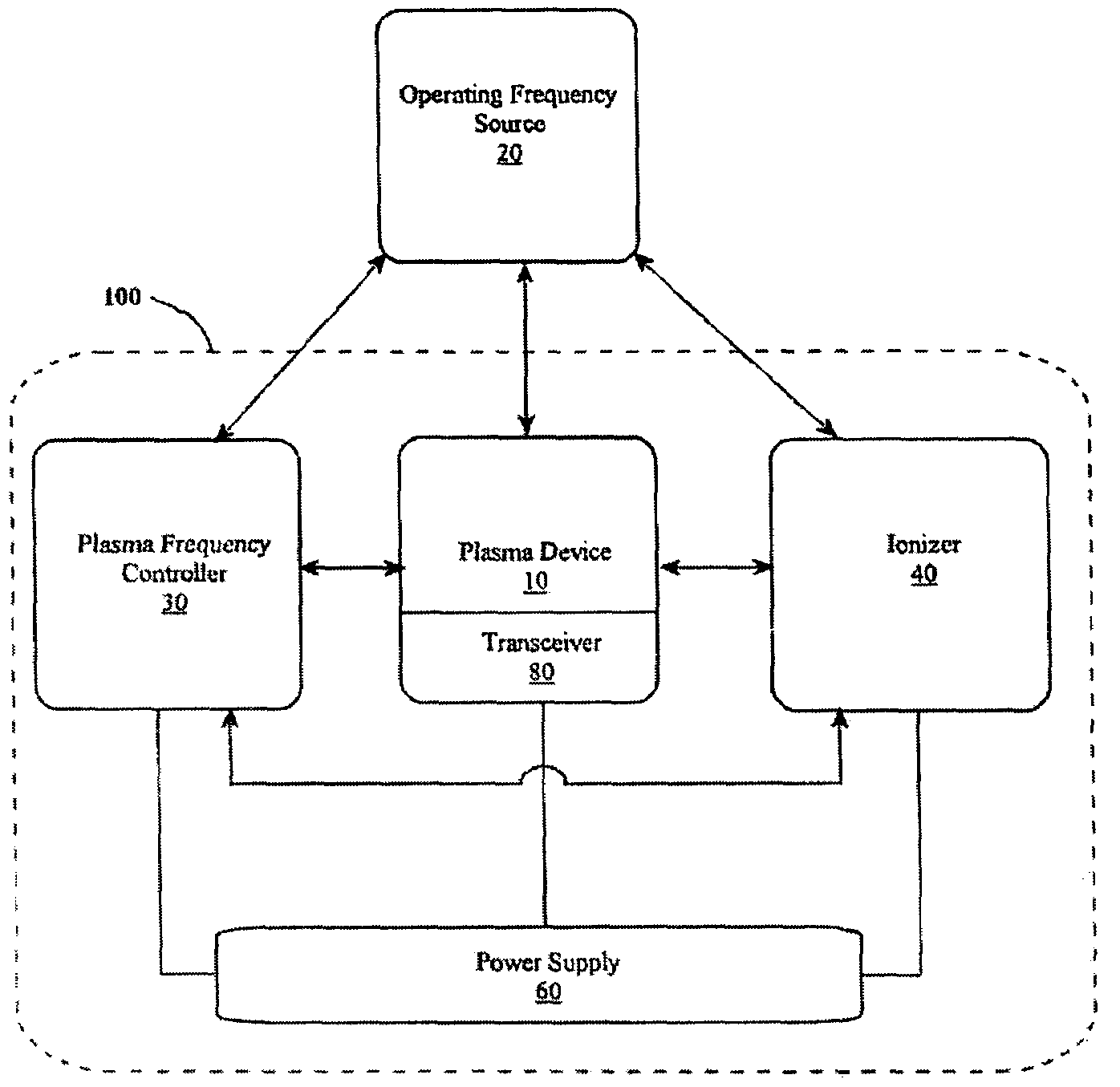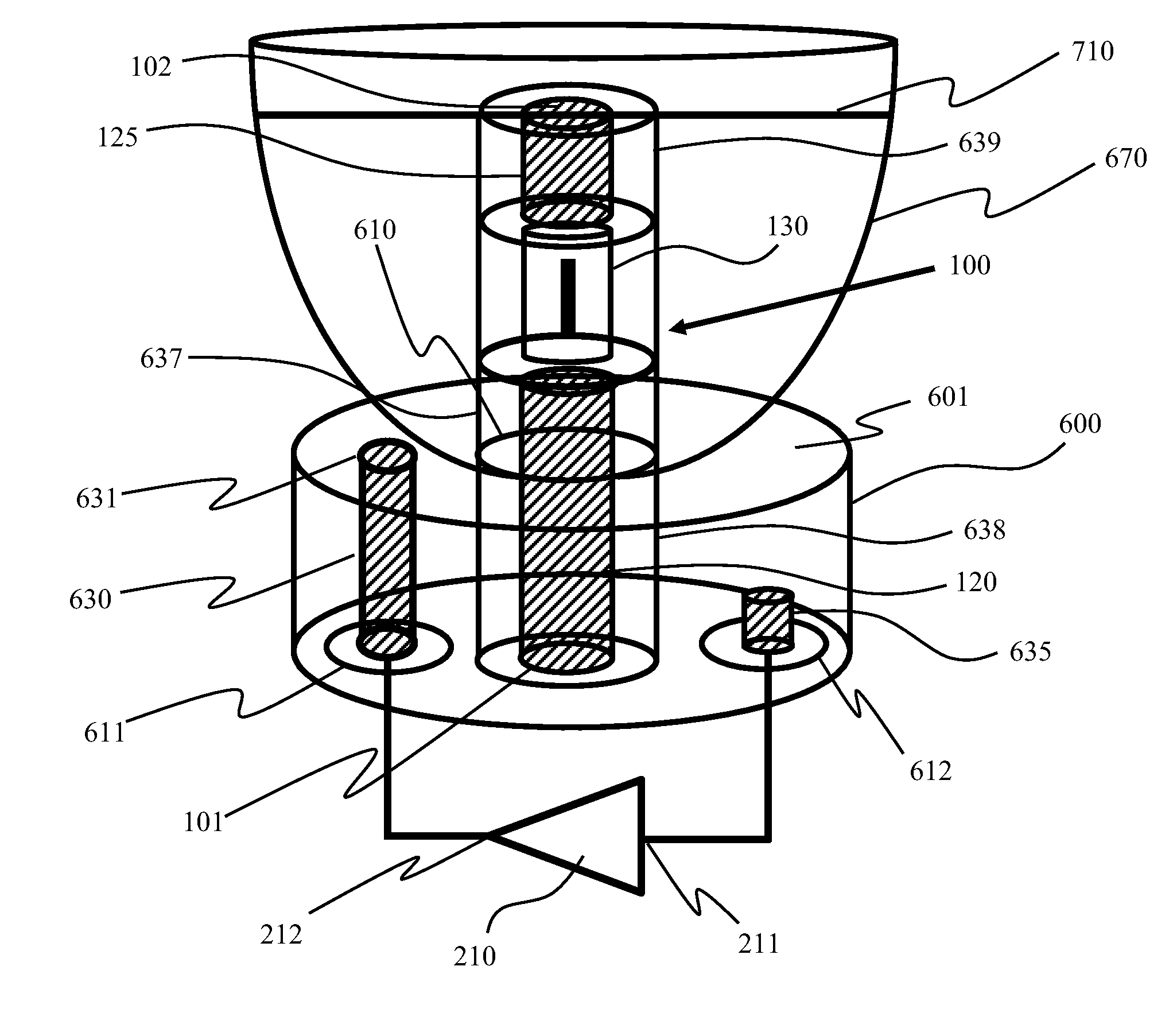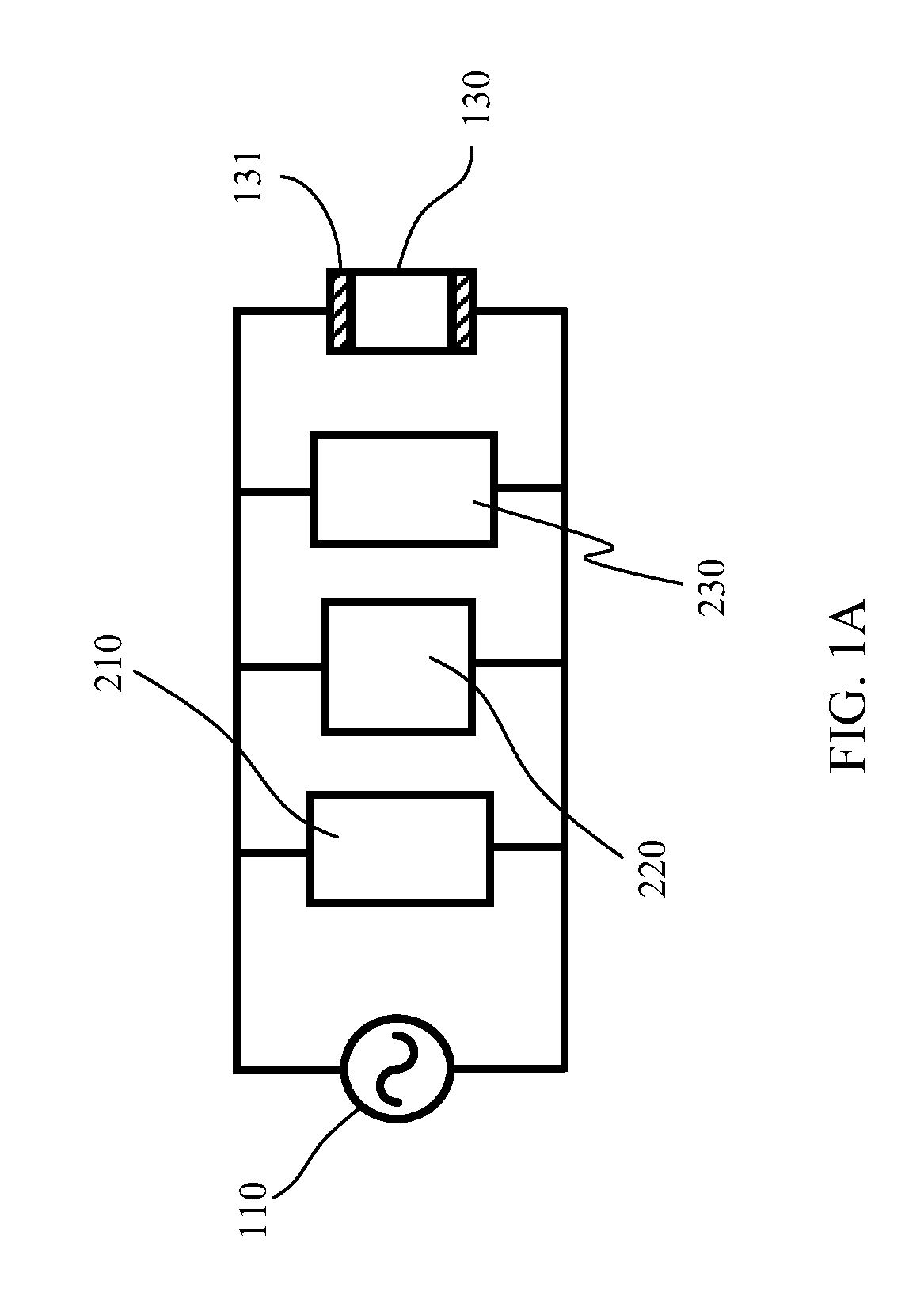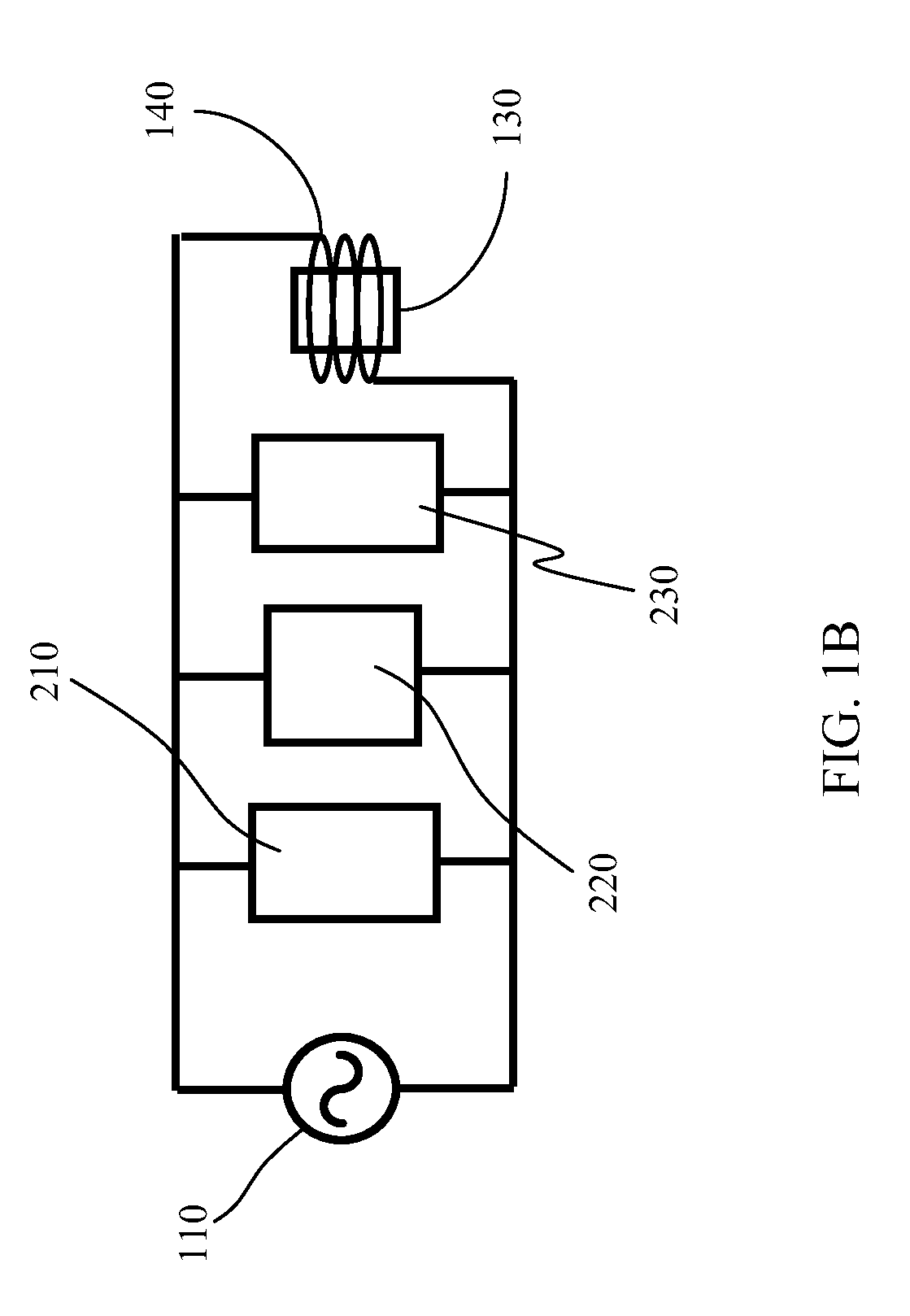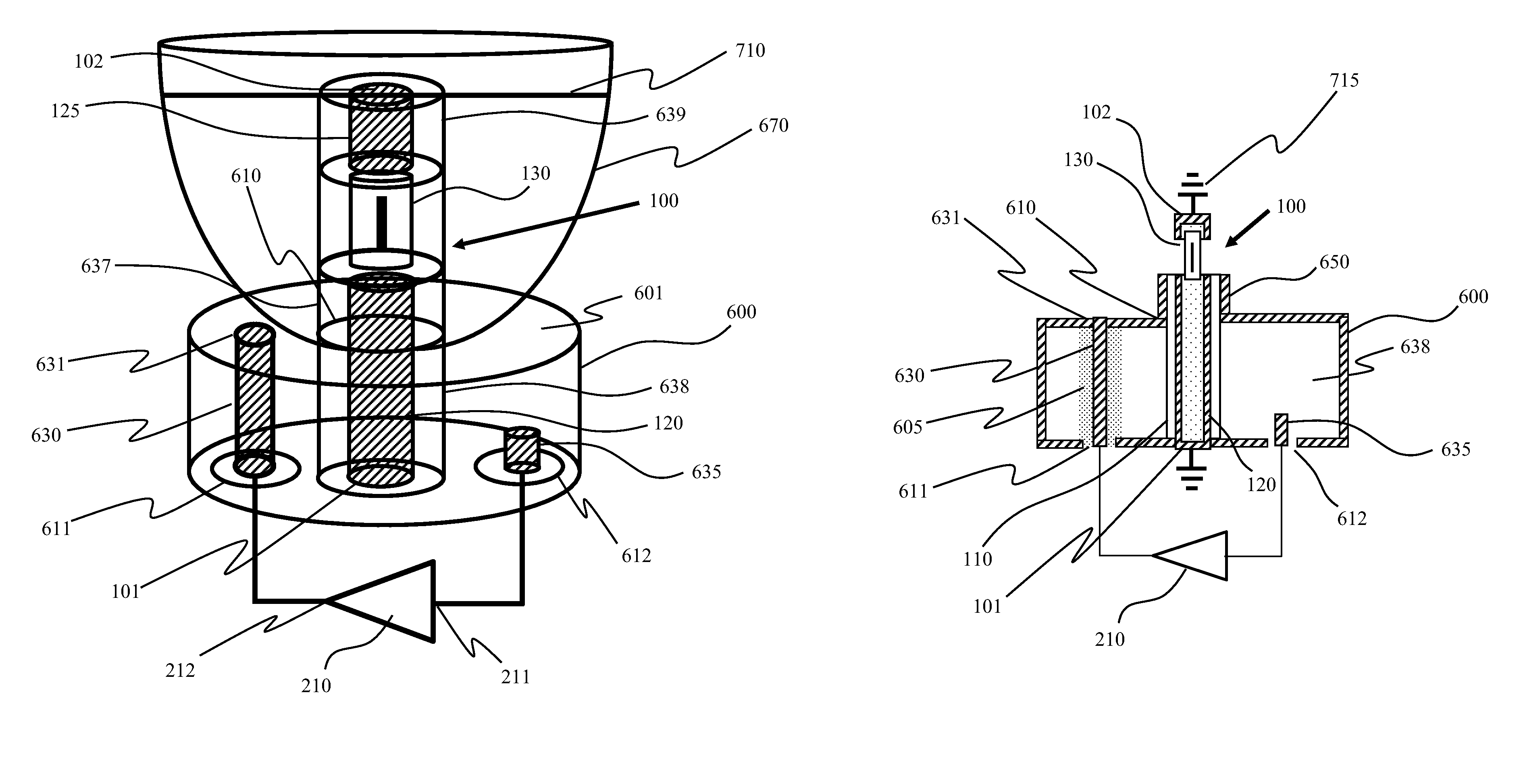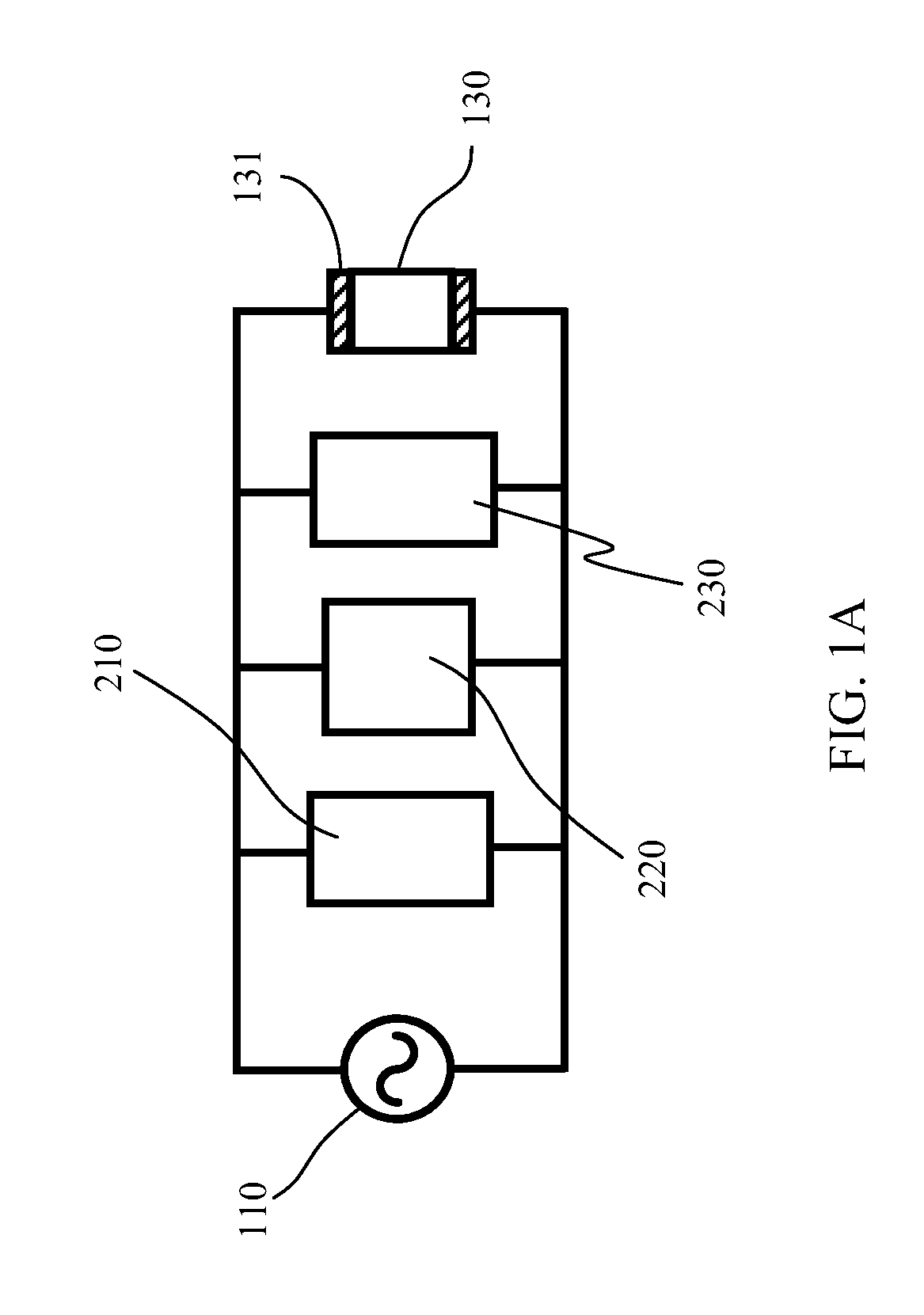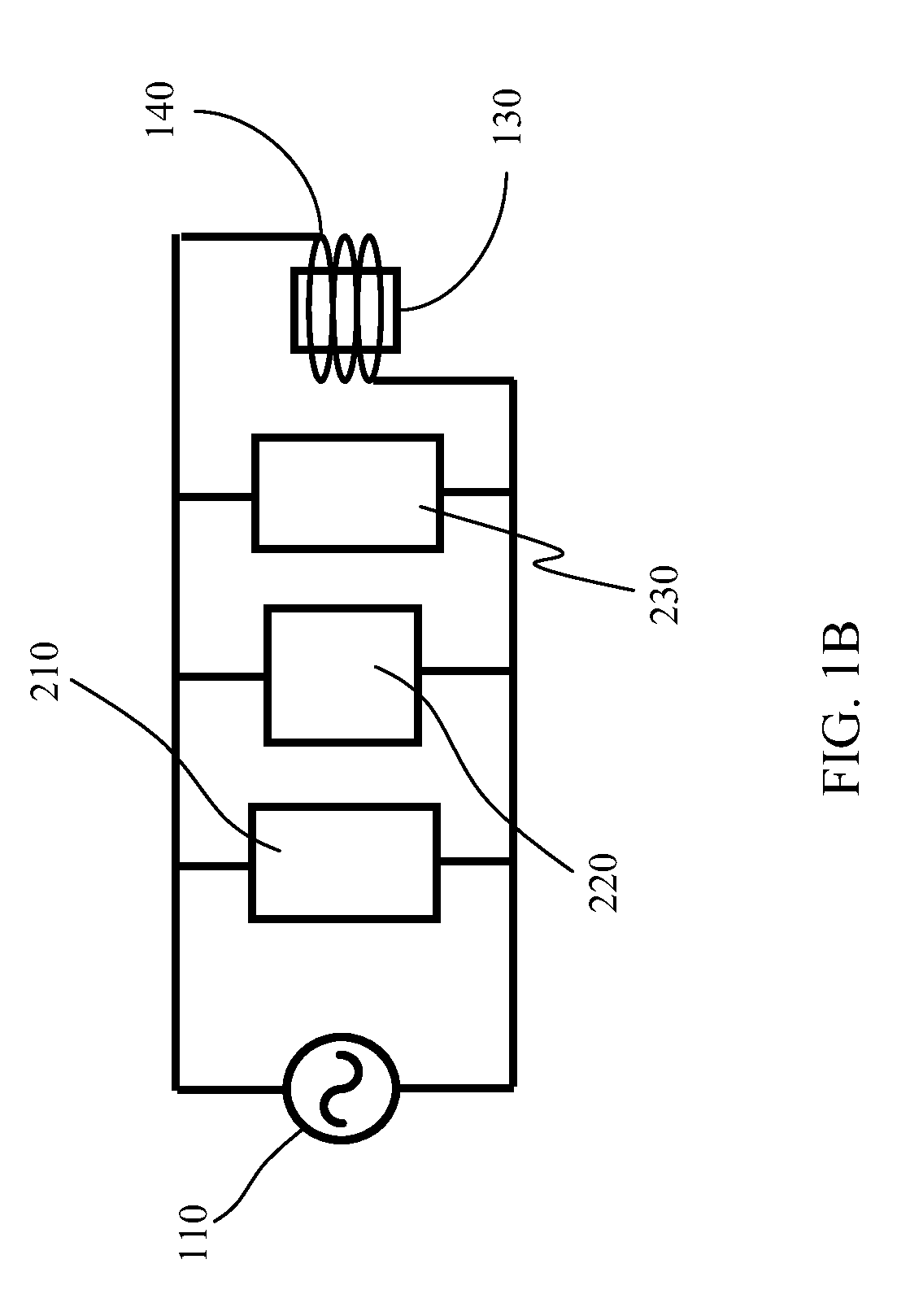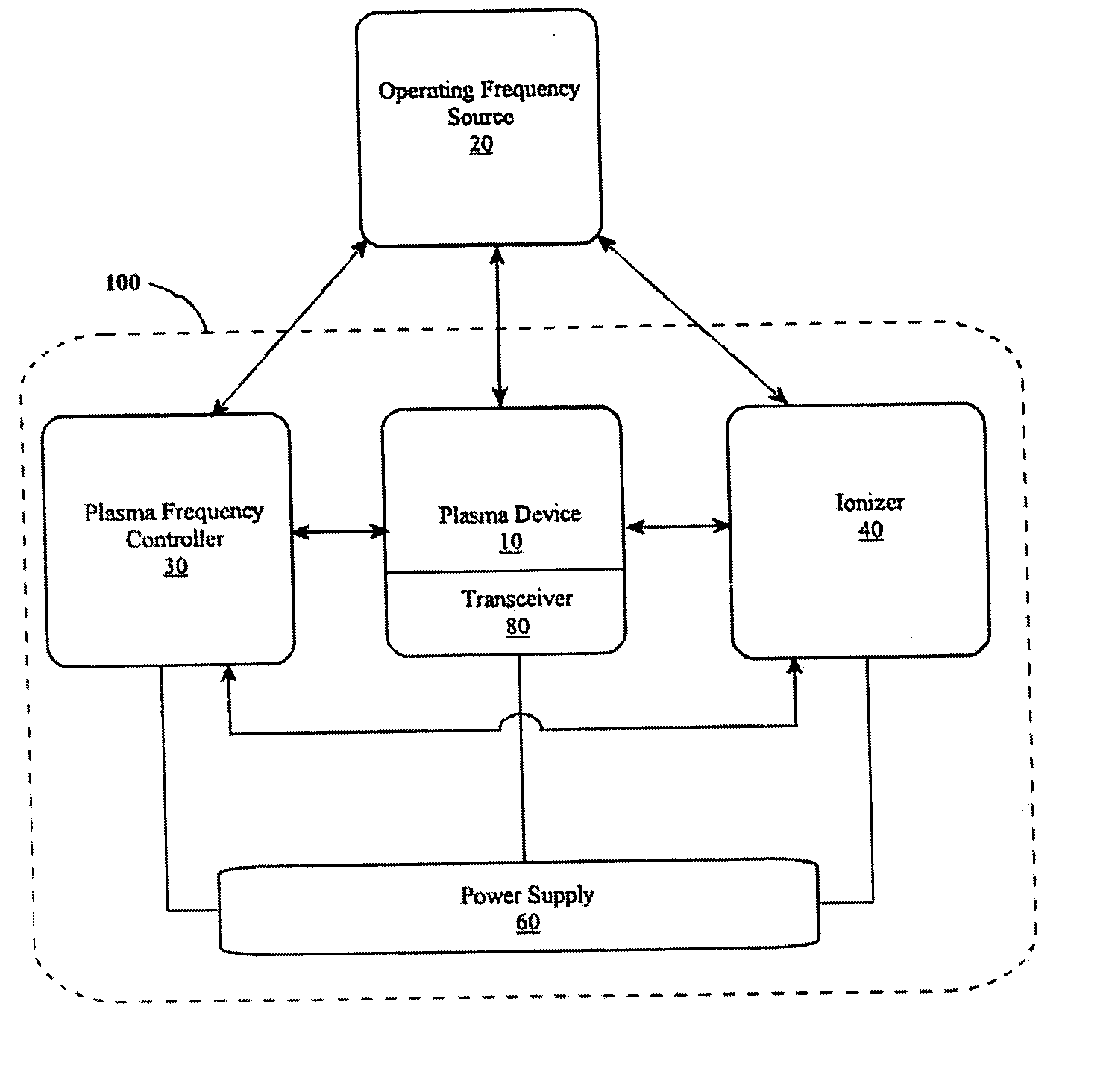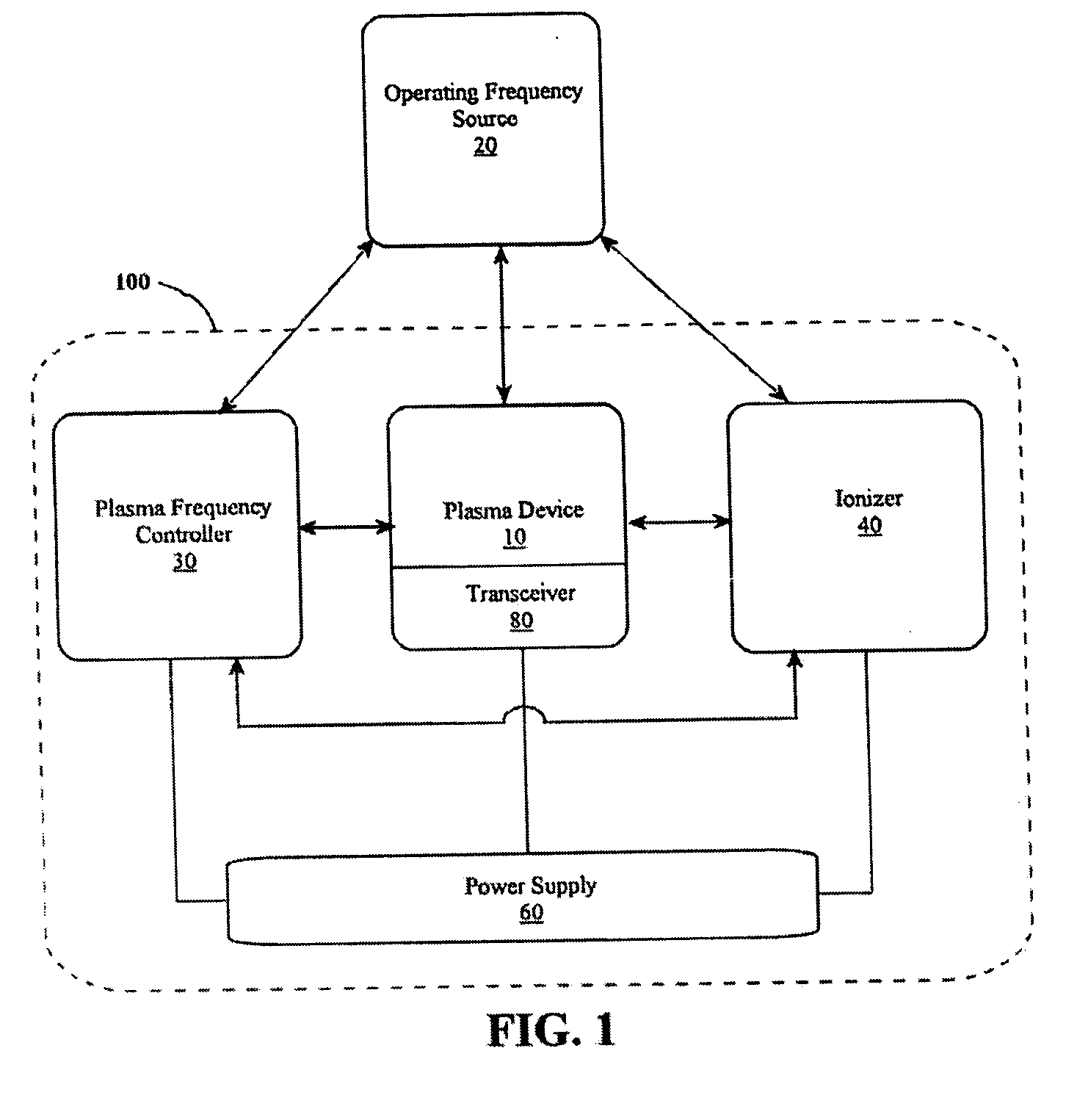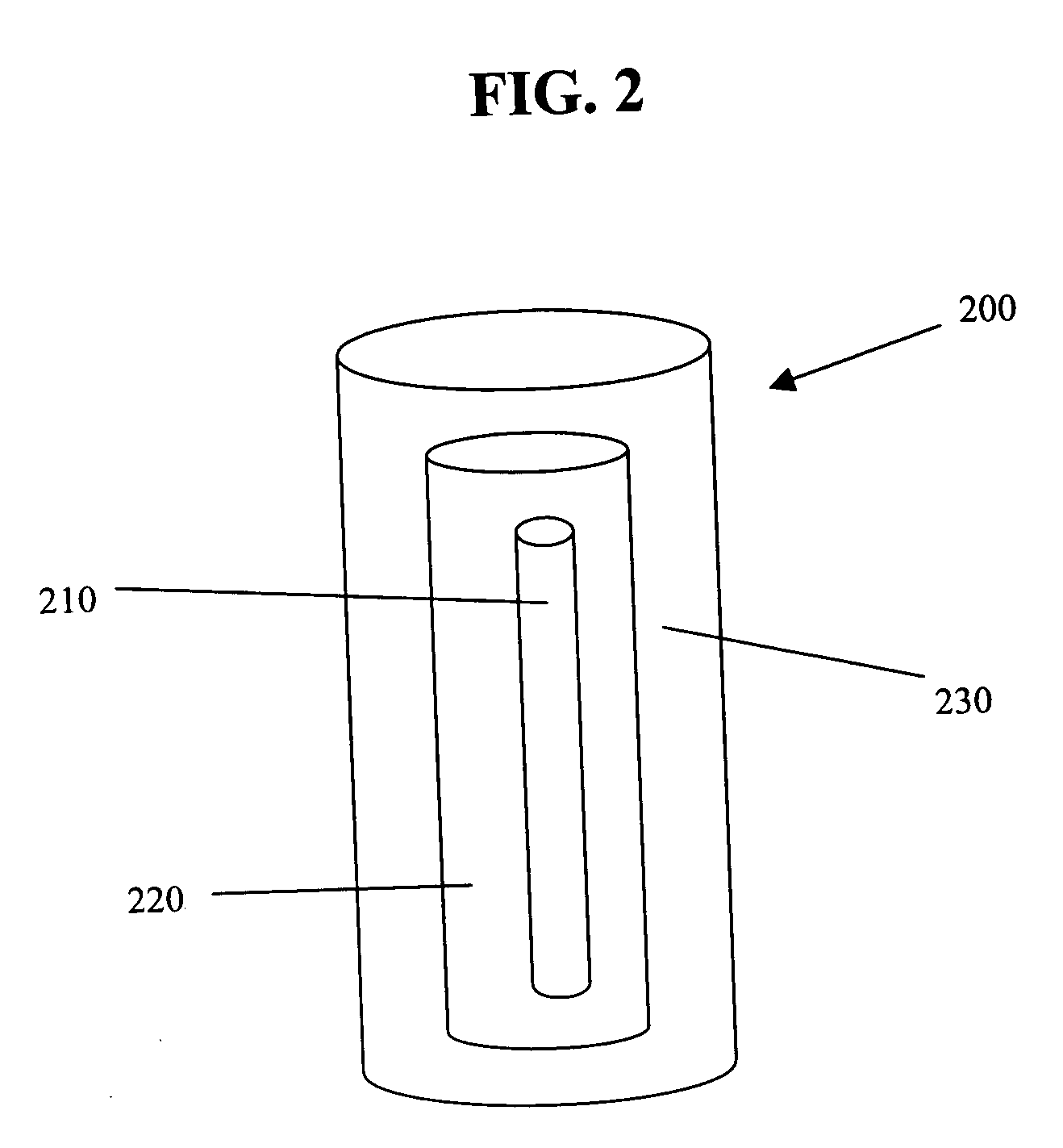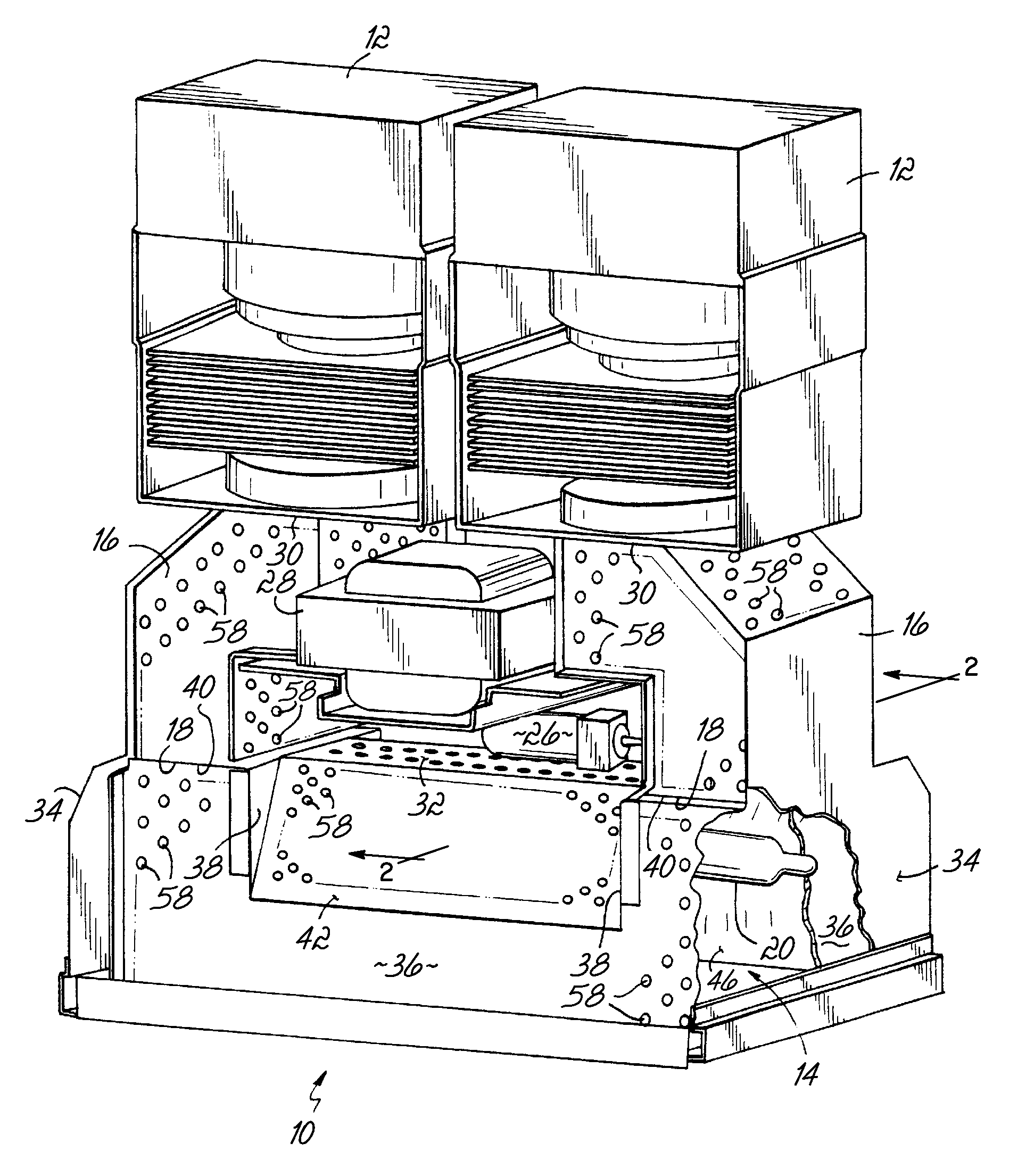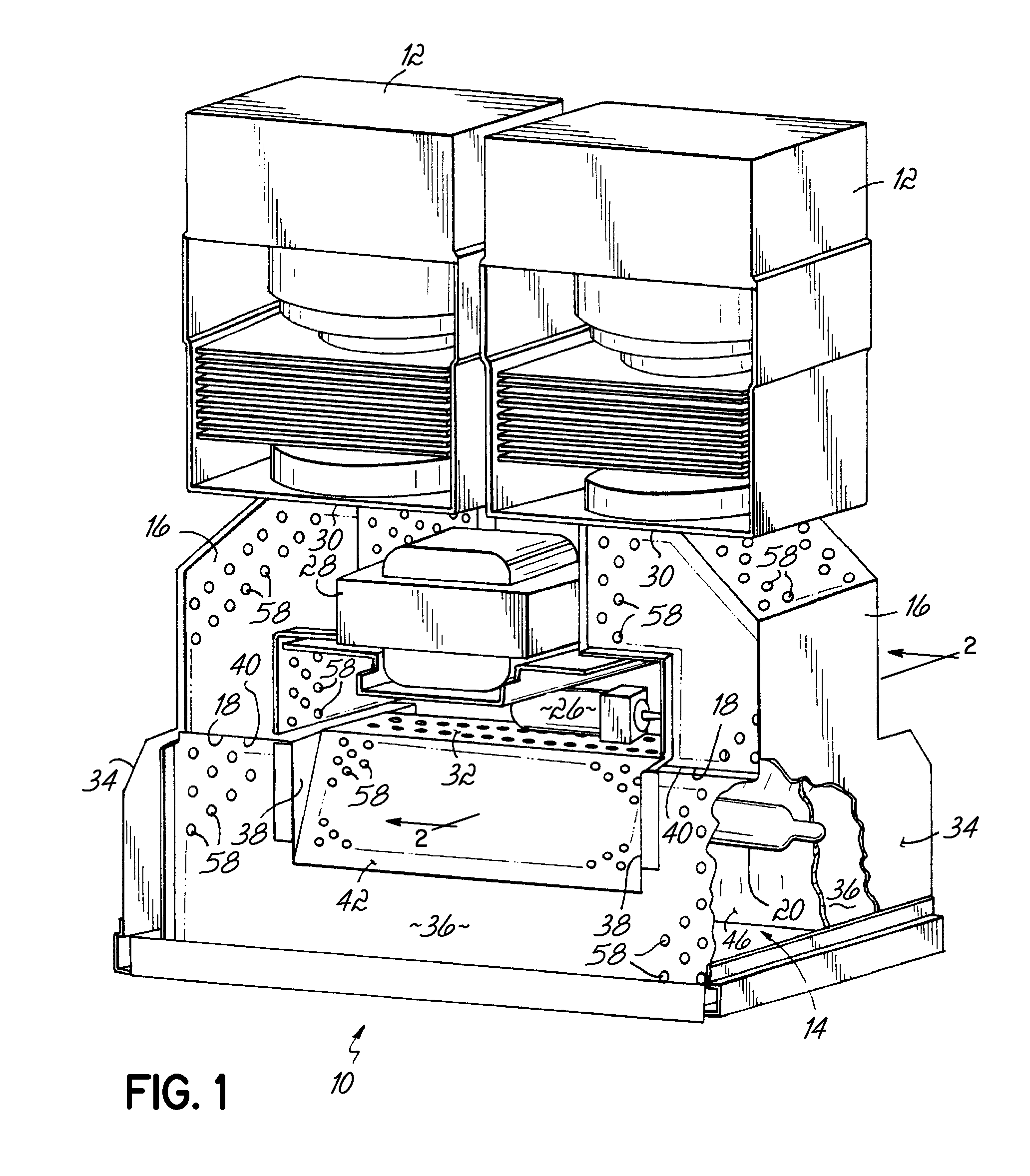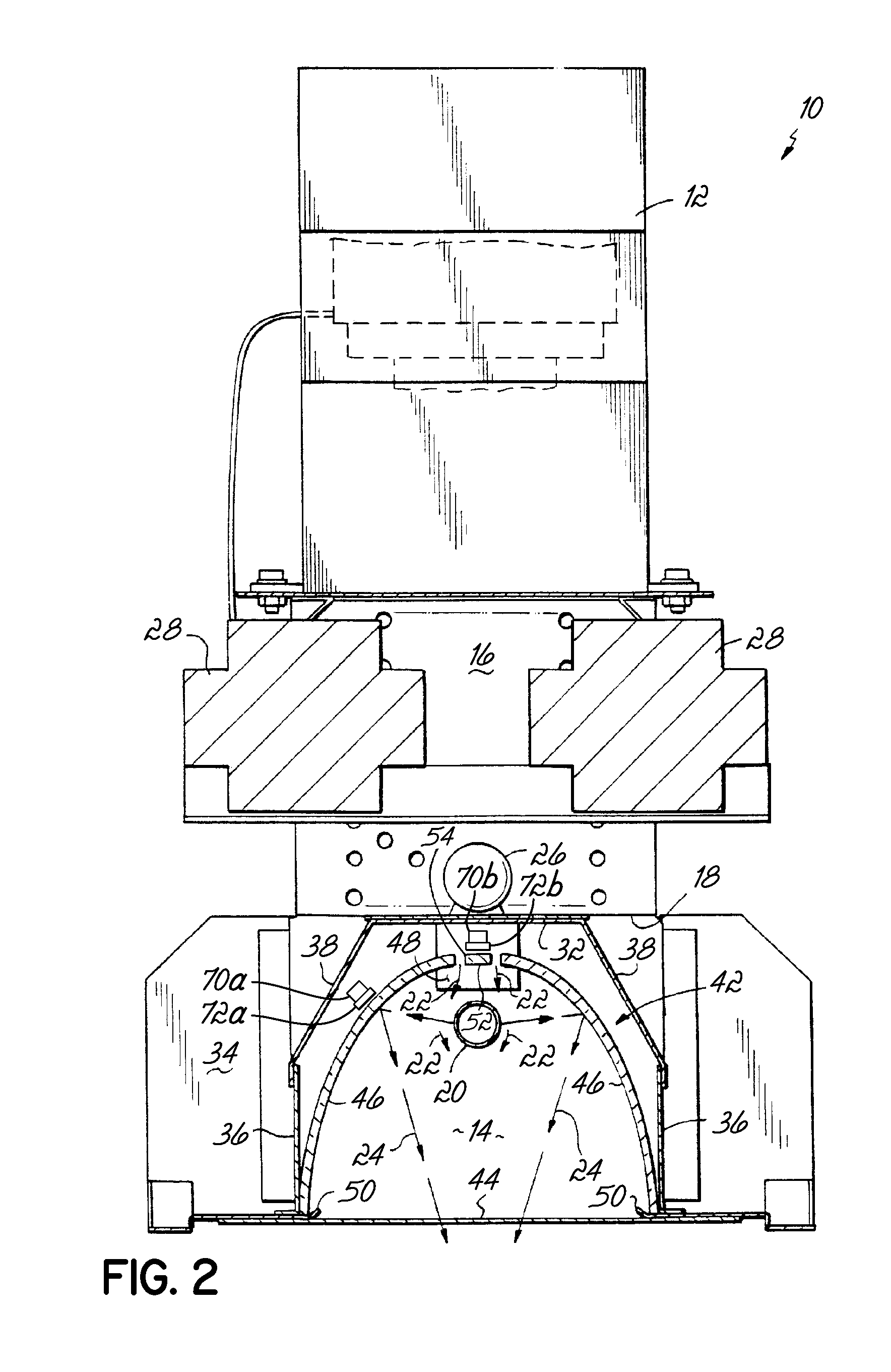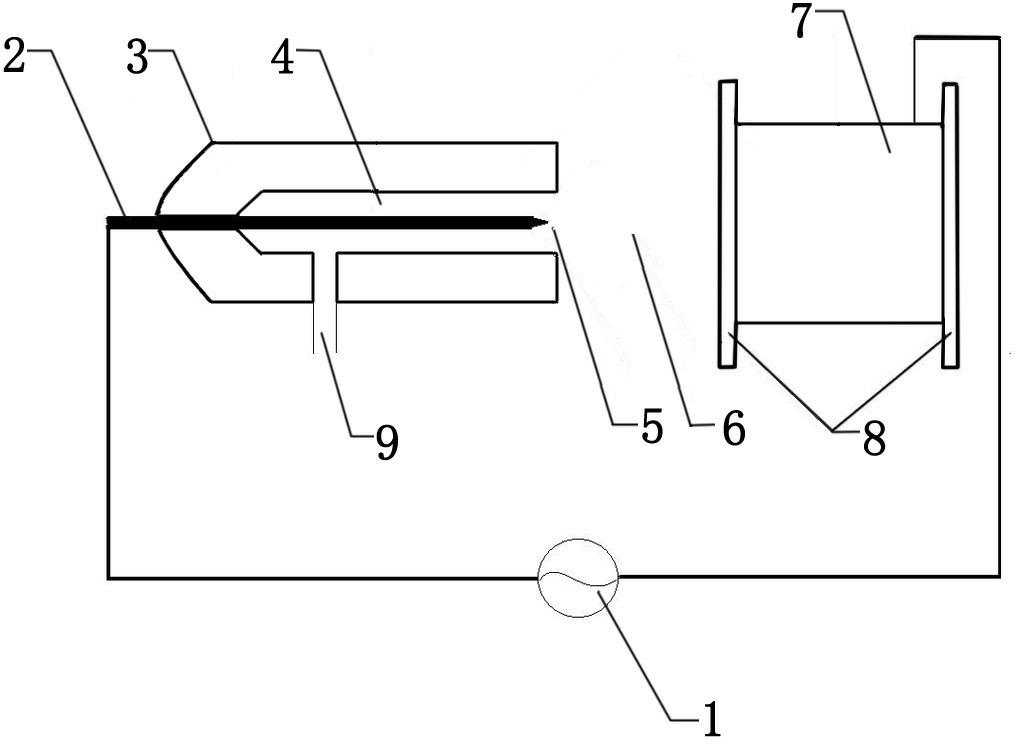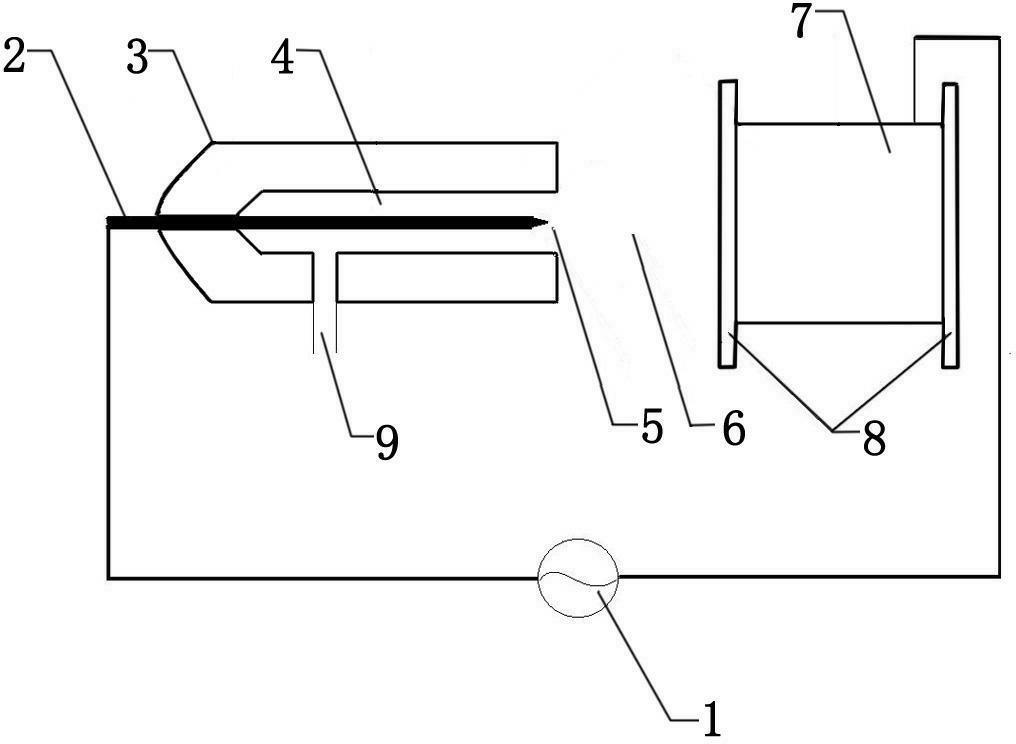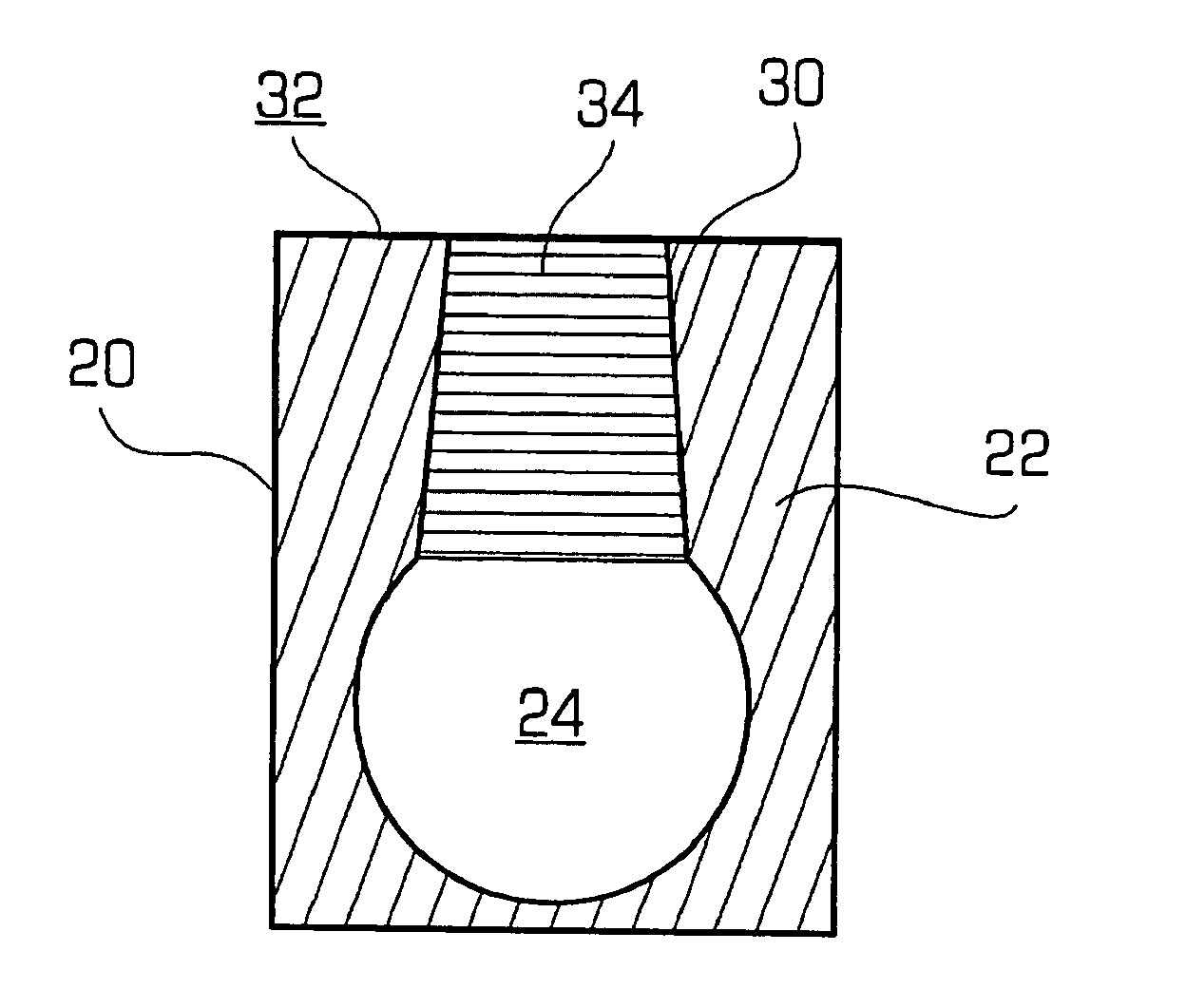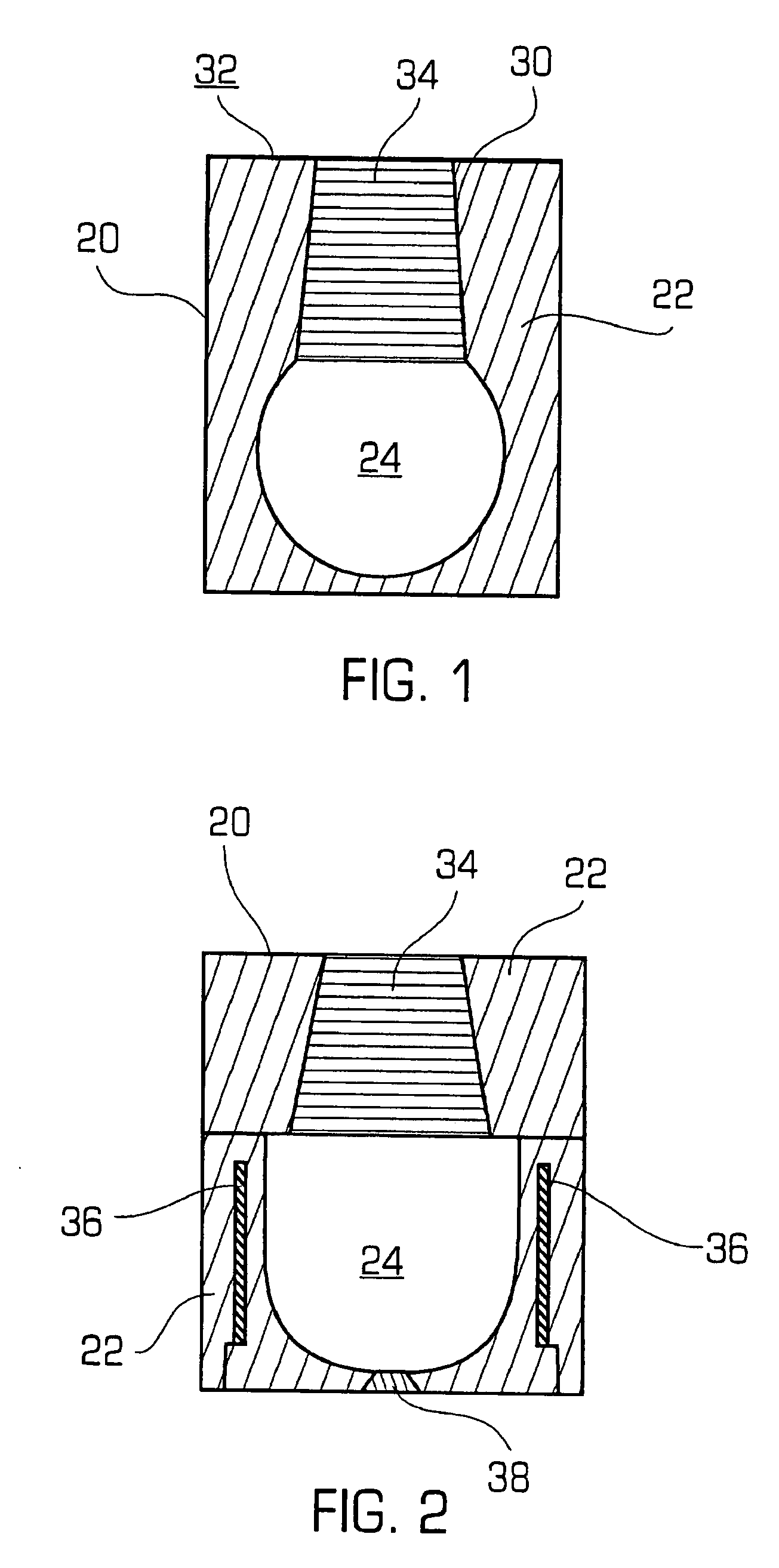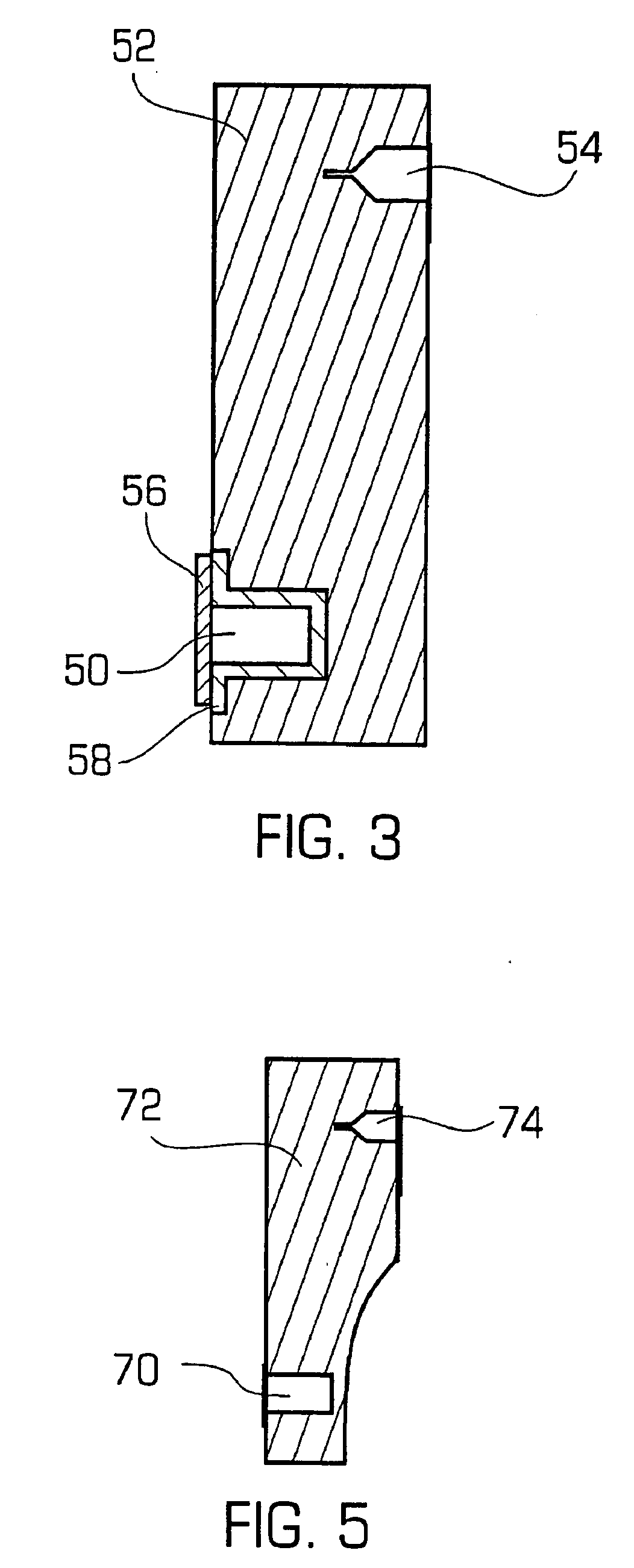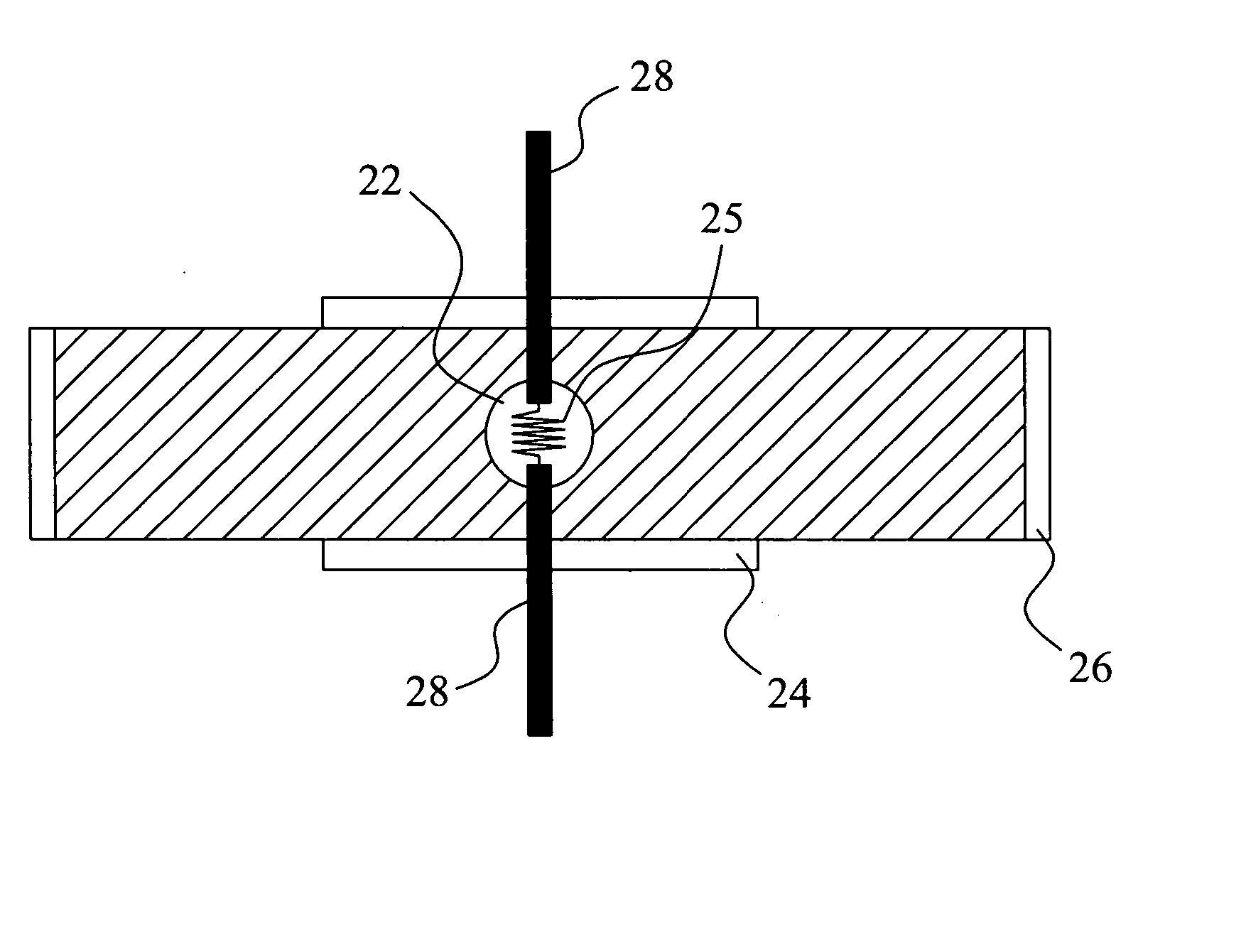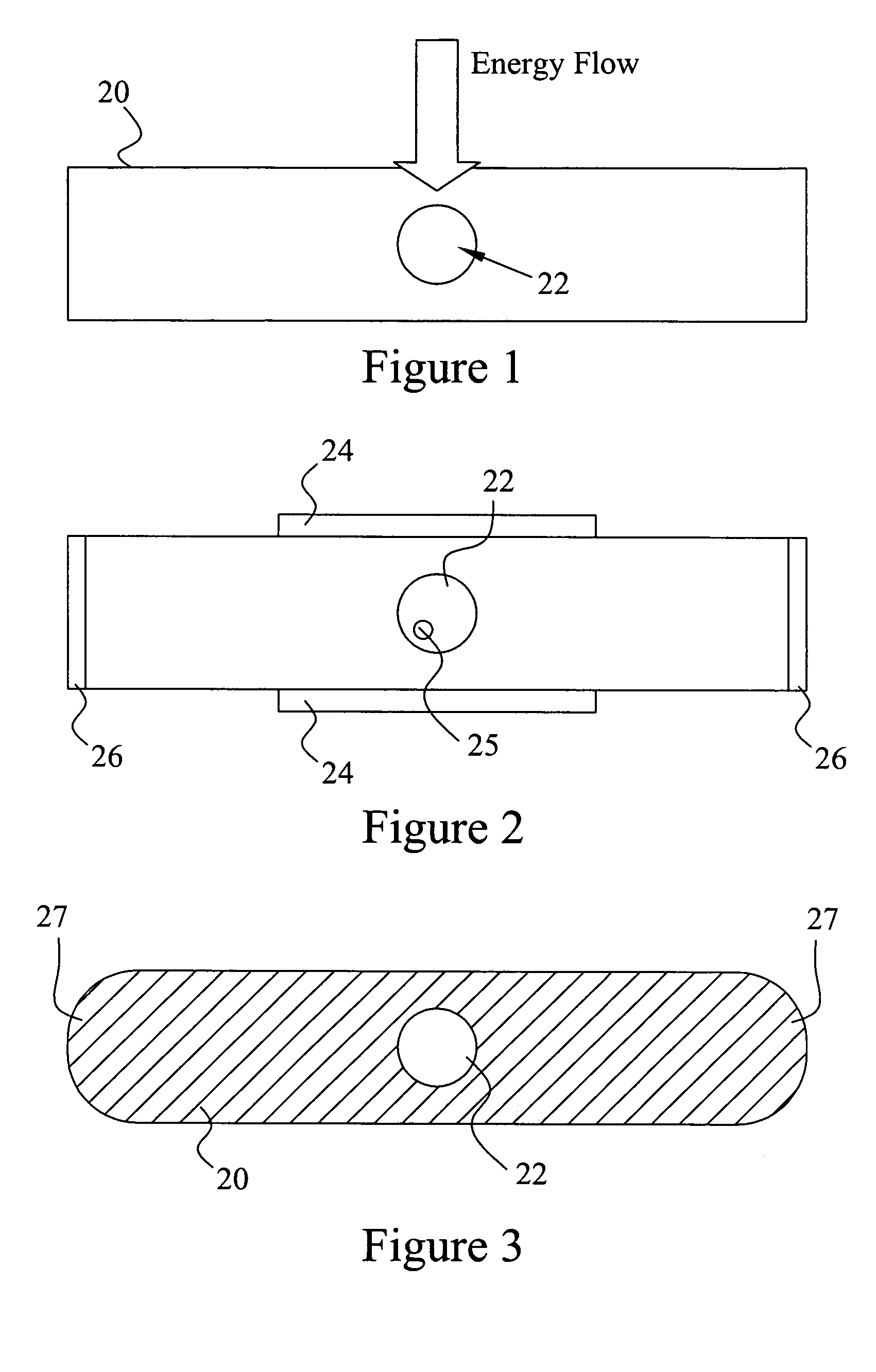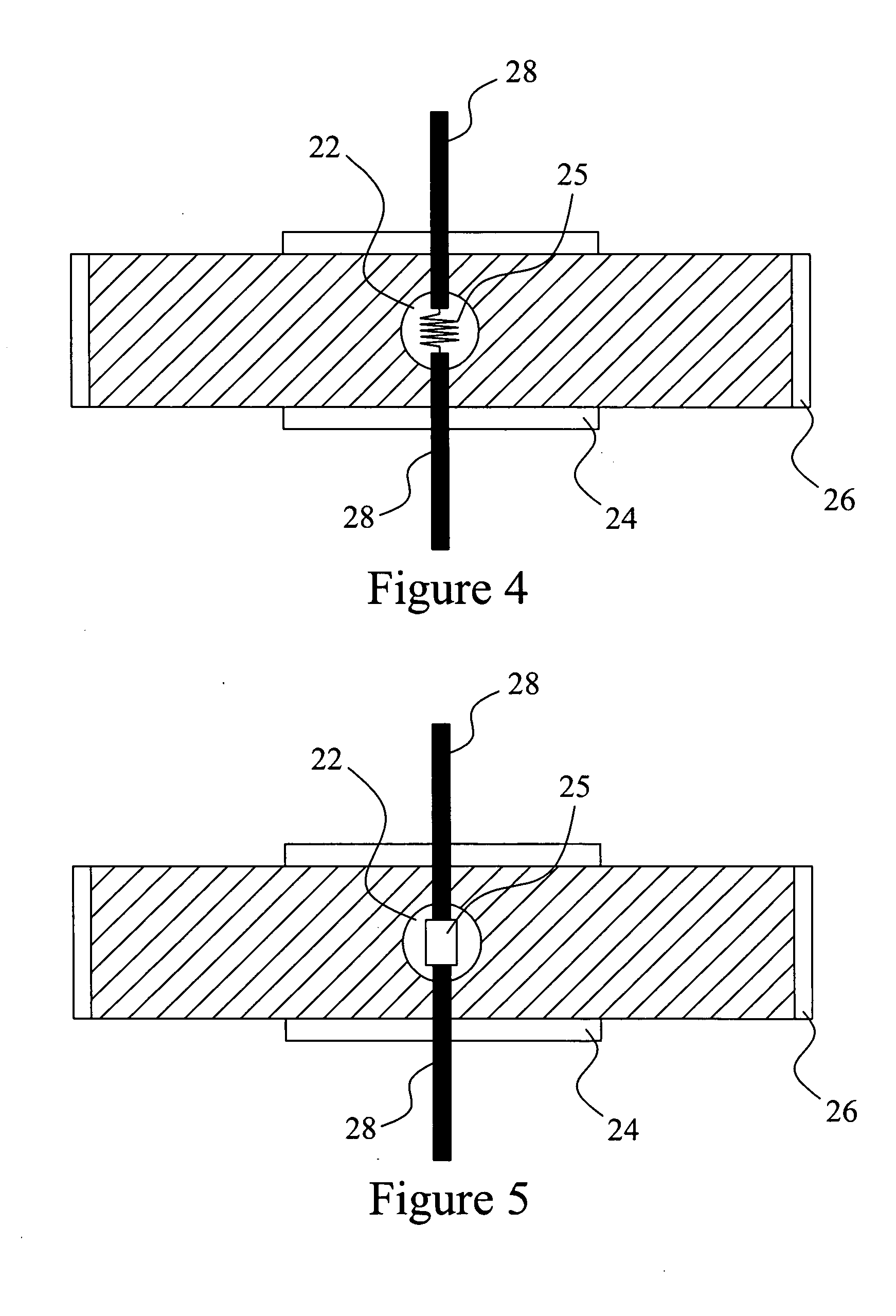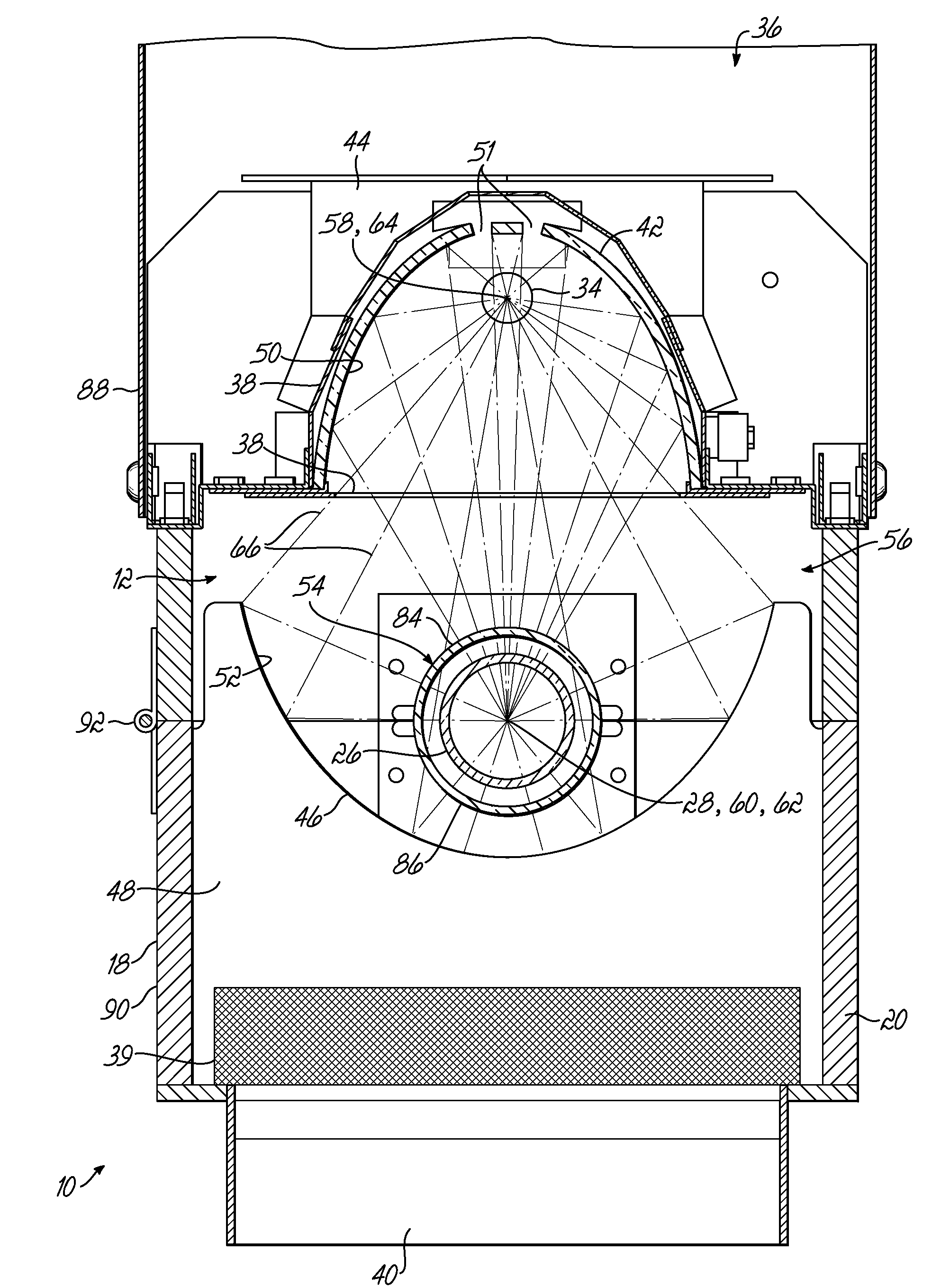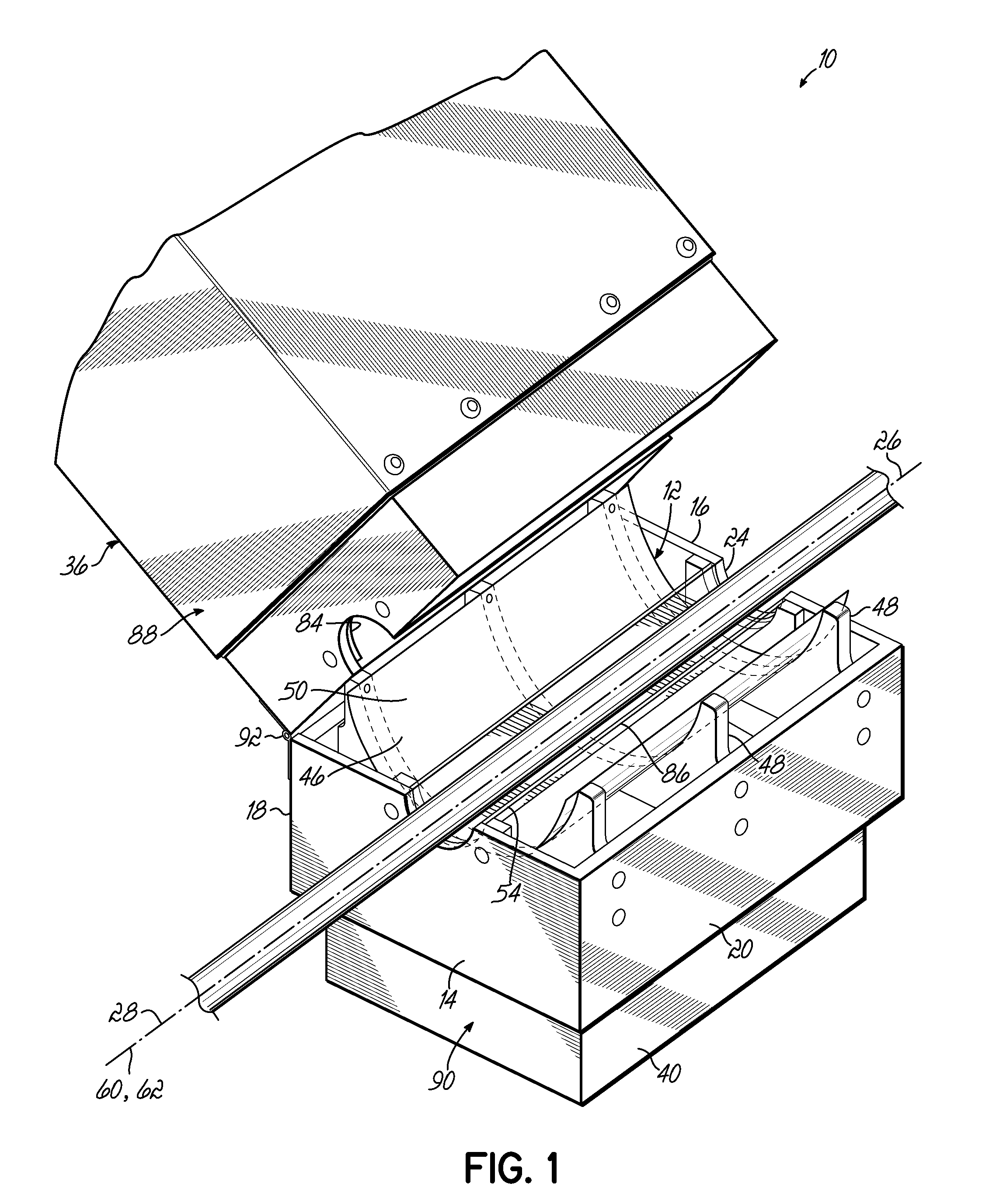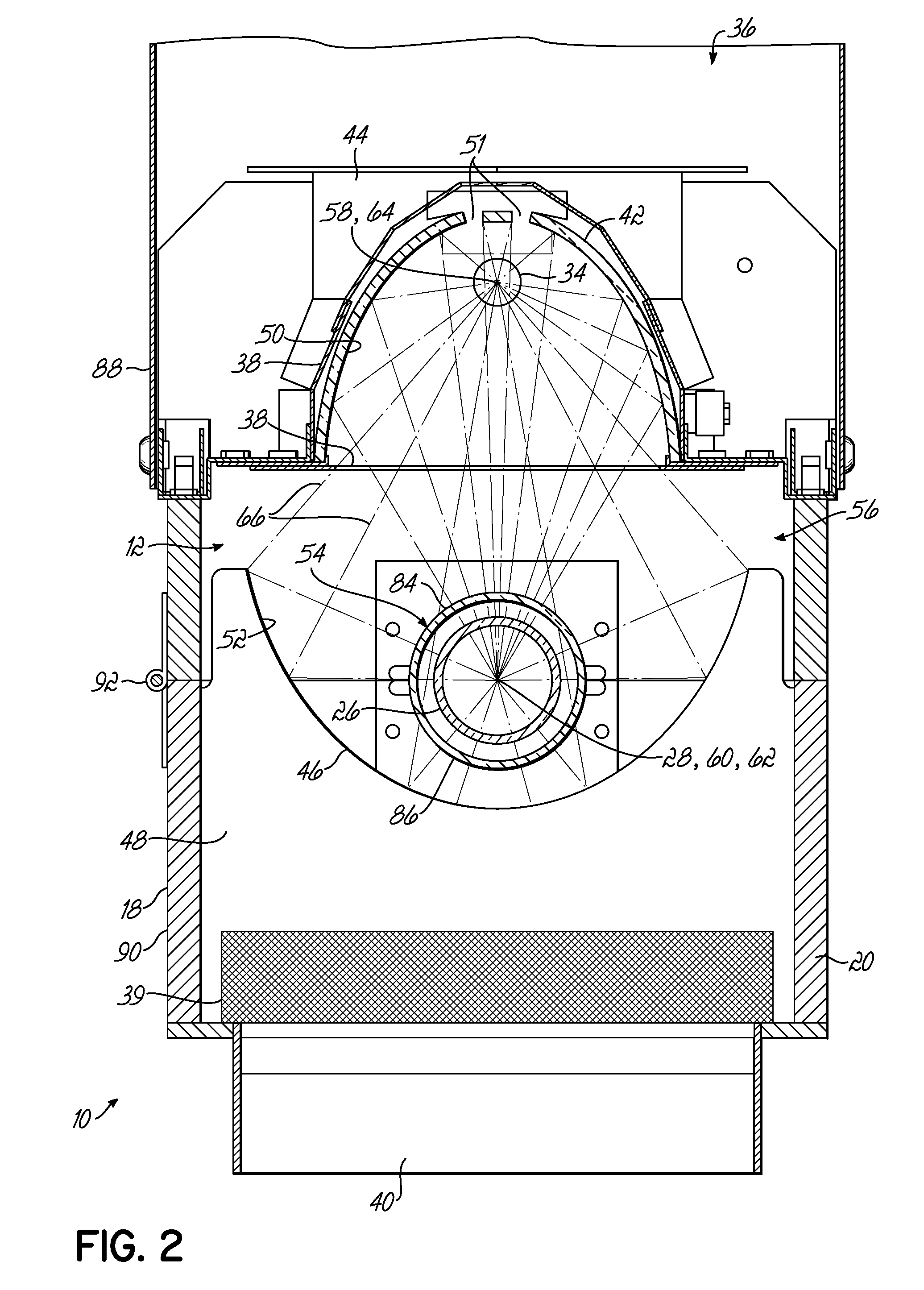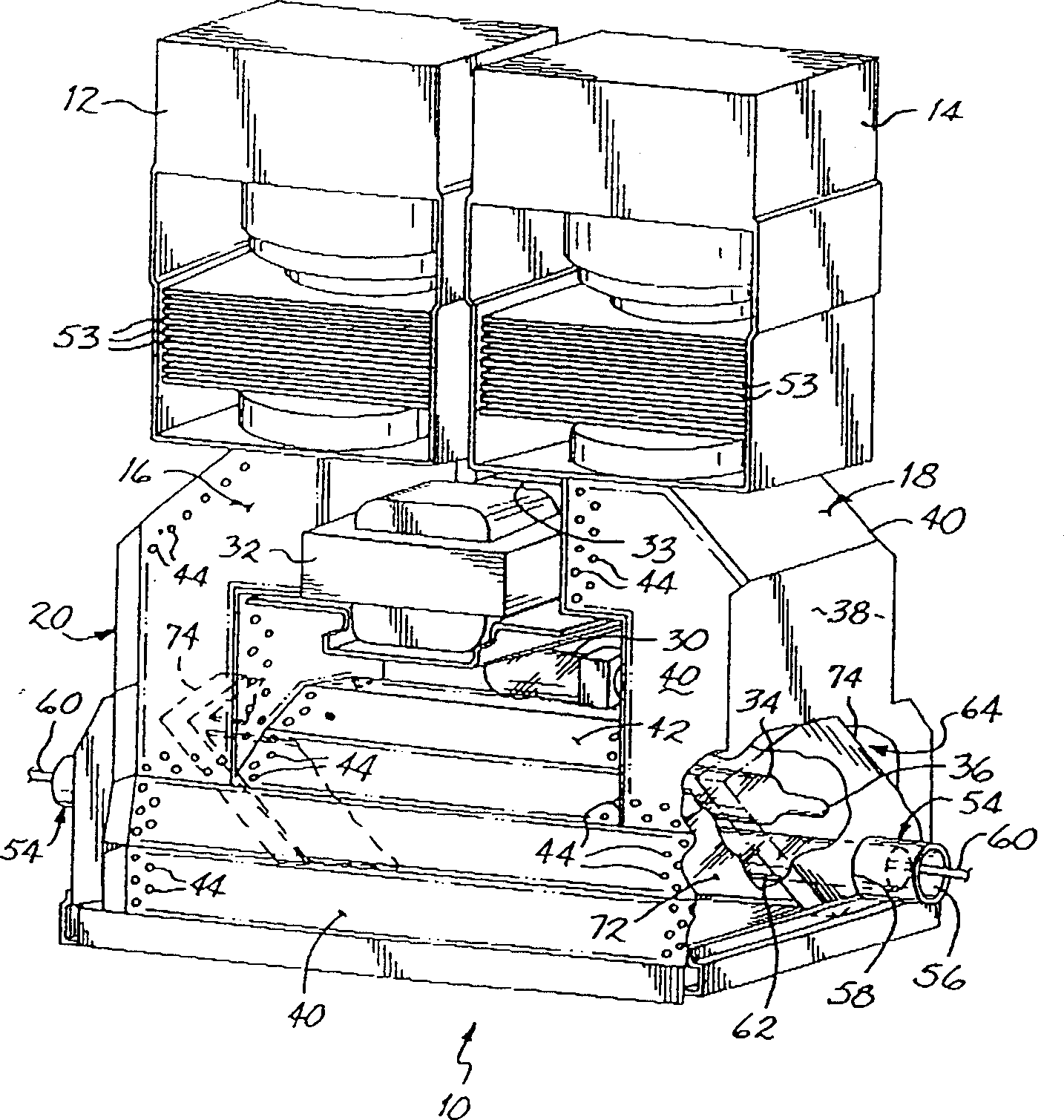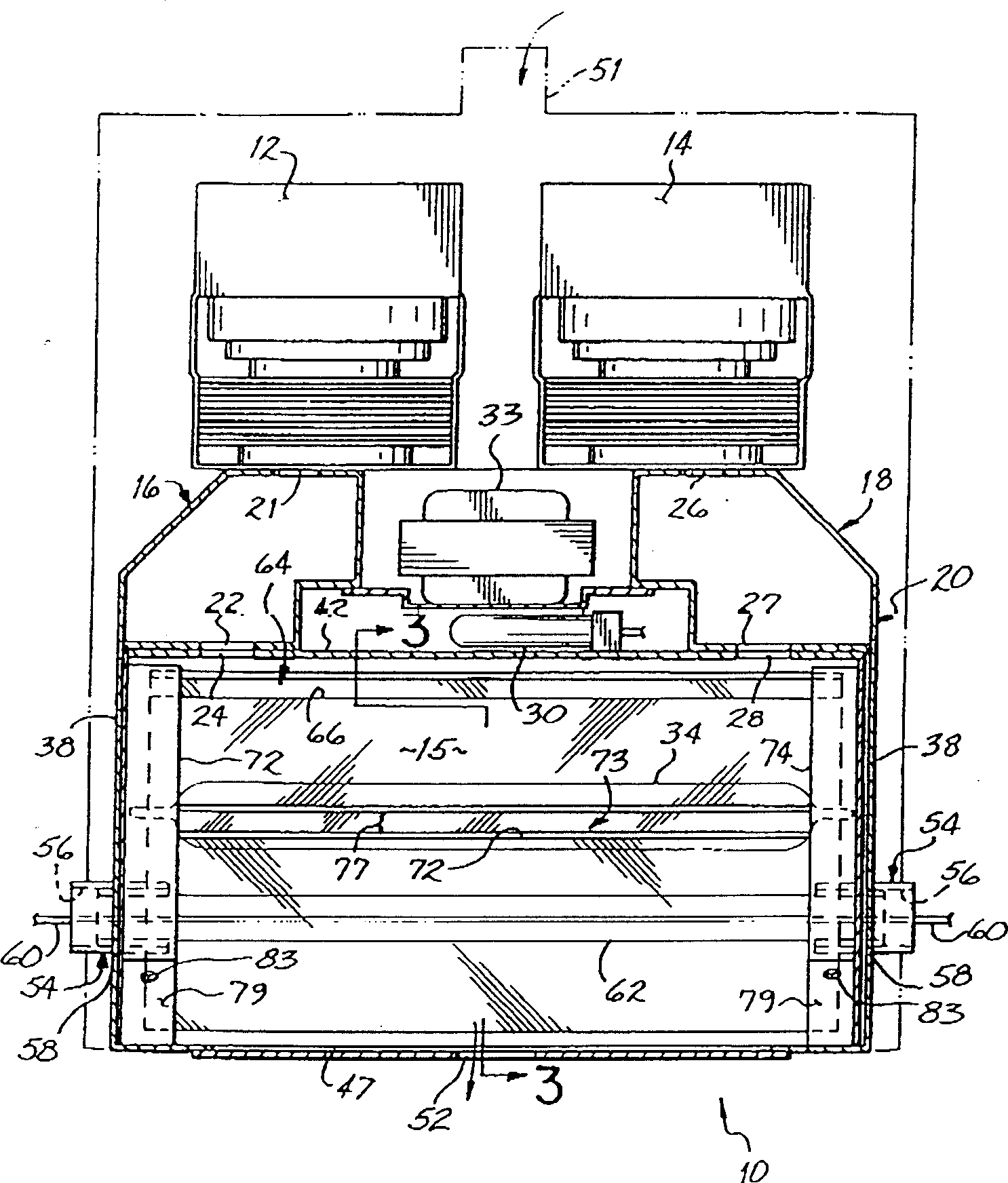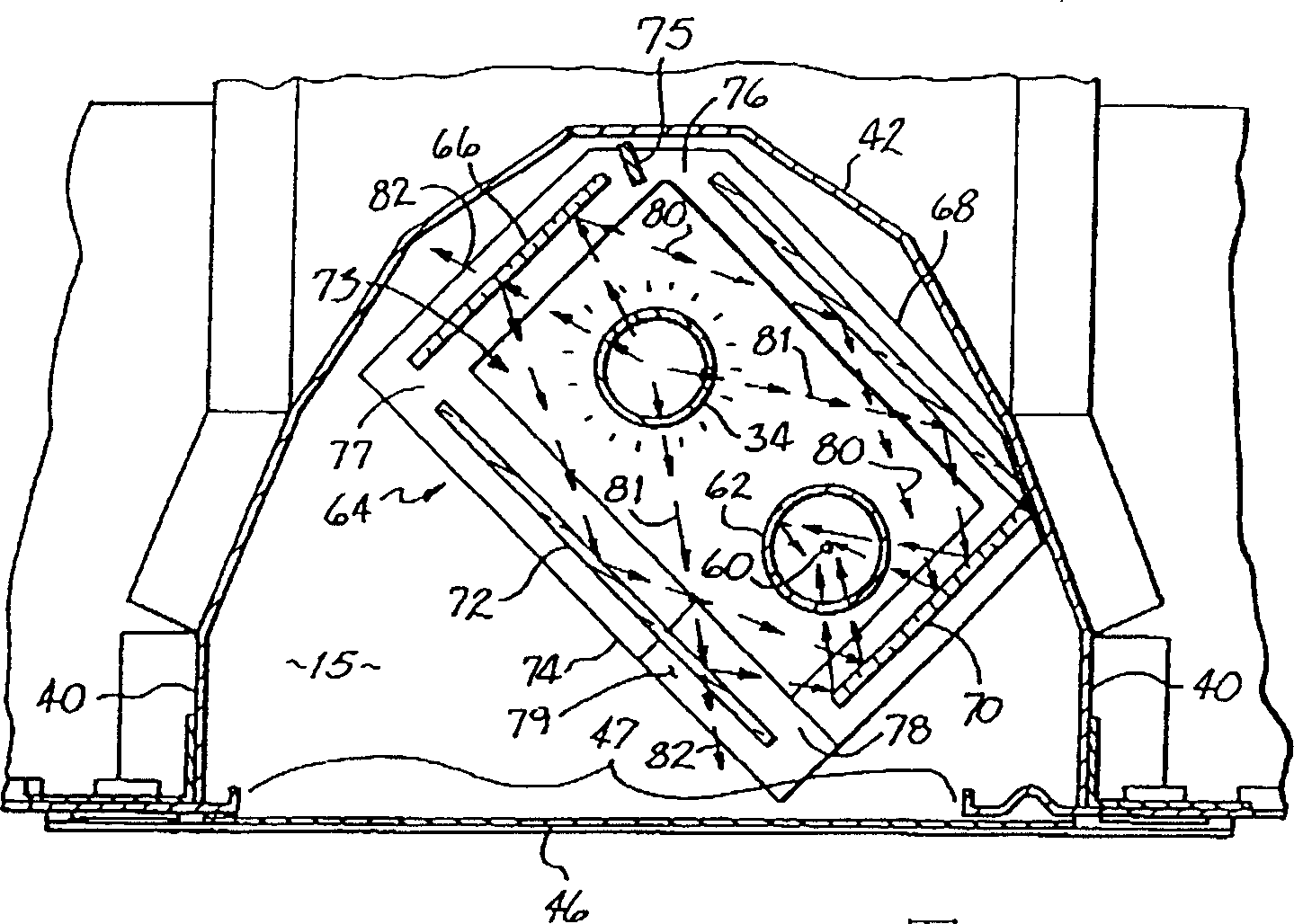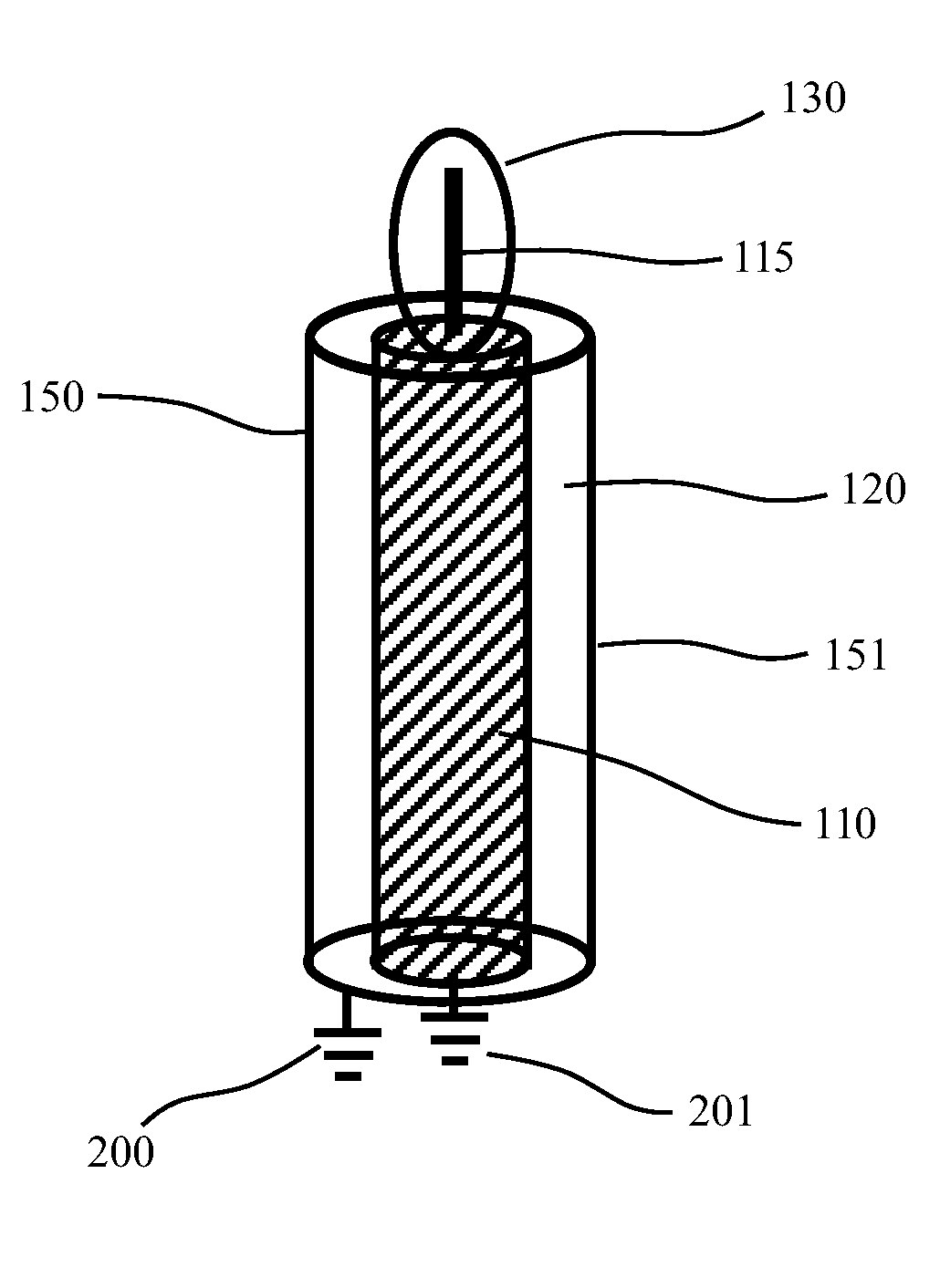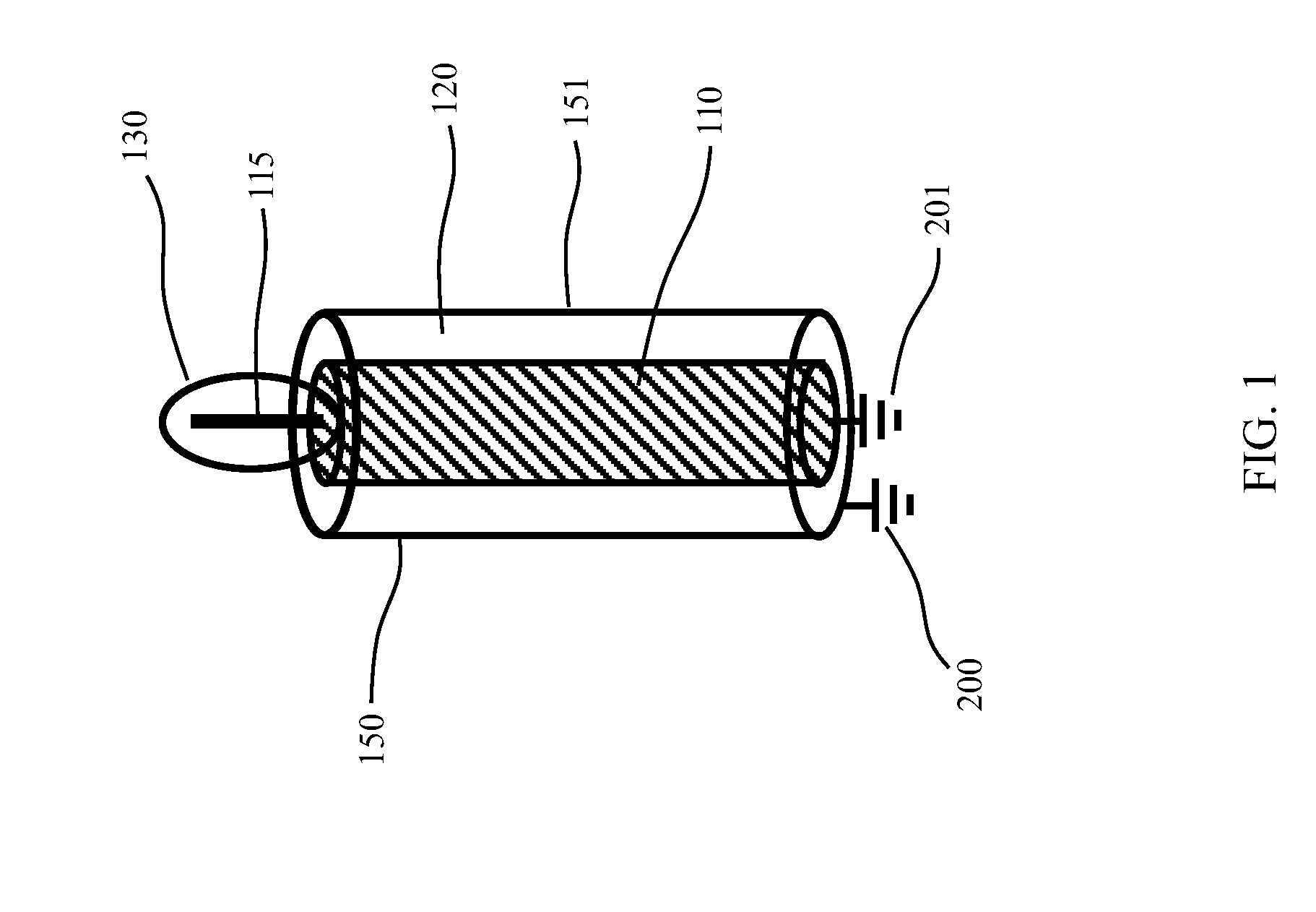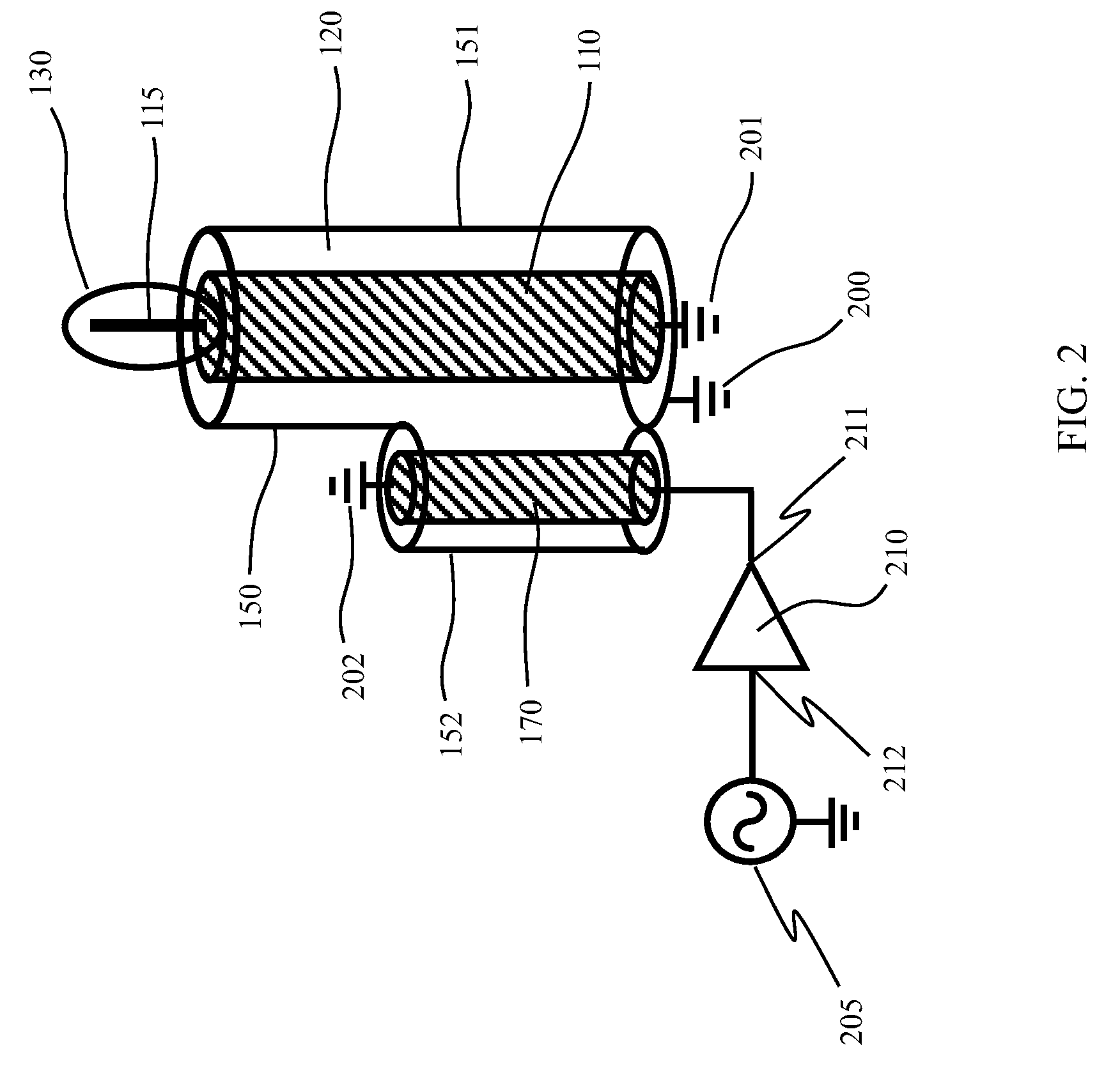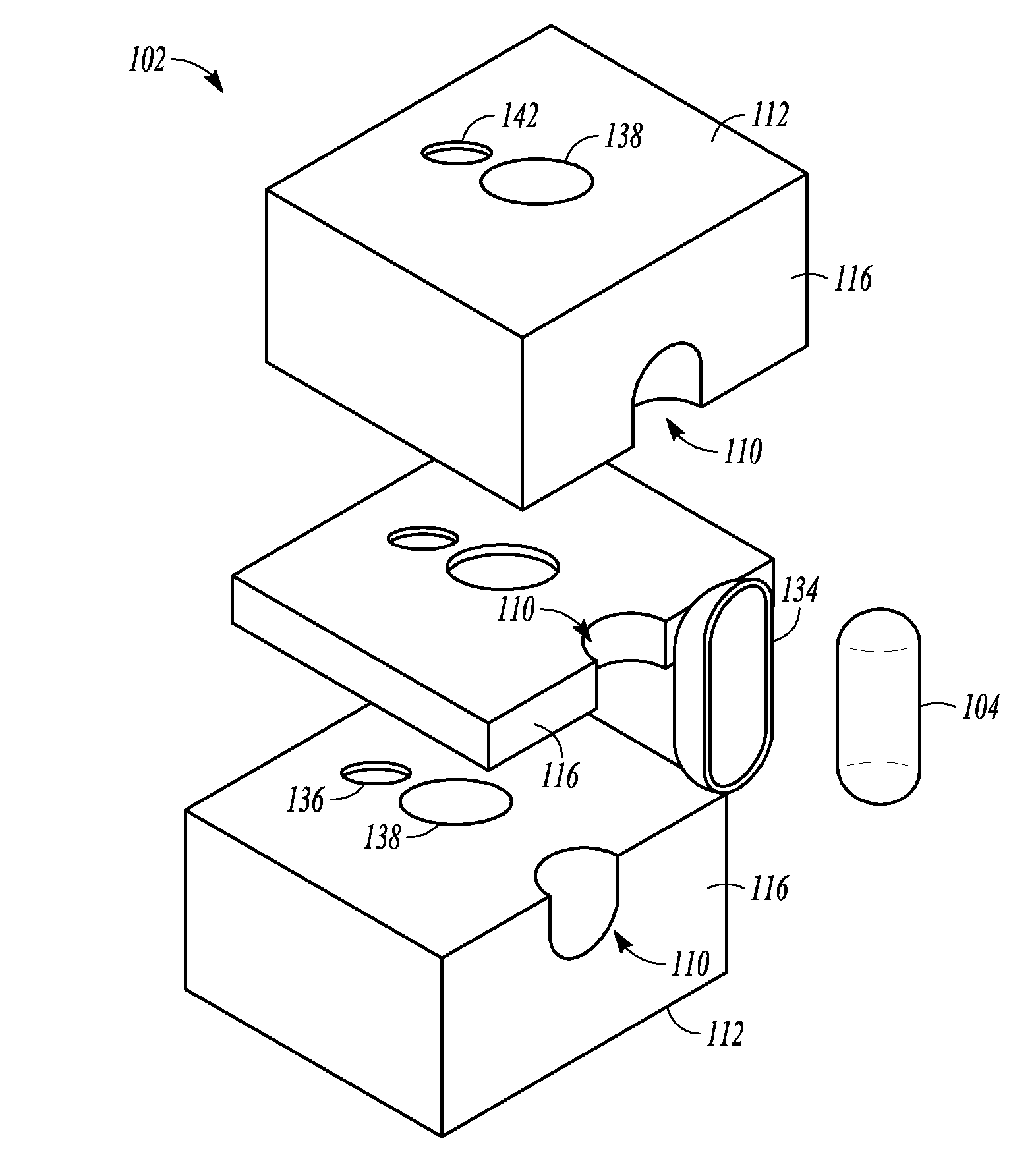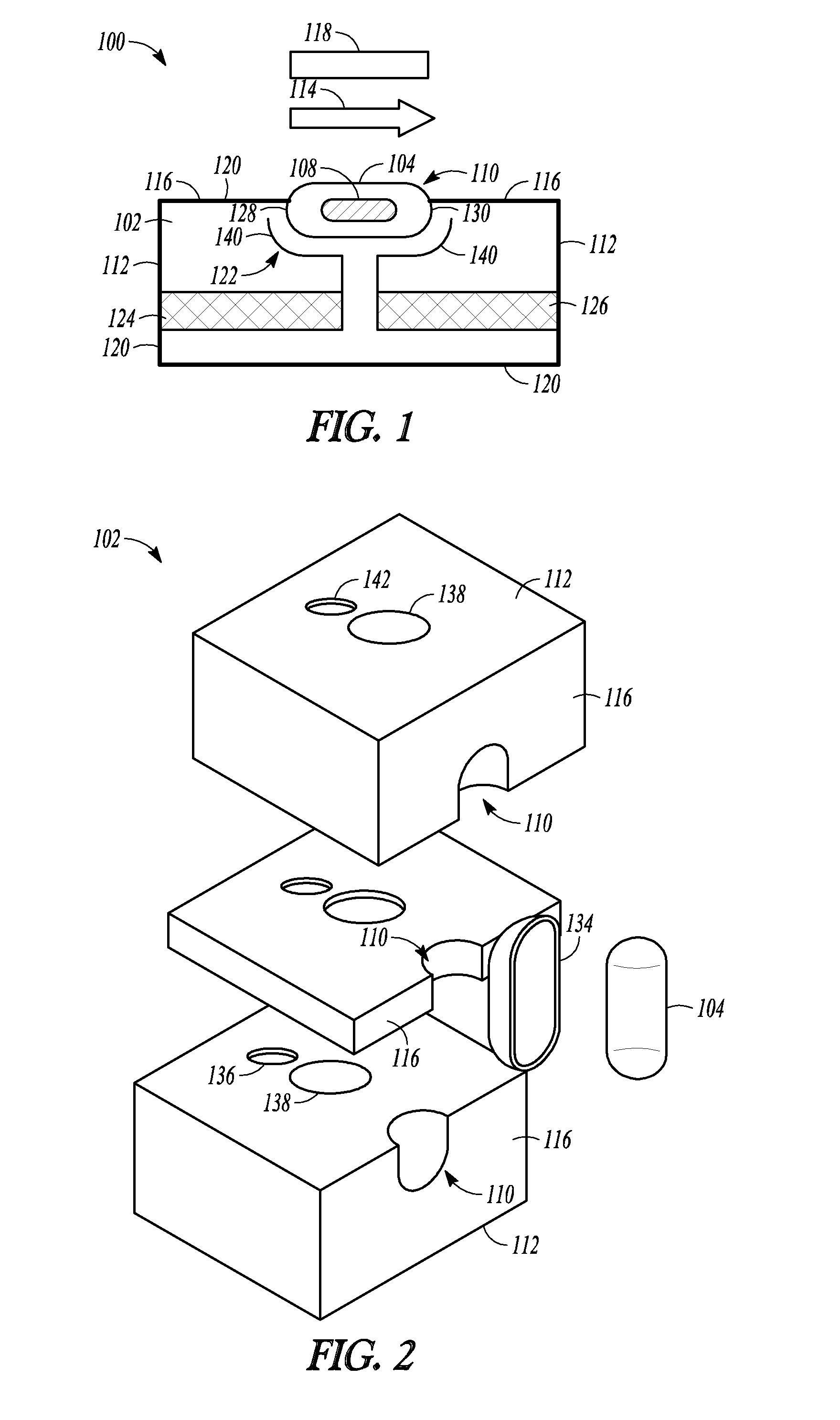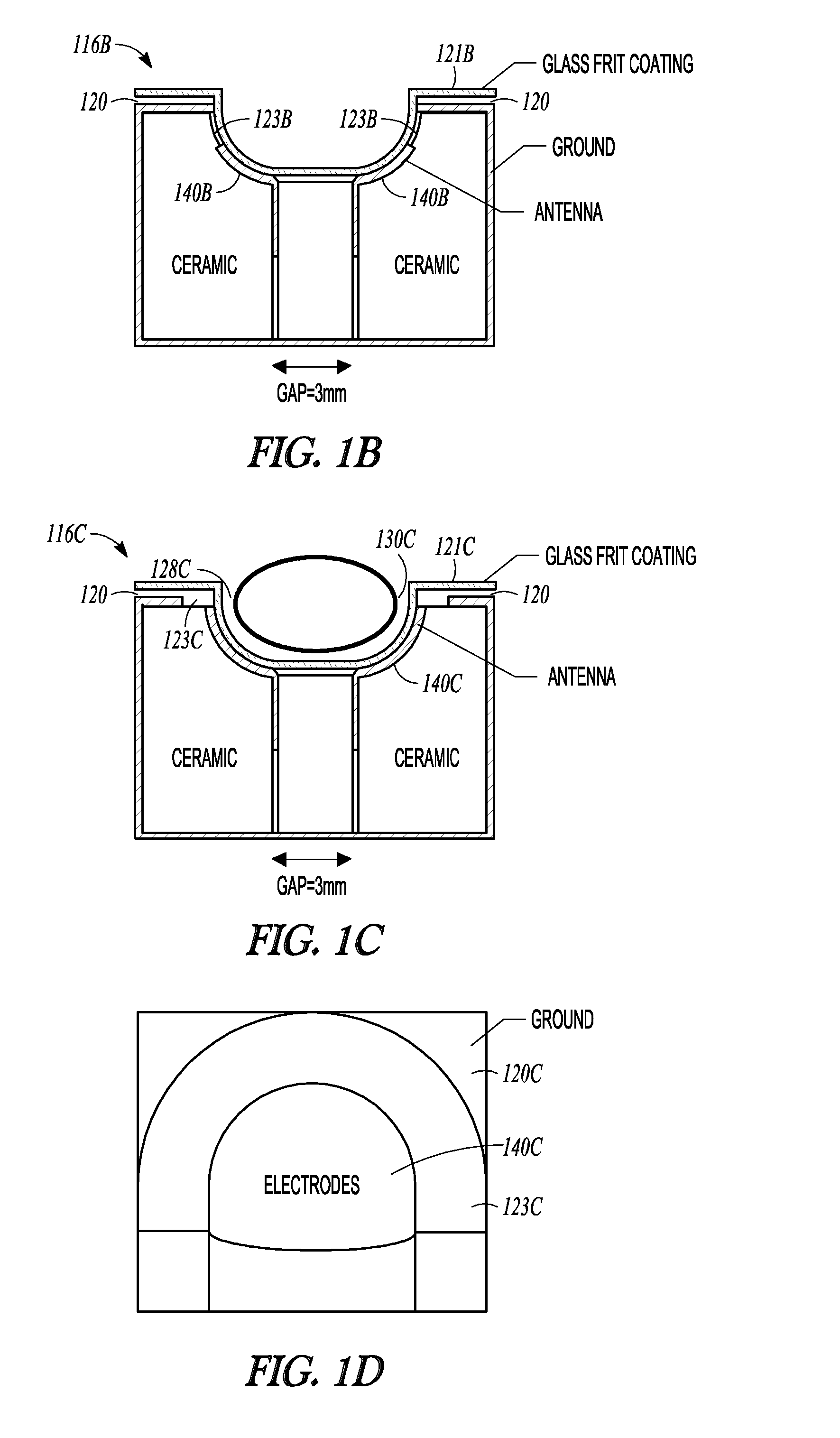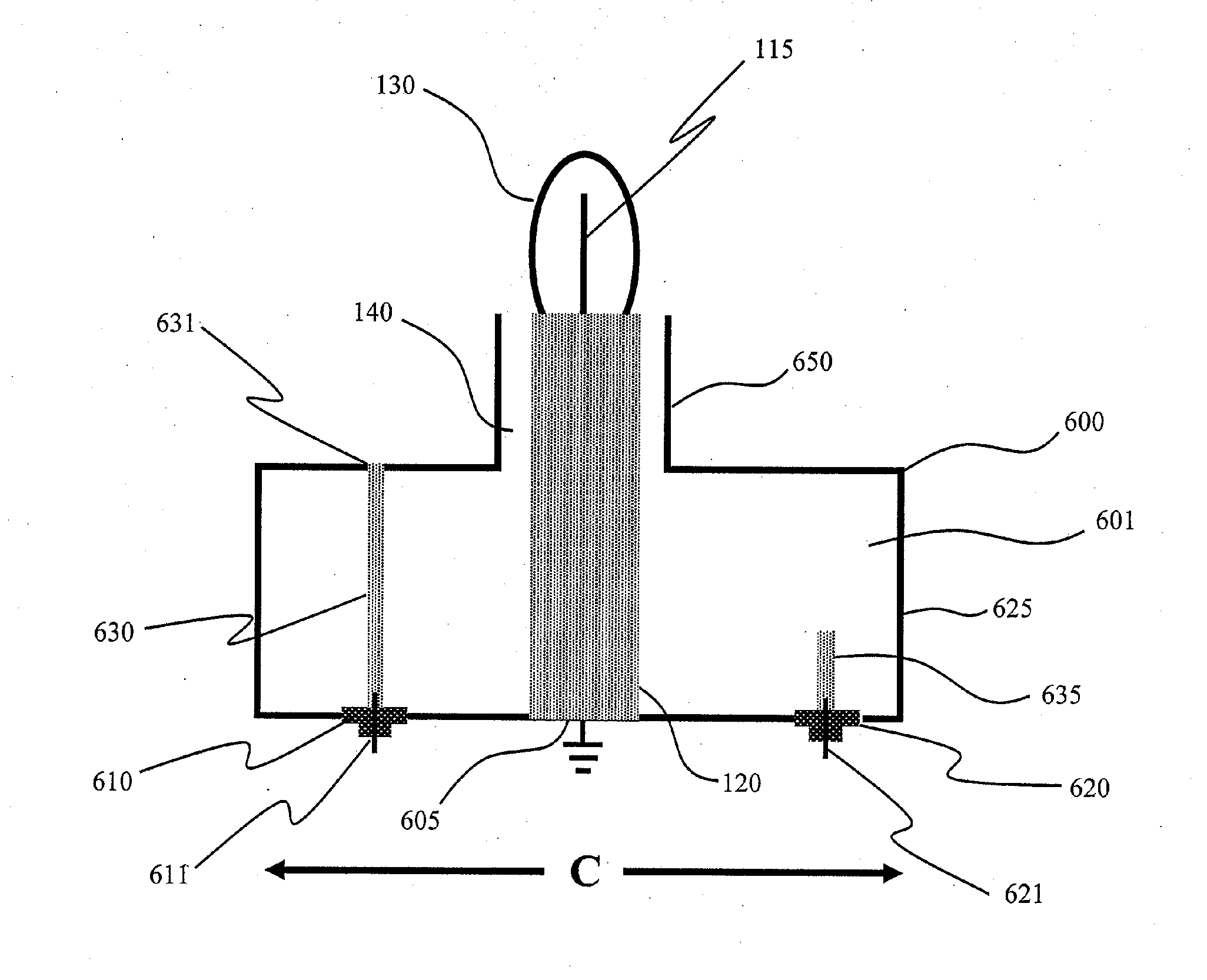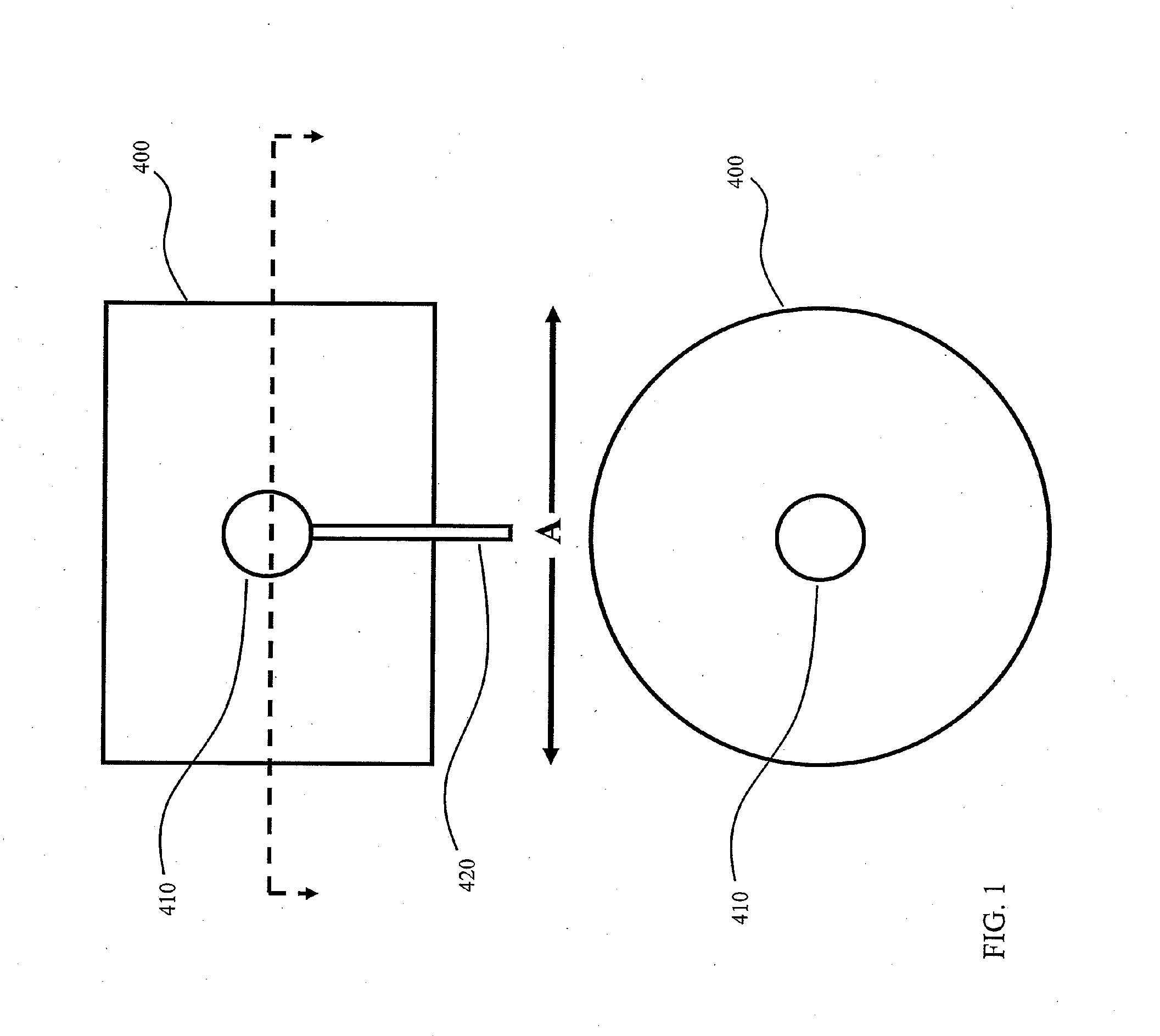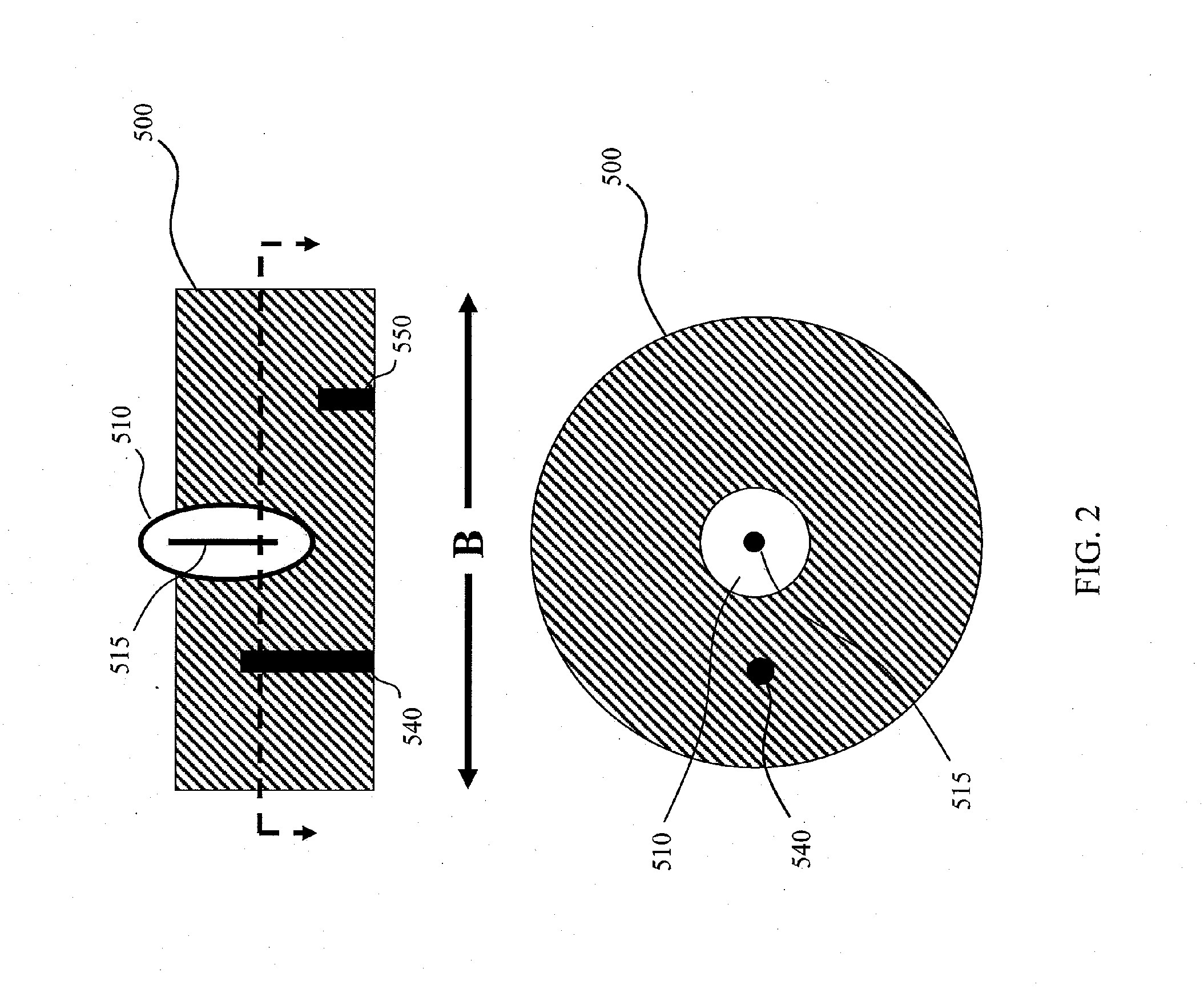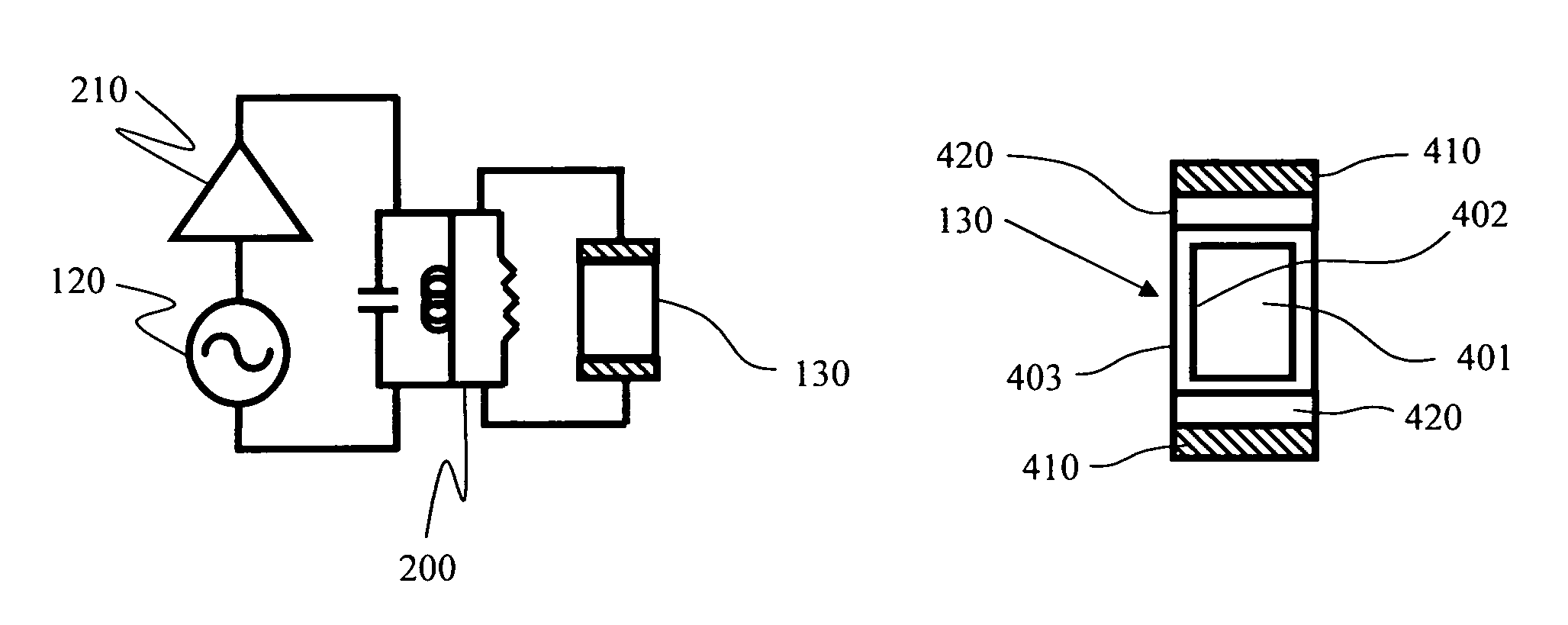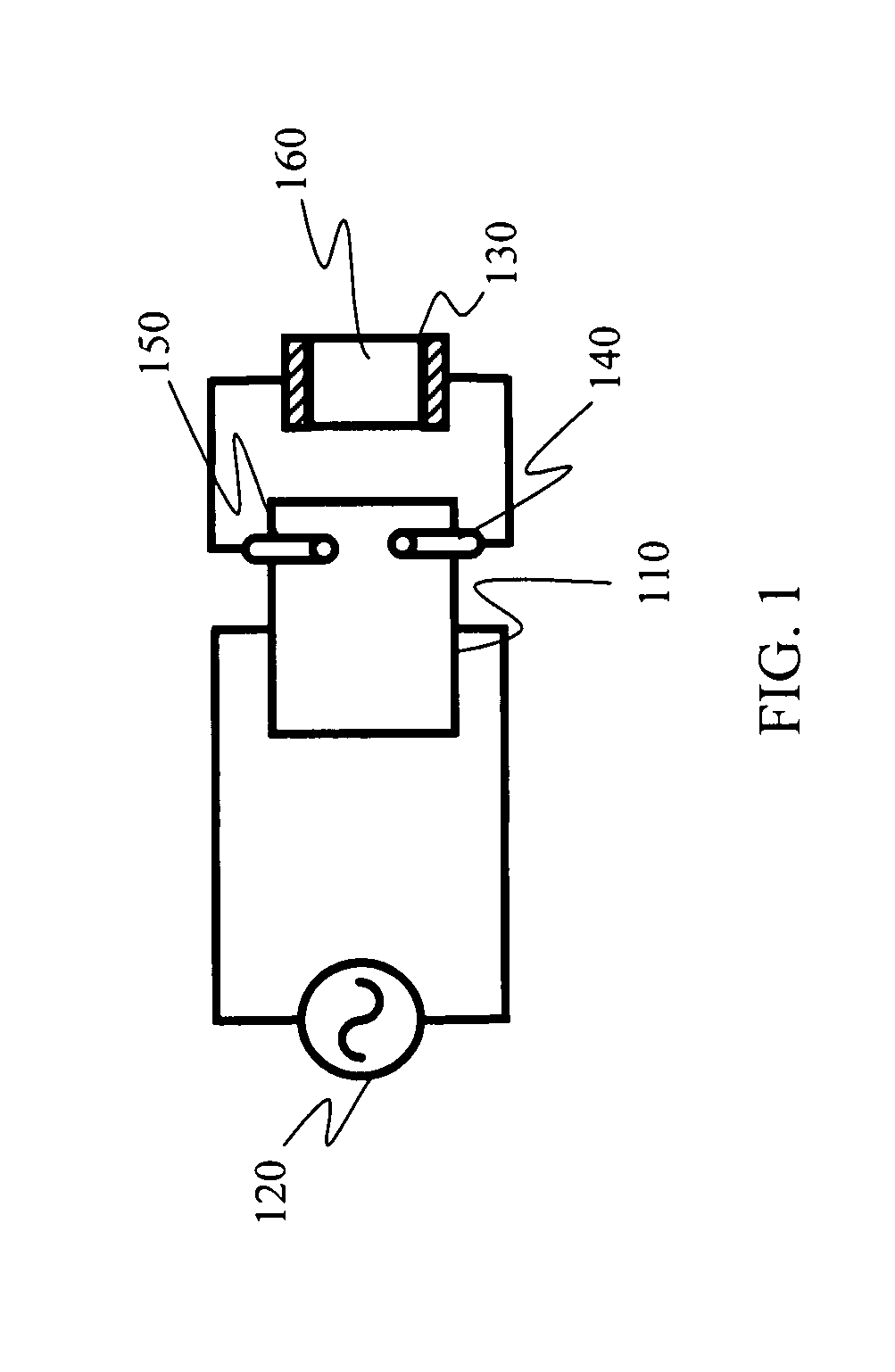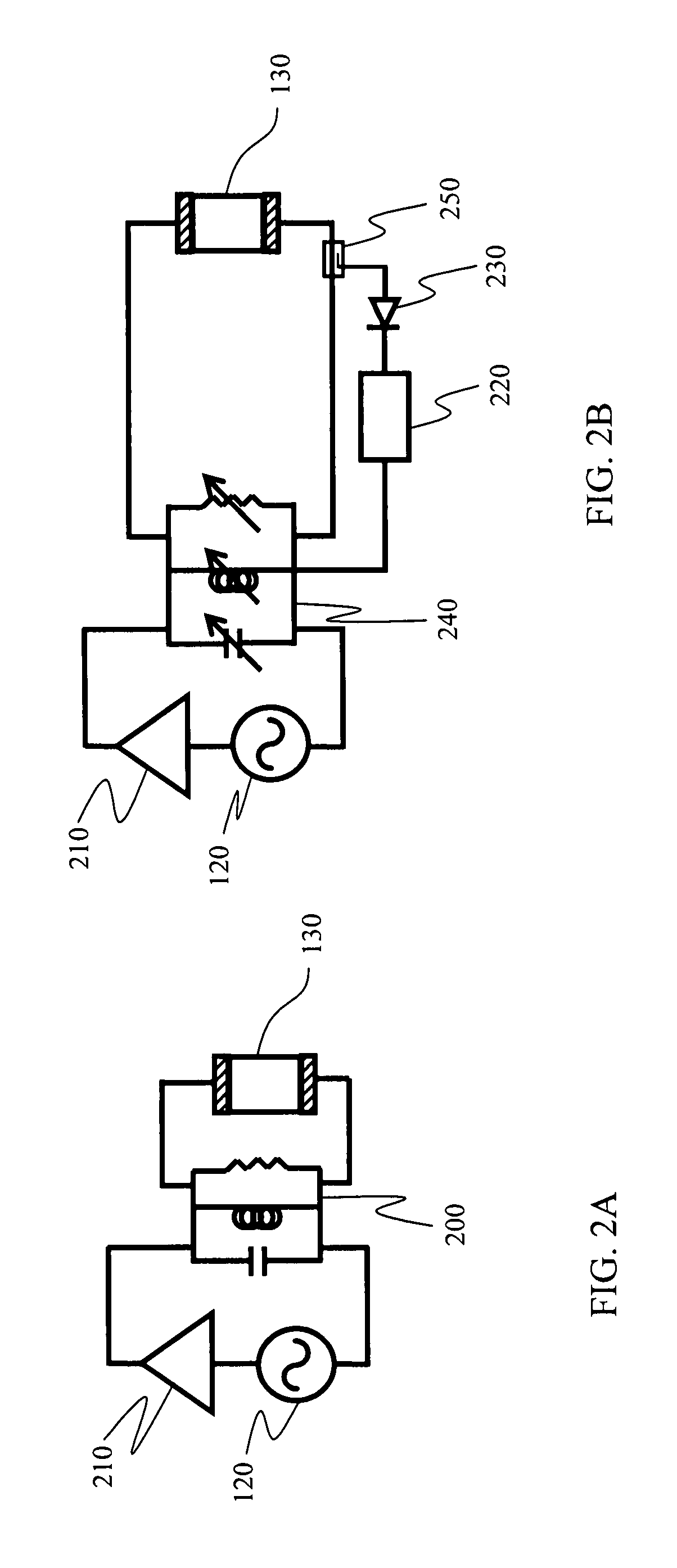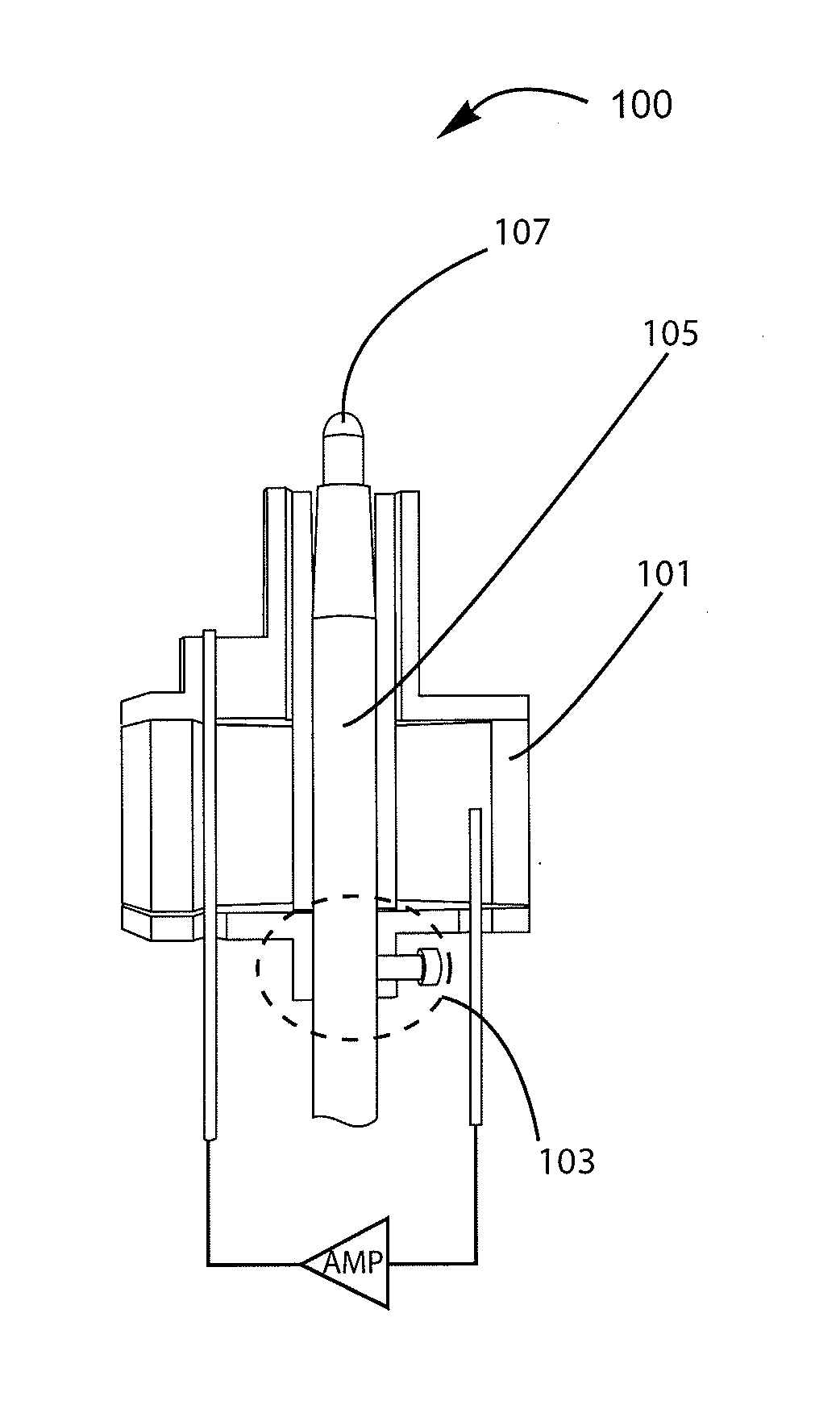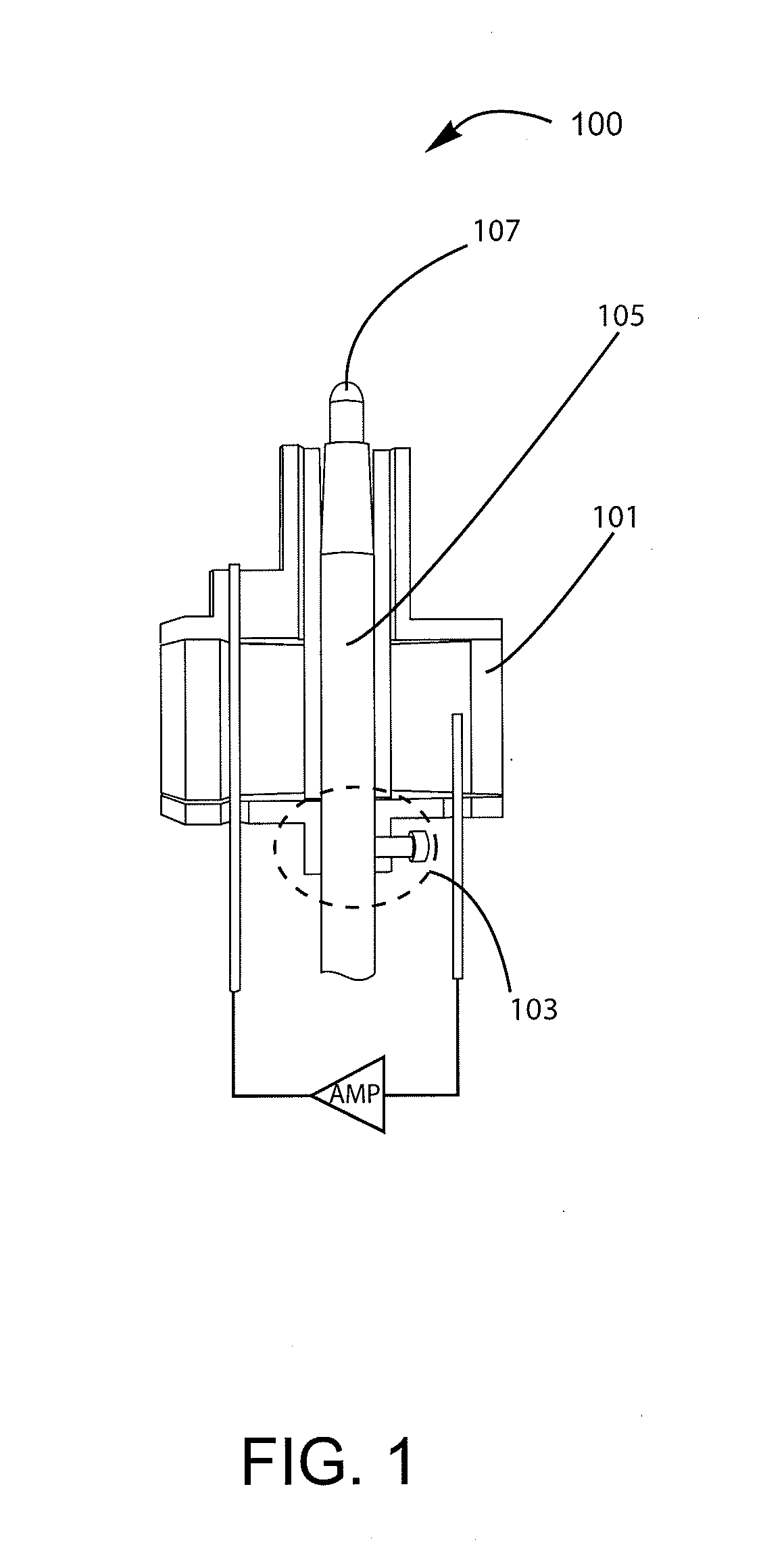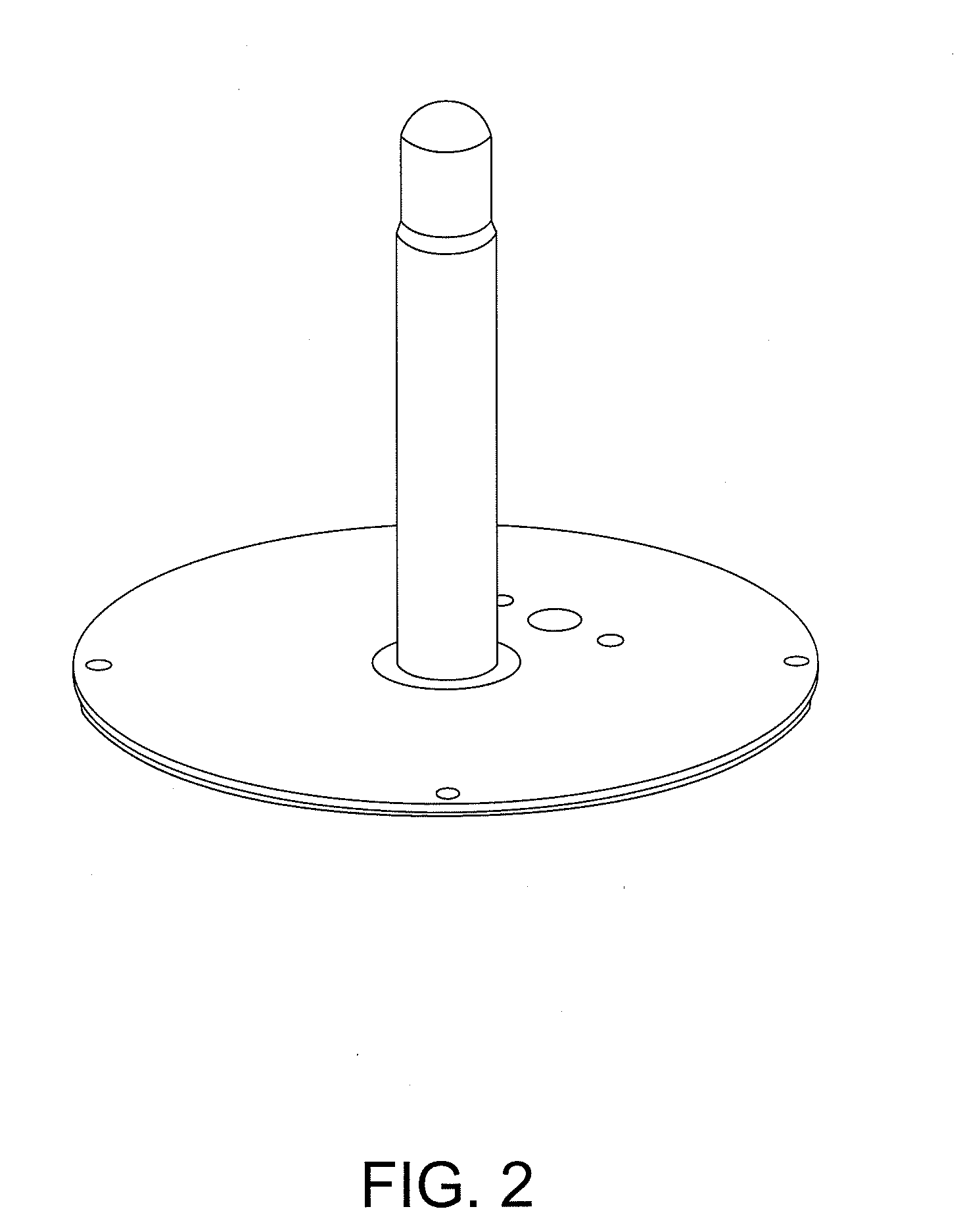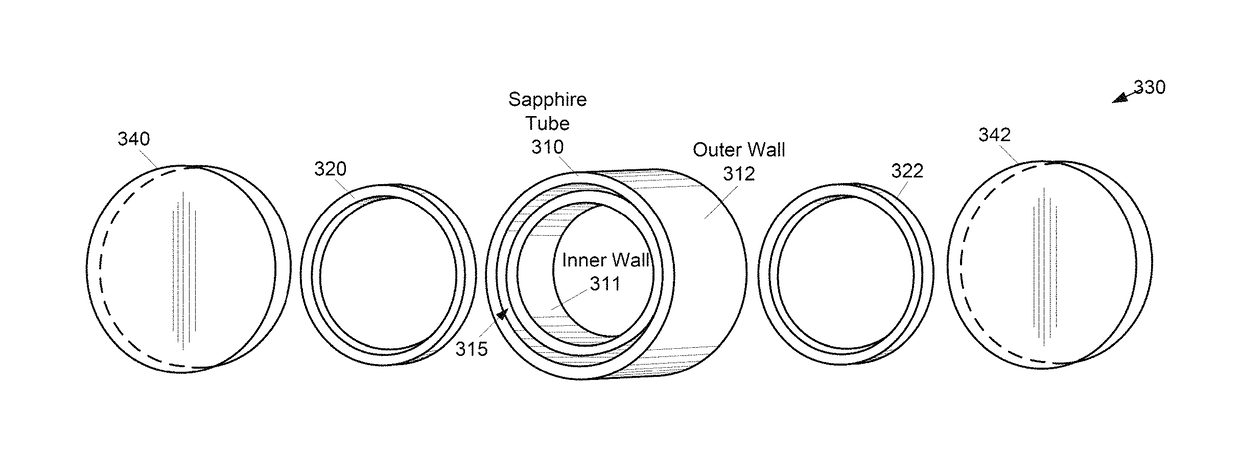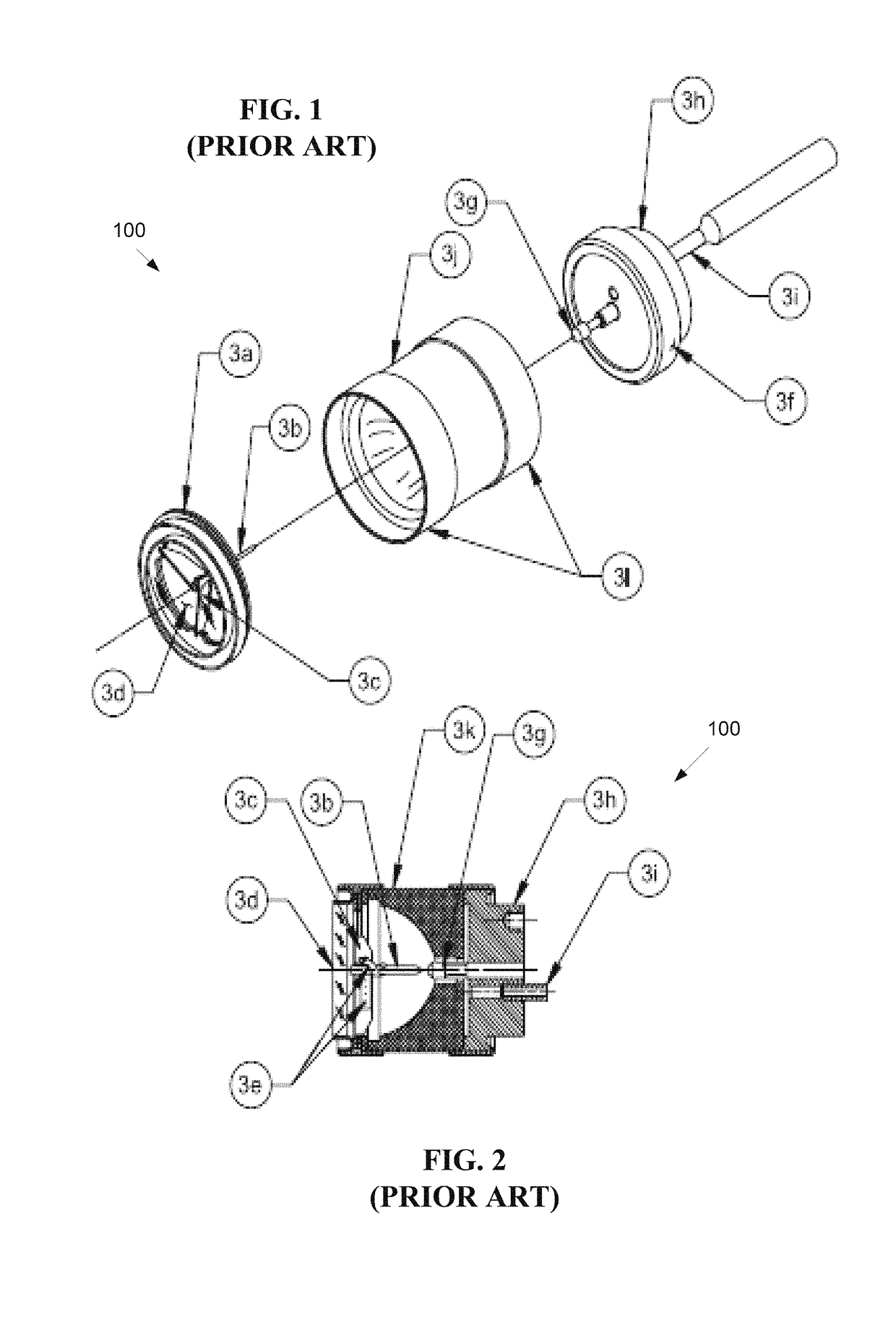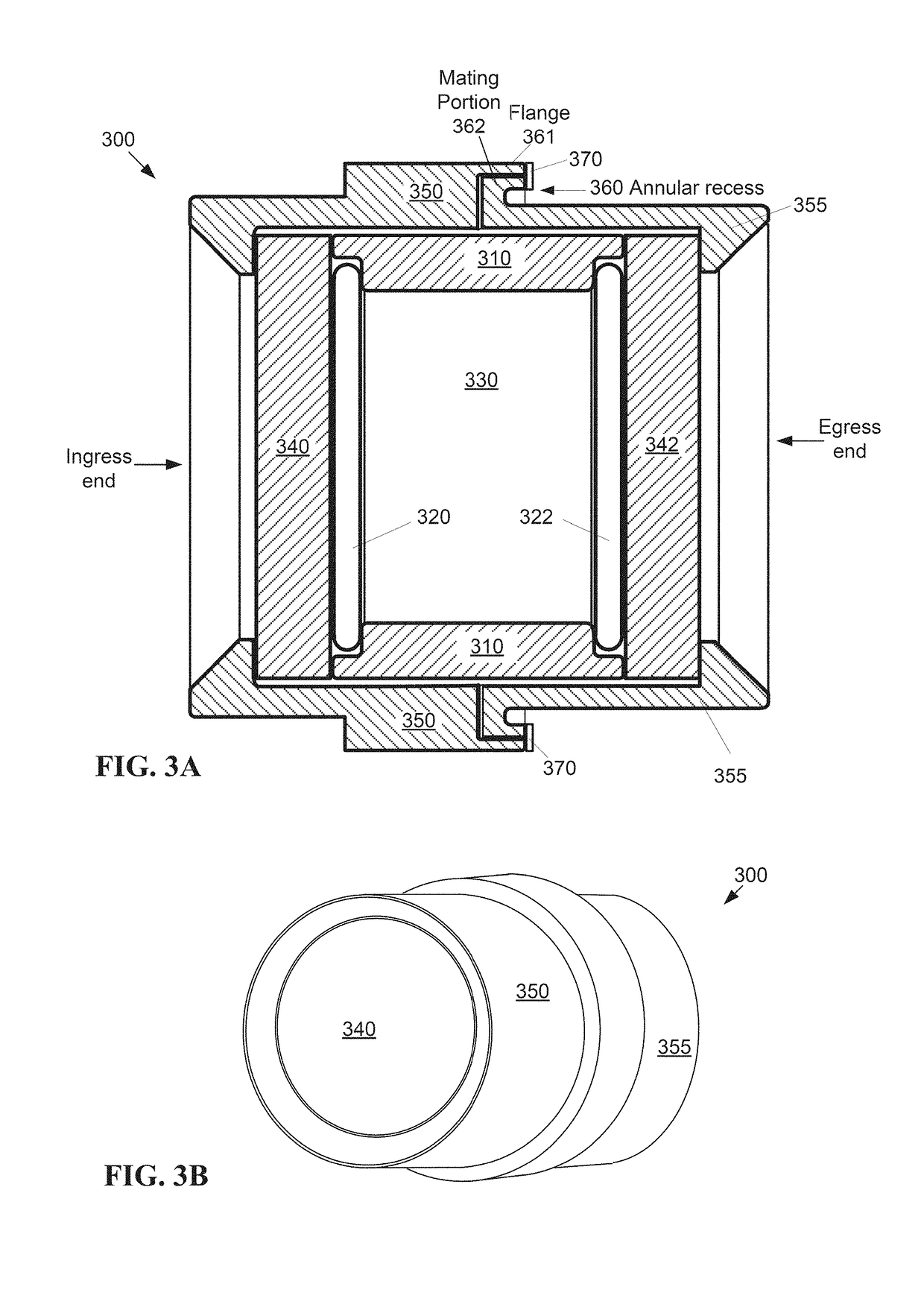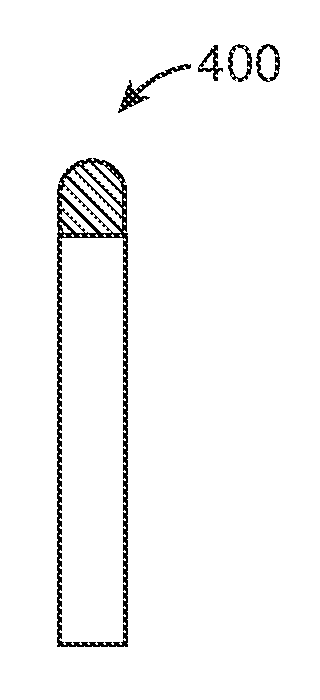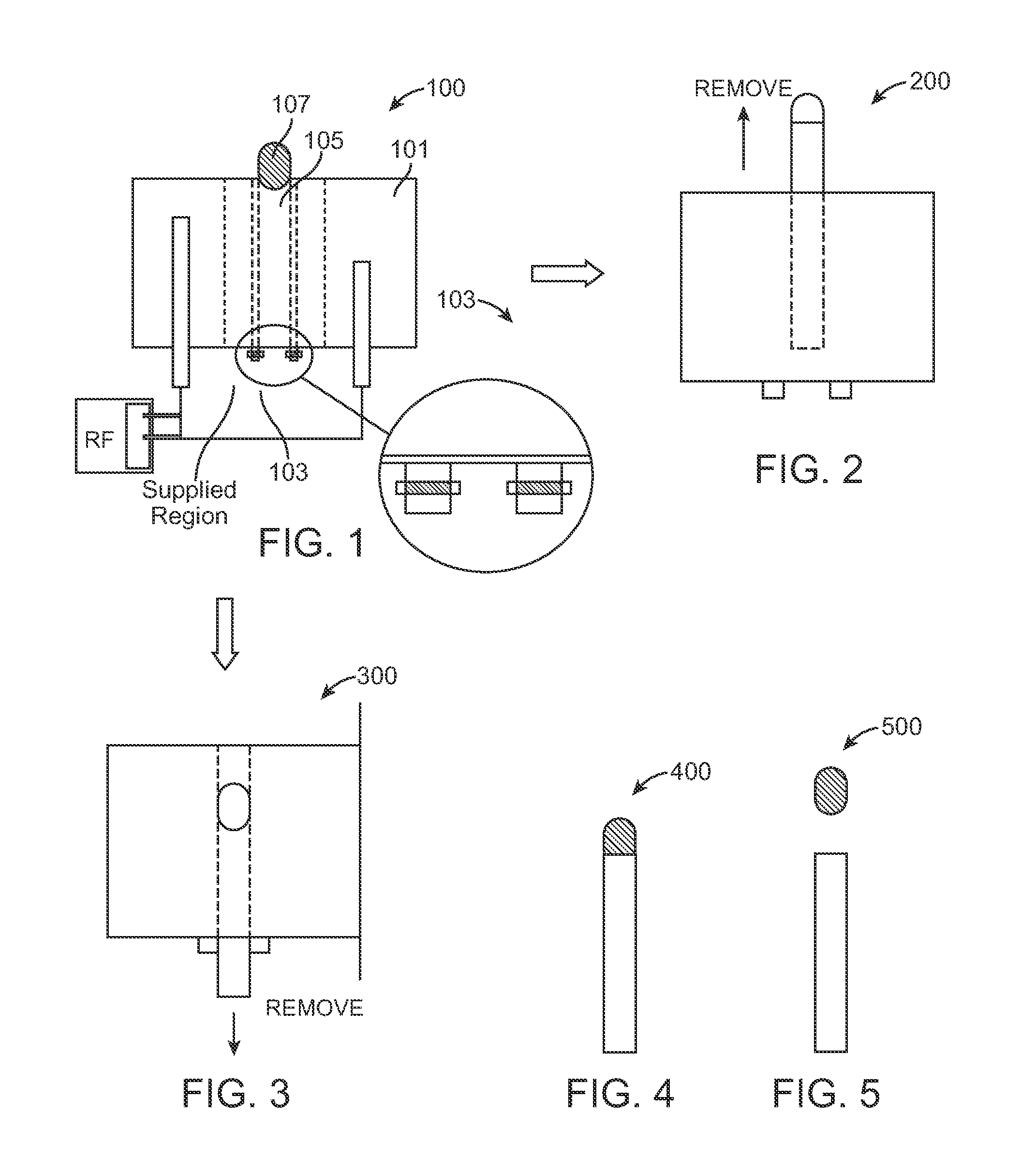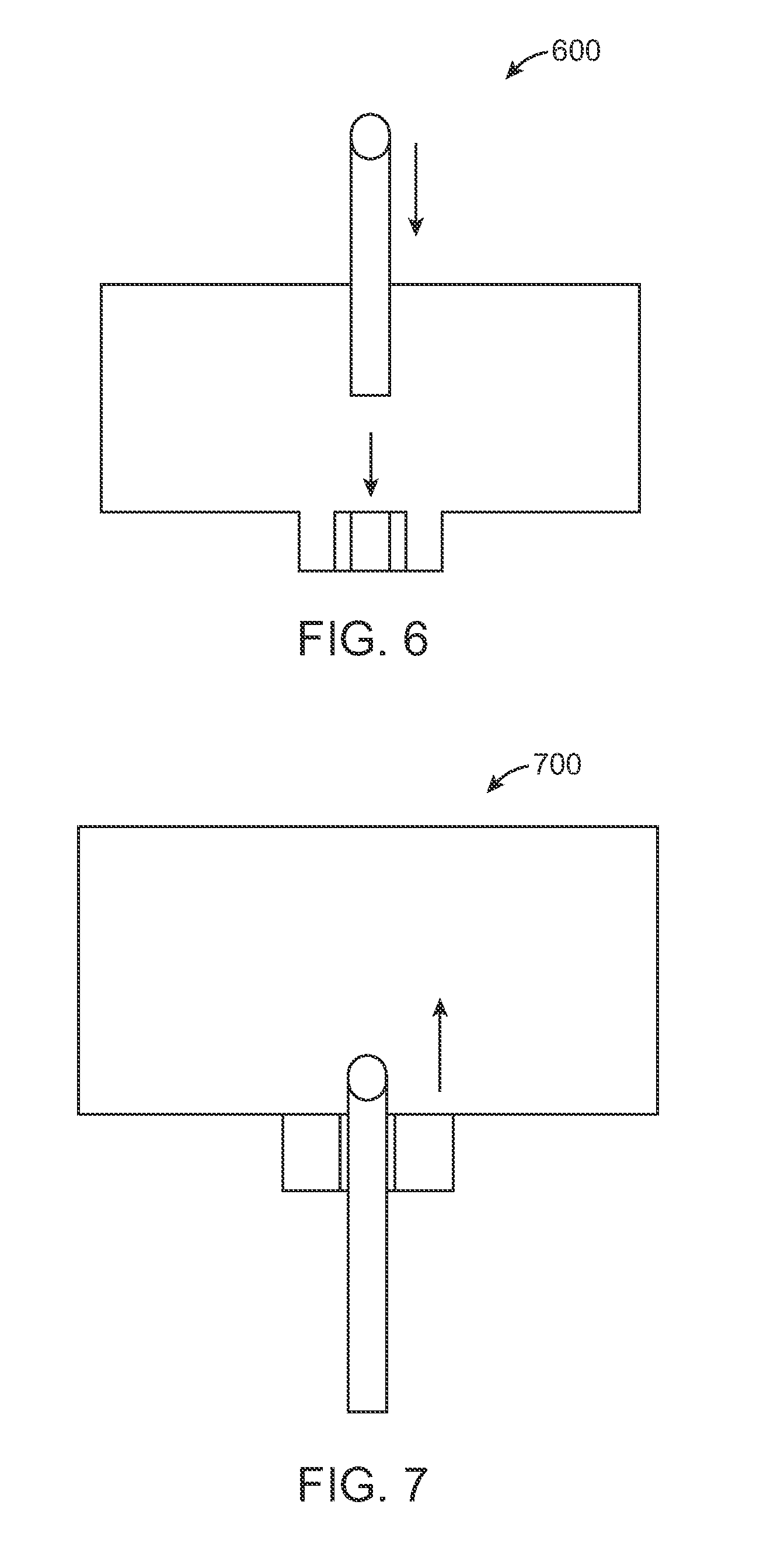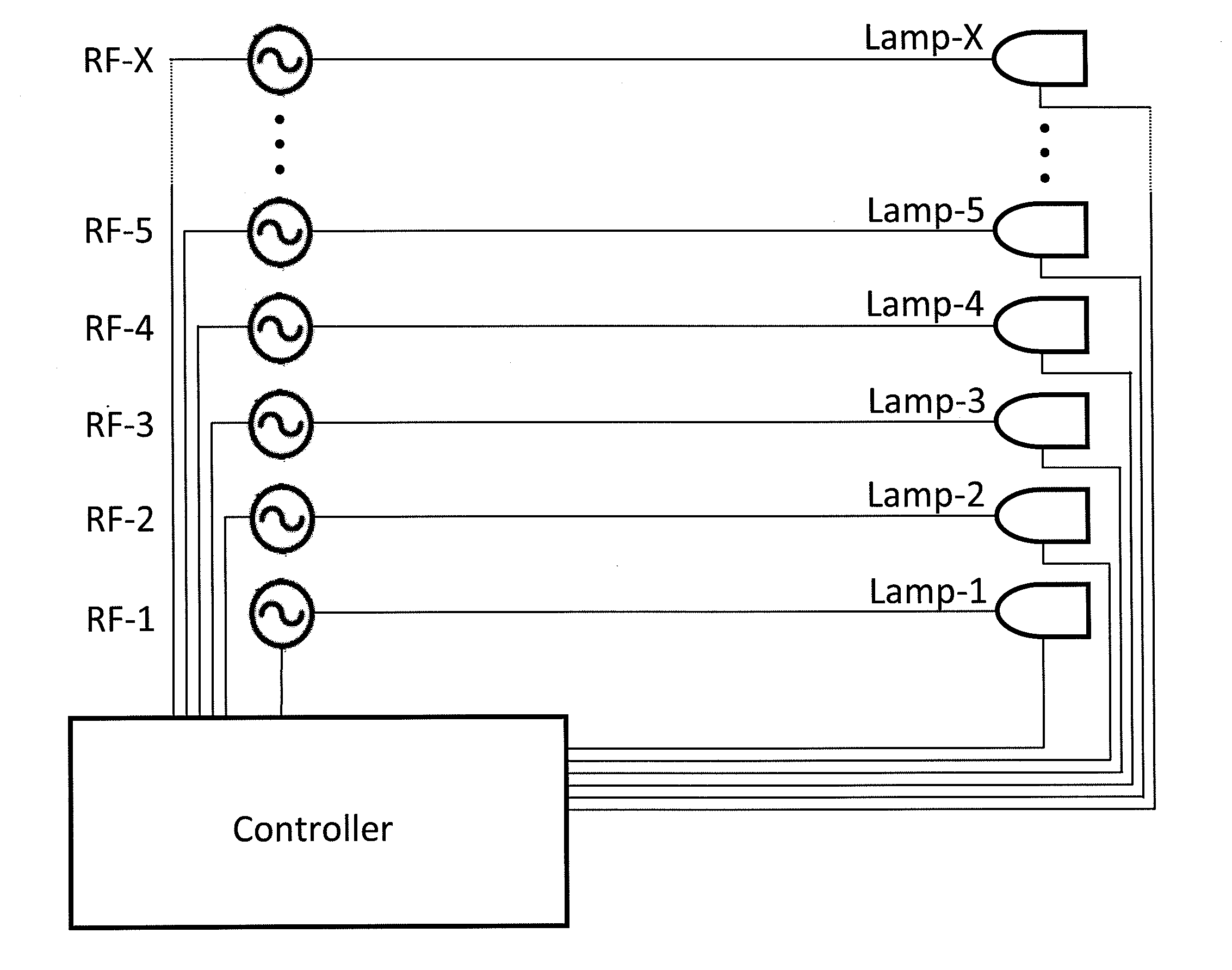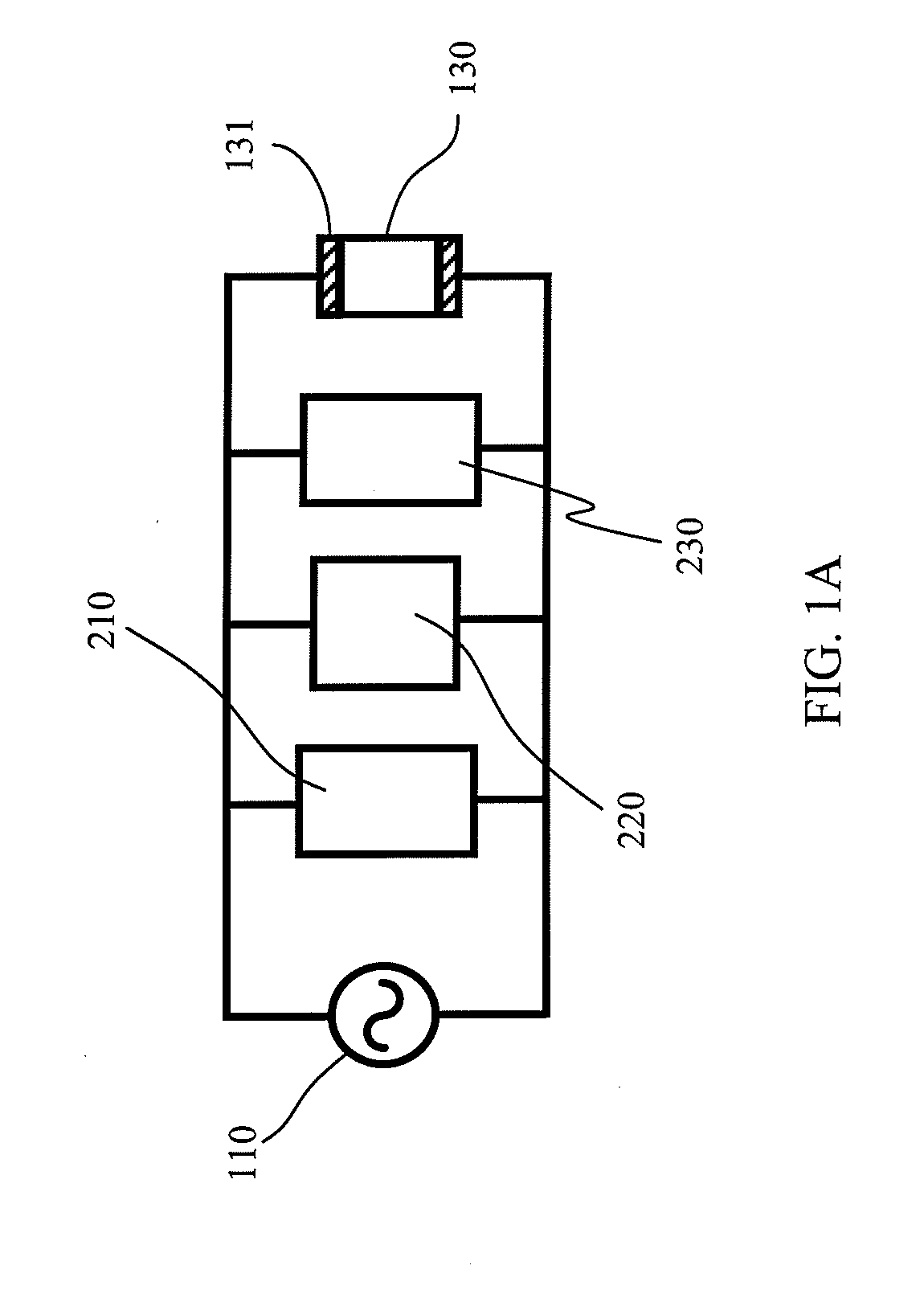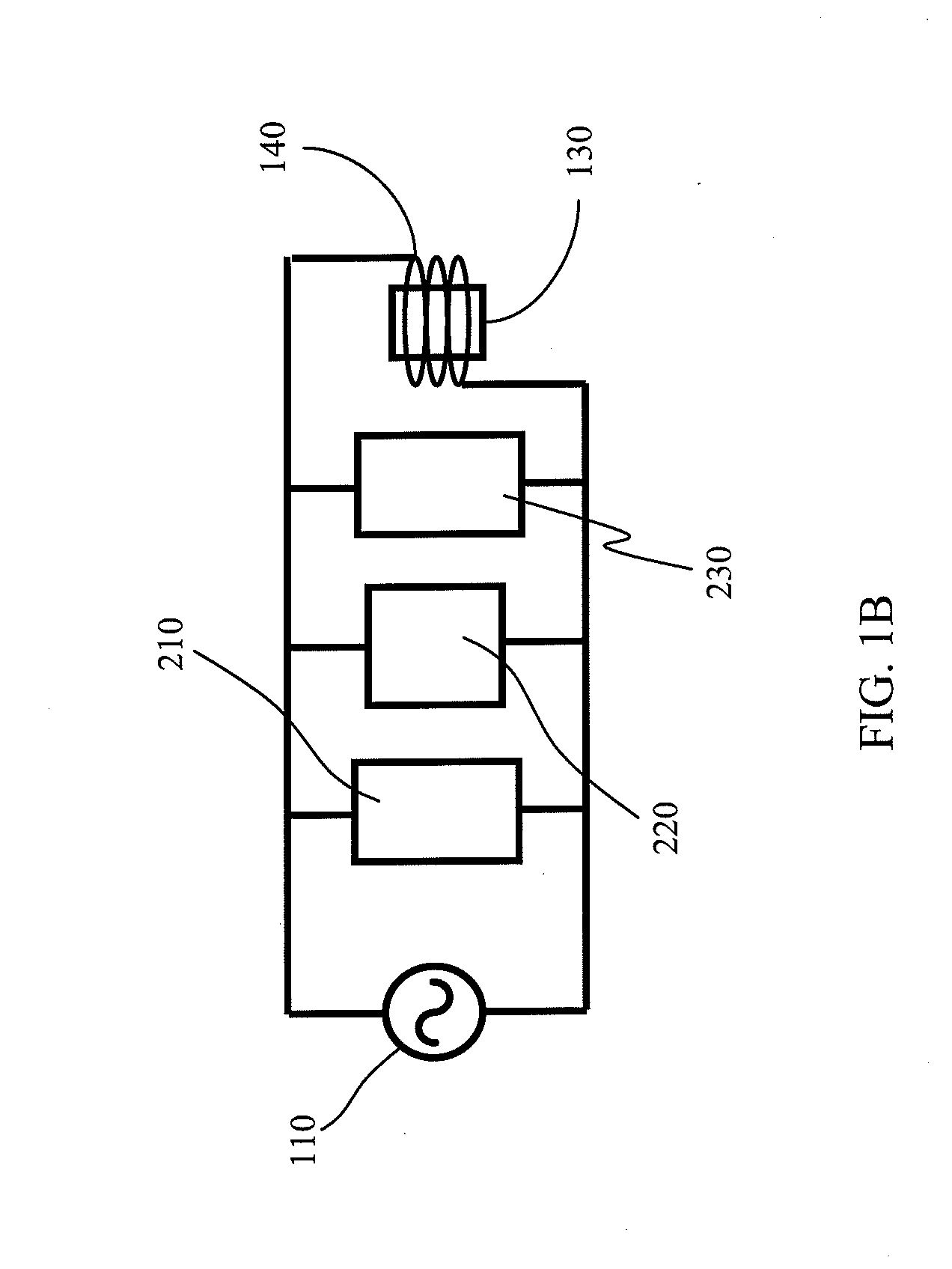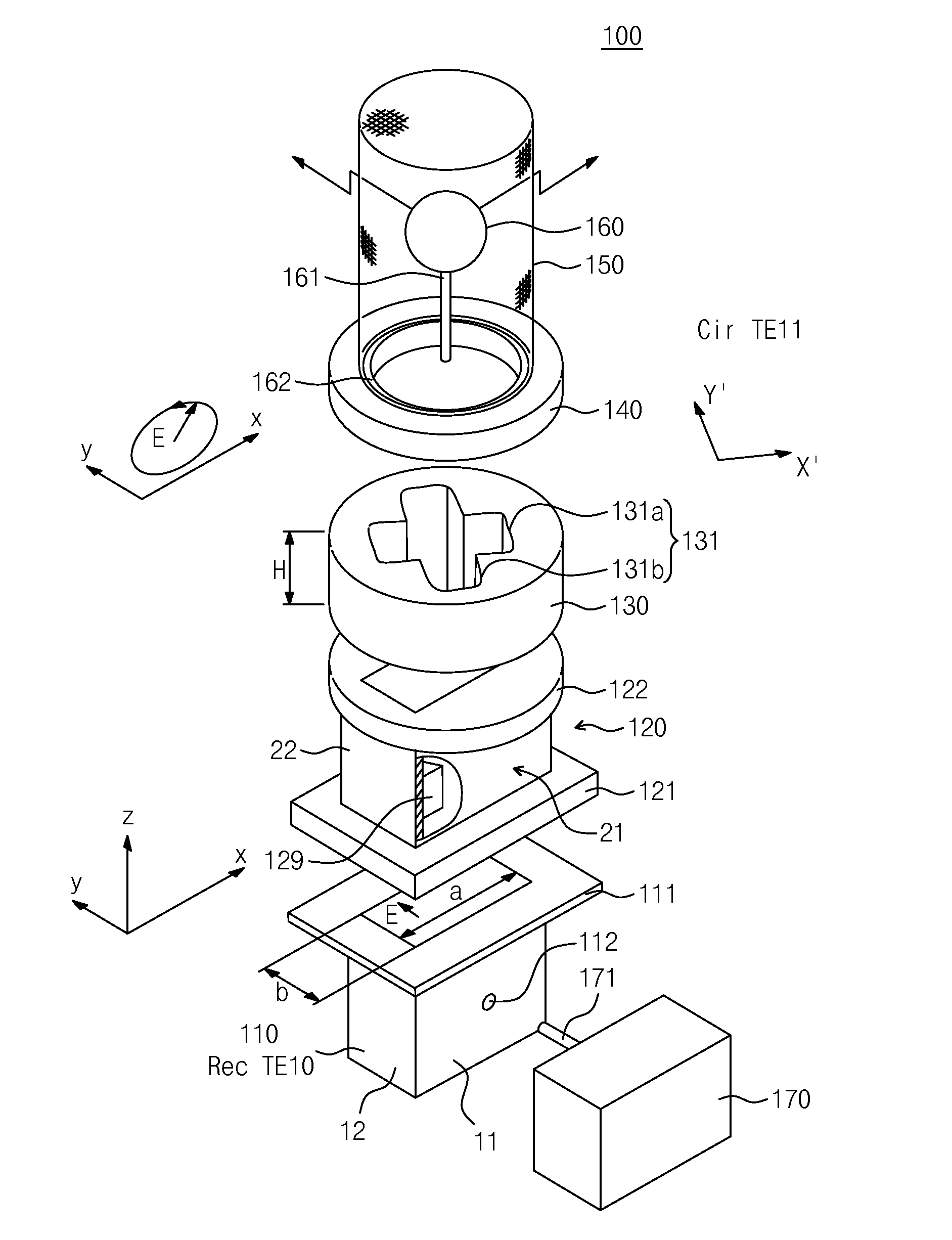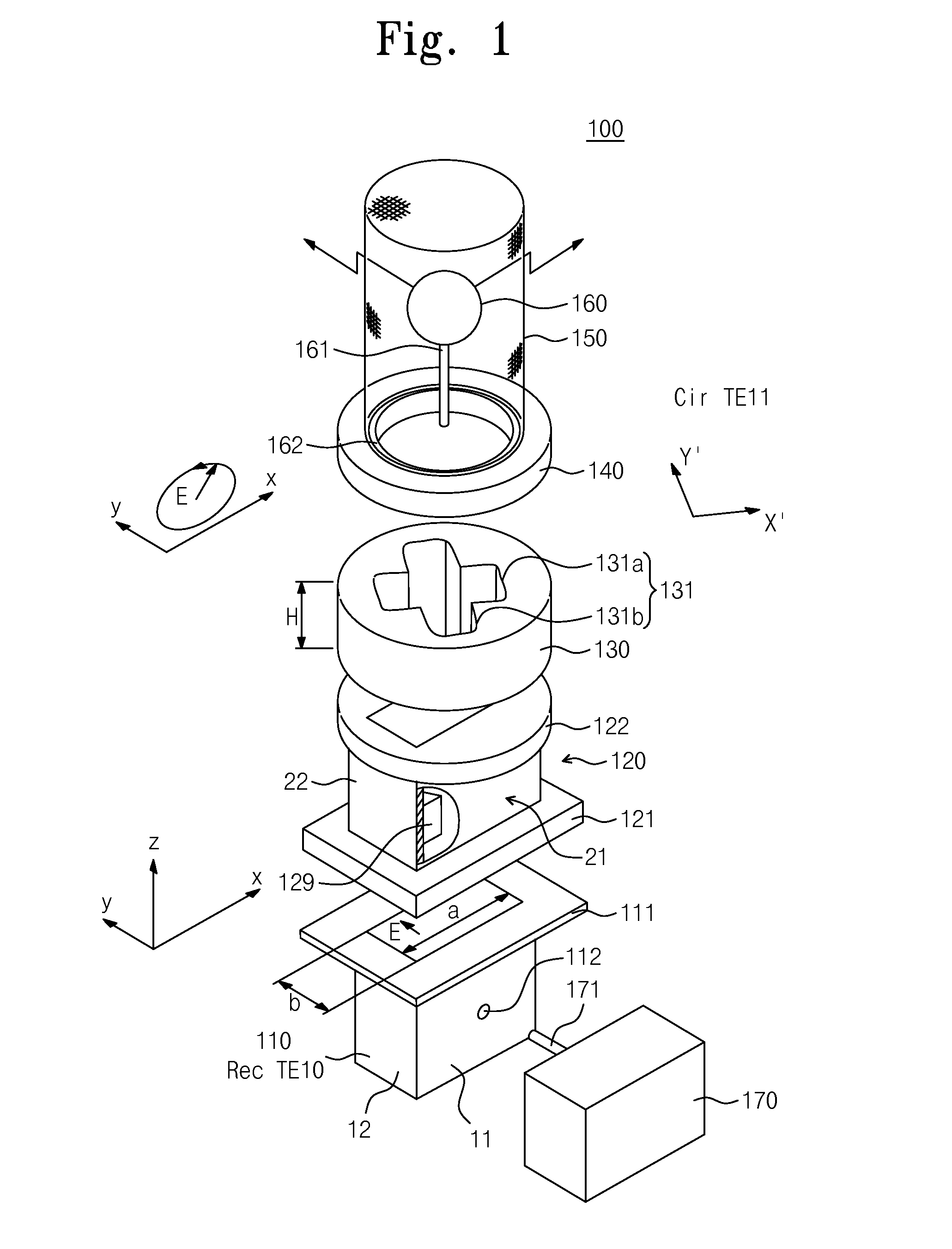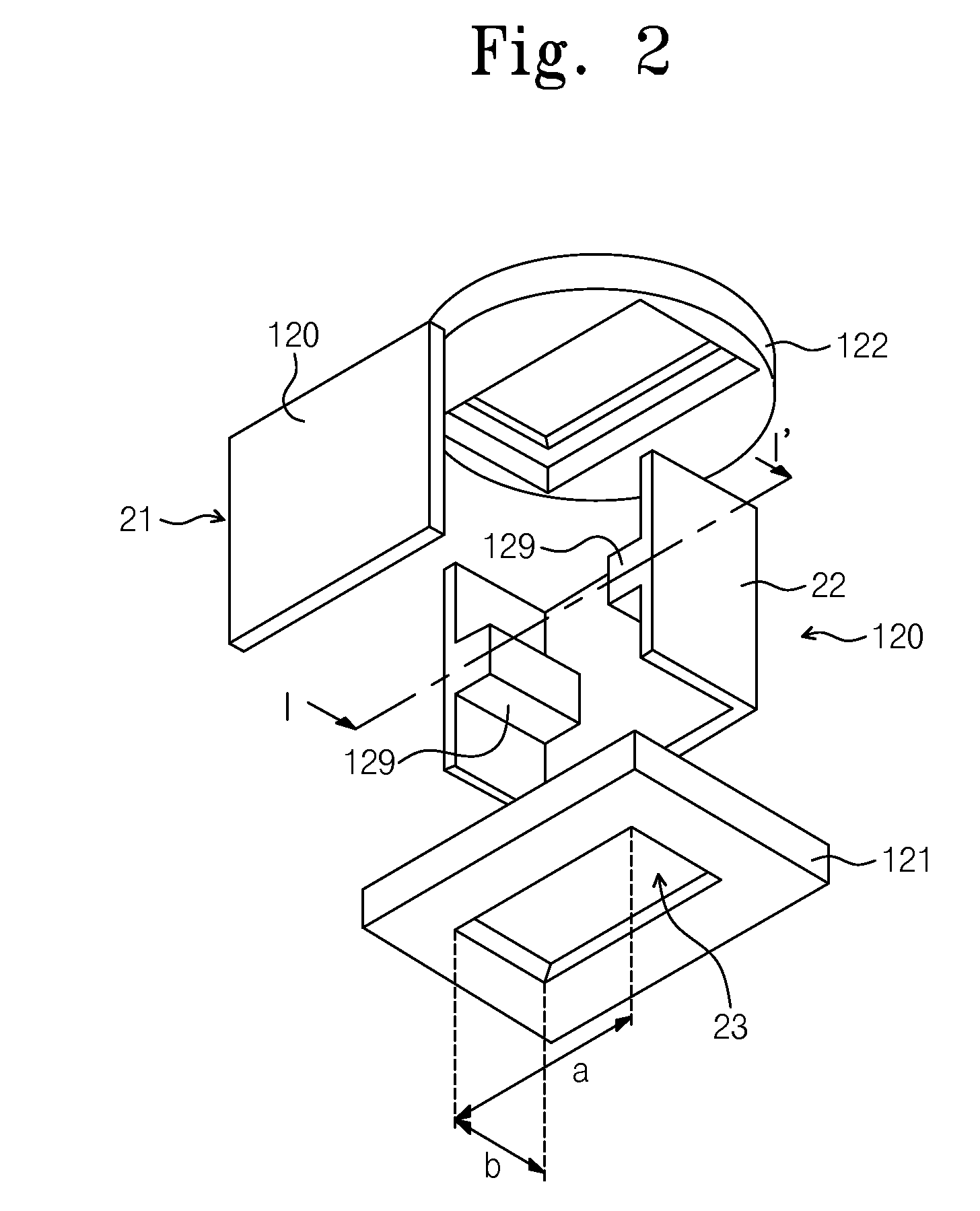Patents
Literature
Hiro is an intelligent assistant for R&D personnel, combined with Patent DNA, to facilitate innovative research.
139 results about "Plasma lamp" patented technology
Efficacy Topic
Property
Owner
Technical Advancement
Application Domain
Technology Topic
Technology Field Word
Patent Country/Region
Patent Type
Patent Status
Application Year
Inventor
Plasma lamps are a type of electrodeless gas-discharge lamp energized by radio frequency (RF) power. They are distinct from the novelty plasma lamps that were popular in the 1980s. The internal-electrodeless lamp was invented by Nikola Tesla after his experimentation with high-frequency currents in evacuated glass tubes for the purposes of lighting and the study of high voltage phenomena. The first practical plasma lamps were the sulfur lamps manufactured by Fusion Lighting. This lamp suffered a number of practical problems and did not prosper commercially. Plasma lamps with an internal phosphor coating are called external electrode fluorescent lamps (EEFL); these external electrodes or terminal conductors provide the radio frequency electric field.
Microwave energized plasma lamp with dielectric waveguide
InactiveUS20050212456A1Electric light circuit arrangementDischarge tube/lamp detailsElectric forceDielectric
A plasma lamp including a waveguide body comprising at least one dielectric material. The body is coupled to a microwave power source which causes the body to resonate in at least one resonant mode. A lamp chamber integrated with the body contains a bulb with a fill forming a light-emitting plasma when the chamber receives power from the resonating body. A bulb either is self-enclosed or an envelope sealed by a window or lens covering the chamber aperture. Embodiments disclosed include lamps having a drive probe and a feedback probe, and lamps having a drive probe, feedback probe and start probe, which minimize power reflected from the body back to the source.
Owner:LUXIM CORP
Plasma lamp with bulb and lamp chamber
A dielectric waveguide integrated plasma lamp (DWIPL) with a body comprising at least one dielectric material having a dielectric constant greater than approximately 2, and having a shape and dimensions such that the body resonates in at least one resonant mode when microwave energy of an appropriate frequency is coupled into the body. A dielectric bulb within a lamp chamber in the body contains a fill which when receiving energy from the resonating body forms a light-emitting plasma. The bulb is transparent to visible light and infrared radiation emitted by the plasma. Radiative energy lost from the plasma is recycled by reflecting the radiation from thin-film, multi-layer coatings on bulb exterior surfaces and / or lamp chamber surfaces back into the bulb. The lamp further includes two- or three-microwave probe configurations minimizing power reflected from the body back to the microwave source when the source operates: (a) at a frequency such that the body resonates in a single mode; or (b) at one frequency such that the body resonates in a relatively higher mode before a plasma is formed, and at another frequency such that the body resonates in a relatively lower order mode after the plasma reaches steady state.
Owner:LUXIM CORP
High intensity light source
InactiveUS20060250090A9Improve life expectancyUnprecedented operating life expectancyElectric lighting sourcesStructural circuit elementsSapphire windowState of art
In one aspect the plasma lamp according to the present invention comprises a gas envelope that is constructed from ceramic material and a sapphire window rather than quartz. According to another aspect of the present invention, a plasma lamp comprises an RF structure for the radio wave radiation and an envelope for housing the excitation gas that are formed so as to constitute a single, integrated ceramic structure. According to yet another aspect of the present invention, the plasma lamp comprises a waveguide structure having solid material such as ceramic rather than air for the dielectric and a gas housing made of a combination of solid ceramic and a sapphire window. In this way, the separate quartz gas envelope and air-filled waveguide structure employed in the prior art are replaced by a single, integrated structure.
Owner:CERAVISION LTD
Plasma lamp with dielectric waveguide integrated with transparent bulb
A dielectric waveguide integrated plasma lamp (DWIPL) with a body comprising at least one dielectric material having a dielectric constant greater than approximately 2, and having a shape and dimensions such that the body resonates in at least one resonant mode when microwave energy of an appropriate frequency is coupled into the body. A dielectric bulb within a lamp chamber in the body contains a fill which when receiving energy from the resonating body forms a light-emitting plasma. The bulb is transparent to visible light and infrared radiation emitted by the plasma. Radiative energy lost from the plasma is recycled by reflecting the radiation from thin-film, multi-layer coatings on bulb exterior surfaces and / or lamp chamber surfaces back into the bulb. The lamp further includes two- or three-microwave probe configurations minimizing power reflected from the body back to the microwave source when the source operates: (a) at a frequency such that the body resonates in a single mode; or (b) at one frequency such that the body resonates in a relatively higher mode before a plasma is formed, and at another frequency such that the body resonates in a relatively lower order mode after the plasma reaches steady state.
Owner:LUXIM CORP
External resonator/cavity electrode-less plasma lamp and method of exciting with radio-frequency energy
ActiveUS7291985B2Increase rangeReduce the cost of the whole lampMagnetronsAlternating current plasma display panelsCapacitanceRadio frequency energy
Described is a plasma electrode-less lamp. The device comprises an electromagnetic resonator and an electromagnetic radiation source conductively connected with the electromagnetic resonator. The device further comprises a pair of field probes, the field probes conductively connected with the electromagnetic resonator. A gas-fill vessel is formed from a closed, transparent body, forming a cavity. The gas-fill vessel is not contiguous with (detached from) the electromagnetic resonator and is capacitively coupled with the field probes. The gas-fill vessel further contains a gas within the cavity, whereby the gas is induced to emit light when electromagnetic radiation from the electromagnetic radiation source resonates inside the electromagnetic resonator, the electromagnetic resonator capacitively coupling the electromagnetic radiation to the gas, which becomes a plasma and emits light.
Owner:TOPANGA USA
Generating light from electromagnetic energy
ActiveUS7034464B1Prevent leakageAvoid meltingMagnetronsDischarge tube luminescnet screensElectricityDielectric
A device that converts non-visible electromagnetic energy into light. The device includes a cylindrical electromagnetic resonator with a central through hole, a dielectric (preferably ceramic) material surrounded by symmetrically displaced through holes surrounding the central through hole. The device also includes a base and probes connected to the base. The probes are placed to introduce non-visible electromagnetic energy into the resonator. The device also includes a plasma lamp placed in the central through hole. The plasma lamp is placed to convert the non-visible electromagnetic energy into light. Preferably, the resonator is composed of a ceramic with a metalized surface except for inside the through holes. Also, a device that converts electricity into light and vice versa, a device that emits modulated light based on input modulated non-visible electromagnetic energy, and a device that emits modulated non-visible electromagnetic energy based on input modulated light, all implemented using a cylindrical electromagnetic resonator.
Owner:V SILICON SEMICON (HANGZHOU) CO LTD
Microwave energized plasma lamp with dielectric waveguide
InactiveUS20050099130A1Minimize powerElectric light circuit arrangementDischarge tube/lamp detailsDielectricStable state
A plasma lamp including a waveguide body consisting essentially of at least one solid dielectric material. The body is coupled to a microwave power source which causes the body to resonate in at least one resonant mode. A lamp chamber integrated into the body contains a fill mixture which forms a light-emitting plasma when the chamber receives microwave power from the resonating waveguide body. The chamber has an aperture sealed to the external environment by a window or lens allowing light to be transmitted. Alternatively, the fill is in a self-enclosed bulb positioned in the chamber. Embodiments disclosed include lamps having a drive probe and a feedback probe, and lamps having a drive probe, feedback probe and start probe, which minimize power reflected from the body back to the source both before the plasma is formed and after it reaches steady state.
Owner:LUXIM CORP
External resonator/cavity electrode-less plasma lamp and method of exciting with radio-frequency energy
ActiveUS20070075652A1Reduce the cost of the whole lampIncrease rangeMagnetronsAlternating current plasma display panelsCapacitanceRadio frequency energy
Described is a plasma electrode-less lamp. The device comprises an electromagnetic resonator and an electromagnetic radiation source conductively connected with the electromagnetic resonator. The device further comprises a pair of field probes, the field probes conductively connected with the electromagnetic resonator. A gas-fill vessel is formed from a closed, transparent body, forming a cavity. The gas-fill vessel is not contiguous with (detached from) the electromagnetic resonator and is capacitively coupled with the field probes. The gas-fill vessel further contains a gas within the cavity, whereby the gas is induced to emit light when electromagnetic radiation from the electromagnetic radiation source resonates inside the electromagnetic resonator, the electromagnetic resonator capacitively coupling the electromagnetic radiation to the gas, which becomes a plasma and emits light.
Owner:TOPANGA USA
Plasma lamp with dielectric waveguide
InactiveUS20050248281A1Improve energy efficiencySmall sizeElectric lighting sourcesGas discharge lamp usagePlasma lampMicrowave electromagnetic radiation
A dielectric waveguide integrated plasma lamp (DWIPL) with a body consisting essentially of at least one dielectric material having a dielectric constant greater than approximately 2, and having a shape and dimensions such that the body resonates in at least one resonant mode when microwave energy of an appropriate frequency is coupled into the body. A bulb positioned in at least one lamp chamber in the body contains a gas-fill which when receiving energy from the resonating body forms a light-emitting plasma.
Owner:LUXIM CORP
Ultraviolet curing apparatus for continuous material
An ultraviolet radiation curing system is disclosed for treating a substrate, such as fiber optic cable or silicone tubing. The system comprises a processing chamber allowing transport of a continuous piece of substrate to be treated. As the substrate moves through the processing chamber, ultraviolet radiation from a plasma lamp activated by a microwave generator treats the surface of the substrate. The system comprises two elliptical reflectors of different sizes so that larger diameter substrates may be efficiently treated with ultraviolet radiation. The system may also comprise an ultraviolet-transmissive conduit enclosing the substrate and split into a first portion and a second portion, where the second portion is movable from the first portion to open the conduit and allow insertion or alignment of the substrate within the conduit and processing chamber.
Owner:NORDSON CORP
Tunable plasma frequency devices
ActiveUS7292191B2Improve featuresImprove efficiencyElectric discharge tubesAntenna supports/mountingsPlasma antennaPlasma lamp
A plasma device serves as an antenna, single or stacked plasma frequency selective surfaces, single or stacked plasma antenna arrays, plasma lamps, plasma limiters, plasma switch, plasma windows or plasma phase shifters. An electromagnetic wave signal is controlled to have a plasma frequency matched as nearly as possible to the frequency of incident electromagnetic signals for maximizing the antenna aperture and efficiency. Matching the frequencies permits the plasma device to have a physical size and shape substantially independent of the conventional optimal size and shape for a given transceived signal frequency. The plasma device plasma frequency is adjustable for tuning to different incident signal frequencies, thereby providing flexibility not available from conventional metal antennas.
Owner:ANDERSON THEODORE
Electrodeless lamps with externally-grounded probes and improved bulb assemblies
InactiveUS20090322240A1Improve design flexibilityImprove manufacturabilityBeam/ray focussing/reflecting arrangementsBeam/ray deflecting arrangementsCouplingEngineering
An electrode-less plasma lamps, comprising generally of a bulb containing a gas-fill that is excited to produce light using radio-frequency (RF) energy. In specific embodiments, the use of grounded coupling-elements with integrated bulb assemblies simplifies manufacturability, improves resonant frequency control, and enables the use of solid, partially filled, and hollow lamp bodies.
Owner:TOPANGA USA
Electrodeless lamps with externally-grounded probes and improved bulb assemblies
InactiveUS7830092B2Simple designImprove manufacturabilityBeam/ray focussing/reflecting arrangementsBeam/ray deflecting arrangementsCouplingEngineering
An electrode-less plasma lamps, comprising generally of a bulb containing a gas-fill that is excited to produce light using radio-frequency (RF) energy. In specific embodiments, the use of grounded coupling-elements with integrated bulb assemblies simplifies manufacturability, improves resonant frequency control, and enables the use of solid, partially filled, and hollow lamp bodies.
Owner:TOPANGA USA
Tunable plasma frequency devices
ActiveUS20050280372A1Good antenna characteristicsImprove efficiencyElectric discharge tubesAntenna supports/mountingsPlasma antennaPlasma lamp
A plasma device serves as an antenna, single or stacked plasma frequency selective surfaces, single or stacked plasma antenna arrays, plasma lamps, plasma limiters, plasma switch, plasma windows or plasma phase shifters. An electromagnetic wave signal is controlled to have a plasma frequency matched as nearly as possible to the frequency of incident electromagnetic signals for maximizing the antenna aperture and efficiency. Matching the frequencies permits the plasma device to have a physical size and shape substantially independent of the conventional optimal size and shape for a given transceived signal frequency. The plasma device plasma frequency is adjustable for tuning to different incident signal frequencies, thereby providing flexibility not available from conventional metal antennas.
Owner:ANDERSON THEODORE
Ultraviolet lamp system and method for controlling emitted ultraviolet light
Embodiments of the invention provide an apparatus, method, and program product to control a lamp system. The apparatus comprises a plasma lamp bulb (20) and a microwave generator (12) operable to generate a microwave energy field to excite the plasma lamp bulb (20) to emit ultraviolet light (24). The apparatus further comprises a sensor (70) to measure the intensity of the ultraviolet light (24) and a reflector (42) positioned between the plasma lamp bulb (20) and the sensor (70) The reflector (42) is operable to reflect at least a portion of the ultraviolet light (24) generated by the plasma lamp bulb (20). The method comprises receiving a target intensity for the ultraviolet light (24) and measuring an intensity of the ultraviolet light (24) using a sensor (70). The method further comprises comparing the target intensity to the measured intensity and, in response to the comparison, adjusting power to a microwave generator (12) to adjust the intensity of the ultraviolet light (24).
Owner:NORDSON CORP
Three-electrode discharge device for generating large-volume atmosphere pressure plasma
The invention relates to a three-electrode discharge device for generating a large-volume atmosphere pressure plasma. The device comprises a coaxial medium tube, a grounding flat hydropower pole, a tungsten needle electrode and a low temperature plasma generator power source, wherein the coaxial medium tube is a double-layer tubular sealed container having an axial center inner-cavity and a U-shaped section, and the side wall of the sealed container is provided with an air inlet used for filling working air; the tungsten needle electrode is inserted from the seal end of the coaxial medium tube into a center inner-cavity of the coaxial medium tube, the front end of the tungsten needle electrode is positioned at the open end of the center inner-cavity of the coaxial medium tube, and the back end of the tungsten needle electrode is connected with an output electrode of the low temperature plasma generator power source; and the grounding flat hydropower pole is positioned on the outer side of the open end of the coaxial medium tube, and is electrically connected with a grounding electrode of the low temperature plasma generator power source. The device can be used in the technical fields of plasma lamp and plasma display manufacturing, plasma film generation, plasma surface modification and the like, and can be used for generation of ozone, treatment for waste water and exhaust gas, sterilization and disinfection, plasma stealth and the like.
Owner:HEBEI UNIVERSITY
High intensity plasma lamp
InactiveUS20080203922A1Improve life expectancyUnprecedented operating life expectancySolid cathode detailsGas discharge lamp detailsHigh intensityEnergy supply
A plasma lamp is provided having an integrated dielectric waveguide structure having a body, a gas housing formed within the body and having an aperture formed at a first outer surface of the body, a fill mixture disposed within the gas housing, and a probe operatively coupled to the body so that microwave energy supplied to the fill mixture forms a plasma that emits high intensity light.
Owner:CERAVISION LTD
Integrated light source and optical waveguide and method
An optical system and method including an integrated light source and optical waveguide that relies on internal reflection for coupling the light emitted from the source to the waveguide. The light source may include electroded or electrodeless plasma lamps, LEDs, and filament lamps. The optical waveguide may be shaped to form a compound parabolic waveguide. A system may also include an integrated light source, microwave waveguide, and optical coupler.
Owner:GAO JU
Ultraviolet curing apparatus for continuous material
An ultraviolet radiation curing system is disclosed for treating a substrate, such as fiber optic cable or silicone tubing. The system comprises a processing chamber allowing transport of a continuous piece of substrate to be treated. As the substrate moves through the processing chamber, ultraviolet radiation from a plasma lamp activated by a microwave generator treats the surface of the substrate. The system comprises two elliptical reflectors of different sizes so that larger diameter substrates may be efficiently treated with ultraviolet radiation. The system may also comprise an ultraviolet-transmissive conduit enclosing the substrate and split into a first portion and a second portion, where the second portion is movable from the first portion to open the conduit and allow insertion or alignment of the substrate within the conduit and processing chamber.
Owner:NORDSON CORP
Method and System for Converting a Sodium Street Lamp to an Efficient White Light Source
ActiveUS20110205746A1Easy to manufactureSimple designMechanical apparatusElectric lighting sourcesSodium-vapor lampFilling materials
Owner:TOPANGA USA
Ultraviolet lamp system and method
InactiveCN1357415AEmission reductionPrevent launchPhotometryPretreated surfacesFiberUltraviolet radiation
An ultraviolet radiation generating system and methods is disclosed for treating a coating on a substrate, such as a coating on a fiber optic cable. The system comprises a microwave chamber having one or more ports capable of permitting the substrate to travel within or through a processing space of the microwave chamber. A microwave generator is coupled to the microwave chamber for exciting a longitudinally-extending plasma lamp mounted within the processing space of the microwave chamber. The plasma lamp emits ultraviolet radiation for irradiating the substrate in the processing space. A reflector is mounted within the processing space of the microwave chamber and is capable of reflecting ultraviolet radiation to uniformly irradiate the substrate in a surrounding fashion. When the system is operating, the microwave chamber is substantially closed to emission of microwave energy and ultraviolet radiation.
Owner:NORDSON CORP
Electrodeless lamps with coaxial type resonators/waveguides and grounded coupling elements
ActiveUS20120242223A1Low costEfficient preparationAntenna supports/mountingsSolid cathode detailsDisplay deviceEffect light
The present invention is directed to devices and methods for generating light with plasma lamps. More particularly, the present invention provides plasma lamps driven by a radio-frequency source without the use of electrodes inside the bulb and related methods. In a specific embodiment, a coaxial type coupling module is used to drive an electrodeless bulb. Merely by way of example, such plasma lamps can be applied to applications such as stadiums, security, parking lots, military and defense, street lighting, large and small buildings, vehicle headlamps, aircraft landing, bridges, warehouses, UV water treatment, agriculture, architectural lighting, stage lighting, medical illumination, microscopes, projectors and displays, any combination of these, and the like.
Owner:TOPANGA USA
Plasma lamp having tunable frequency dielectric waveguide with stabilized permittivity
InactiveUS20110148293A1Guaranteed normal transmissionIncrease powerGas-filled discharge tubesElectric lighting sourcesEngineeringPermittivity
An electrodeless plasma lamp and method of generating light are described. The lamp may comprise a lamp body, a source of radio frequency (RF) power and a bulb. The lamp body may comprise a solid dielectric material and at least one conductive element within the solid dielectric material. The source of RF power is configured to provide RF power and an RF feed configured to radiate the RF power from the RF source into the lamp body. One or more tuning mechanisms allow tuning of the lamp body to a given resonant frequency. The bulb is positioned proximate the lamp body and contains a fill that forms a plasma when the RF power is coupled to the fill from the lamp body. The at least one conductive element is configured to concentrate an electric field proximate the bulb.
Owner:LUXIM CORP
Electrodeless lamps with grounded coupling elements and improved bulb assemblies
InactiveUS20100134008A1Low costEasy to manufactureSolid cathodesElectric lighting sourcesCouplingEngineering
An electrode-less plasma lamp, comprising generally of a bulb containing a gas-fill and light emitter(s) that is excited to produce light using radio-frequency (RF) energy. The present lamp includes compact air resonators / waveguides that use grounded coupling-elements with integrated bulb assemblies to reduce the size of the resonator and improve the performance of the lamp as well as reduce cost and simplify manufacturability.
Owner:TOPANGA USA
External resonator electrode-less plasma lamp and method of exciting with radio-frequency energy
ActiveUS8102123B2Increase rangeEffective impedance matchingElectric discharge tubesAntenna supports/mountingsRadio frequency energyCoaxial transmission line
Described is an electrode-less plasma lamp comprising a gas-fill vessel, a gas-fill contained within the gas-fill vessel, an RF electromagnetic radiation source, an RF electromagnetic resonator, an output probe that couples RF energy from the RF electromagnetic resonator to the gas-fill vessel, an input probe that couples RF energy from the RF electromagnetic radiation source to the resonator, and a grounding strap that holds a metal veneer surrounding the resonator and a portion of the gas-fill vessel at RF ground. Also described are many variations of the electrode-less plasma lamp, non-limiting examples of which include embodiments that employ other probes in a Dielectric Resonant Oscillator to drive the lamp, a lamp employing more than one resonator per gas-fill vessel, and many methods of improving light-harvesting, including raising the gas-fill vessel away from the resonator via a coaxial transmission line, and collecting light with an optical reflector.
Owner:TOPANGA USA
Method and System for Replacing a Plasma Lamp Using a Removable Base Member from a Resonator Assembly
InactiveUS20120014118A1Easy maintenancePromote repairLighting support devicesElectric discharge tubesEngineeringPlasma lamp
Owner:TOPANGA USA
Mechanically sealed tube for laser sustained plasma lamp and production method for same
A laser sustained plasma lamp includes a mechanically sealed pressurized chamber assembly (330) configured to contain an ionizable material. The chamber assembly is bounded by a chamber tube (310), an ingress sapphire window (340), a first metal seal ring (320) configured to seal against the chamber tube ingress end and the ingress sapphire window, an egress sapphire window (342), and a second metal seal ring (322) configured to seal against the chamber tube egress end and the egress sapphire window. A mechanical clamping structure (350, 355) external to the chamber assembly is configured to clamp across at least a portion of the ingress sapphire window and the egress sapphire window. The ingress sapphire window and the egress sapphire window are not connected to the chamber tube via welding and / or brazing.
Owner:EXCELITAS TECH
Method and system for replacing a plasma lamp from a resonator assembly
ActiveUS8282435B2Easy to manufactureEasy maintenanceBeam/ray focussing/reflecting arrangementsBeam/ray deflecting arrangementsFilling materialsPlasma lamp
Owner:TOPANGA USA
Electrodeless Plasma Lamp Array
InactiveUS20110204791A1Less powerImprove heat transfer characteristicsAlternating current plasma display panelsElectric light circuit arrangementColor rendering indexEngineering
An electrodeless plasma lamp array structure uses multiple plasma lamps to produce large amounts of electromagnetic radiation (visible, IR, UV, or a combination of visible, IR, and UV). An M by N array configuration is powered by either a single RF power source or multiple RF power sources. The array incorporates controllers to adjust the power delivered from the RF power source to each lamp within the array. By adjusting the delivered RF power, the intensity of electromagnetic radiation that is emitted from each lamp is controlled independently allowing for the creation of an array of lamps that emit electromagnetic radiation of varying intensity levels at different places within the array. Using lamps with different color temperatures as part of the array allows the color temperature and the color rendering index of the illumination to achieve different lighting conditions.
Owner:TOPANGA USA
Microwave plasma lamp with rotating field
ActiveUS20150155155A1Avoid punctureSimple mechanical structureStructural circuit elementsElectric discharge lampsWaveguidePlasma lamp
Provided is a microwave plasma discharge lamp apparatus which includes a rectangular waveguide having a rectangular shape one end of which is closed and the other end is open and receiving a microwave through an opening to put out linearly polarized microwaves; a discharge lamp; a resonator cavity, formed in a cylindrical shape, one end of which is open, which is disposed to surround the discharge lamp, and which is made of a conductive mesh, thereby allowing the passage of the light from the discharge lamp; and a phase shifter, which has a cross-shaped waveguide opened in a propagation direction of the linearly polarized microwaves, is disposed between the other end of the rectangular waveguide and one end of the resonator cavity, and receives the linearly polarized microwaves from the rectangular waveguide to generate elliptically polarized microwaves in the cylindrical resonator cavity. The elliptically polarized microwaves discharge the discharge lamp.
Owner:TAEWON LIGHTING
Features
- R&D
- Intellectual Property
- Life Sciences
- Materials
- Tech Scout
Why Patsnap Eureka
- Unparalleled Data Quality
- Higher Quality Content
- 60% Fewer Hallucinations
Social media
Patsnap Eureka Blog
Learn More Browse by: Latest US Patents, China's latest patents, Technical Efficacy Thesaurus, Application Domain, Technology Topic, Popular Technical Reports.
© 2025 PatSnap. All rights reserved.Legal|Privacy policy|Modern Slavery Act Transparency Statement|Sitemap|About US| Contact US: help@patsnap.com
